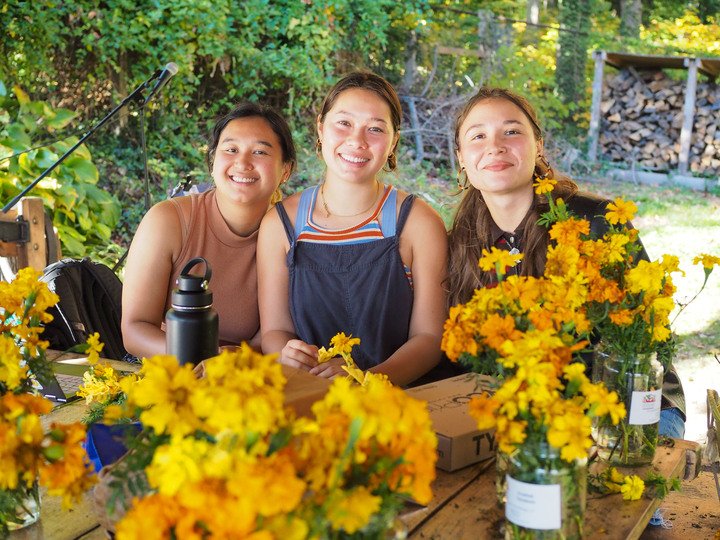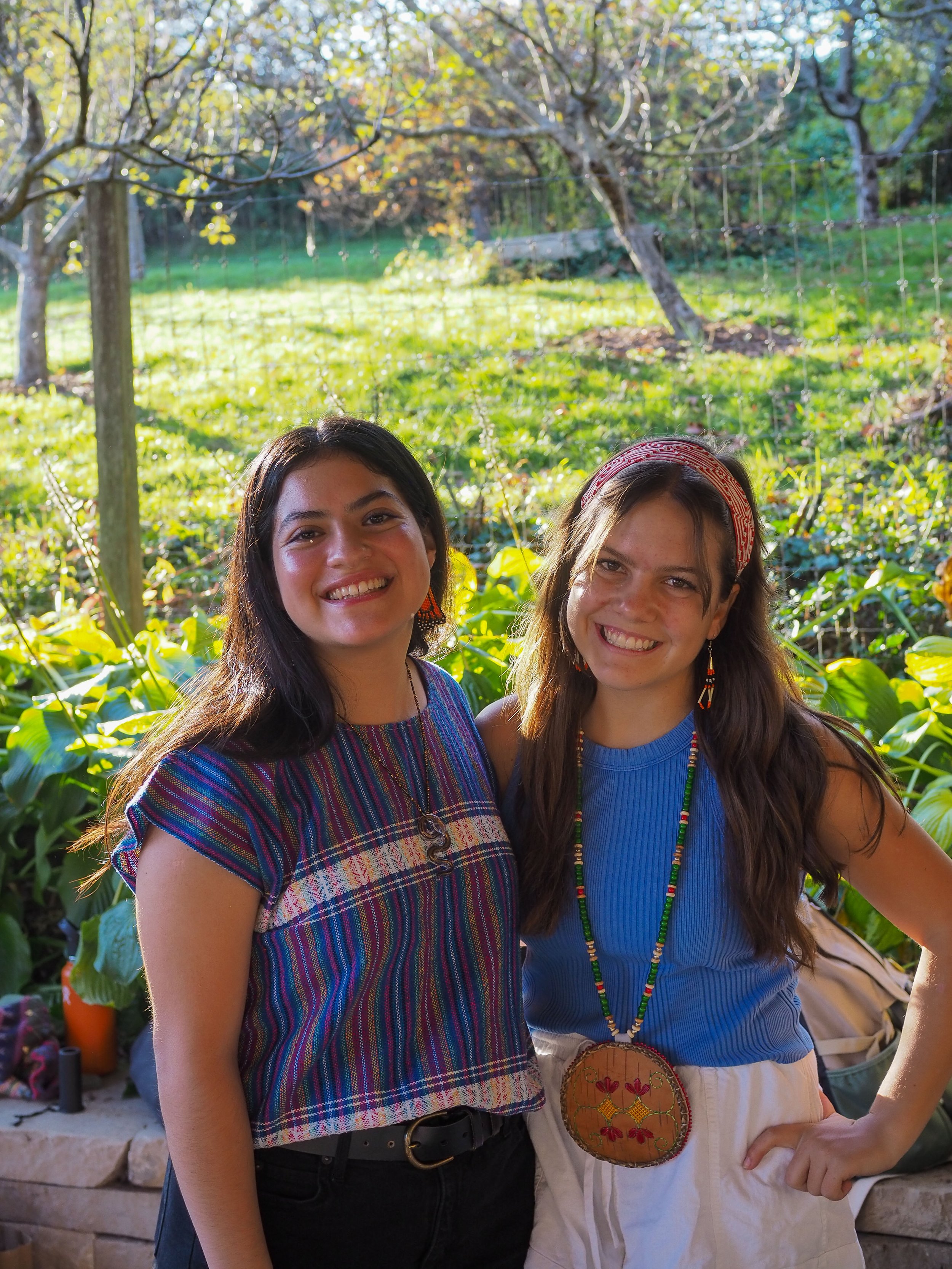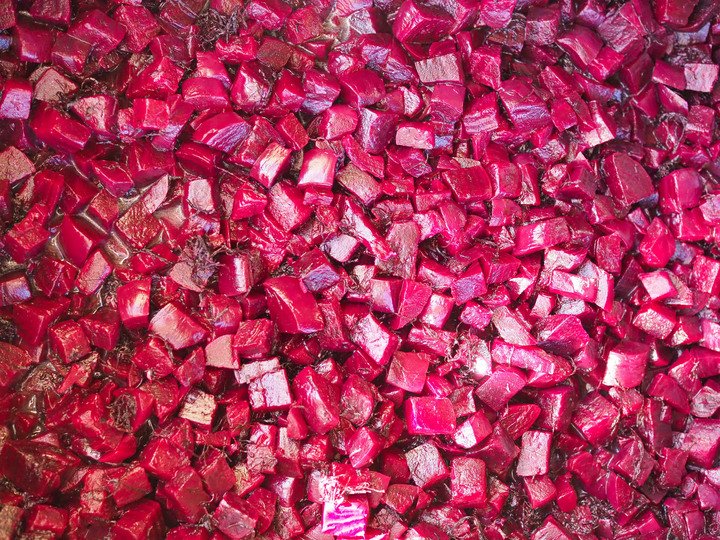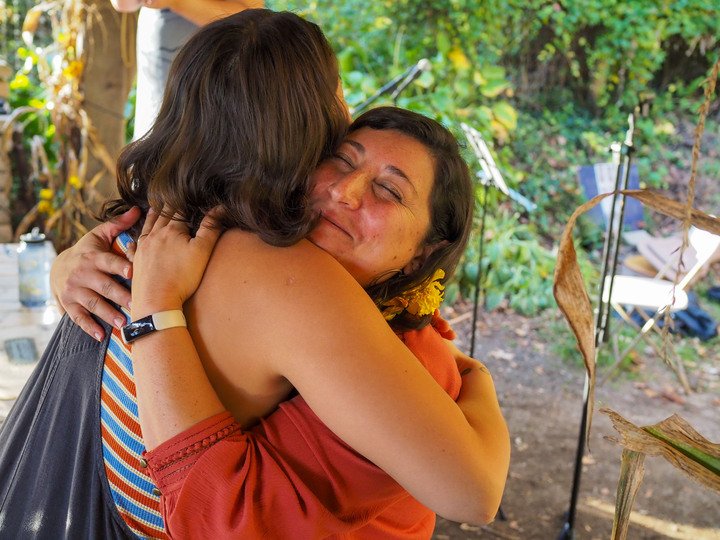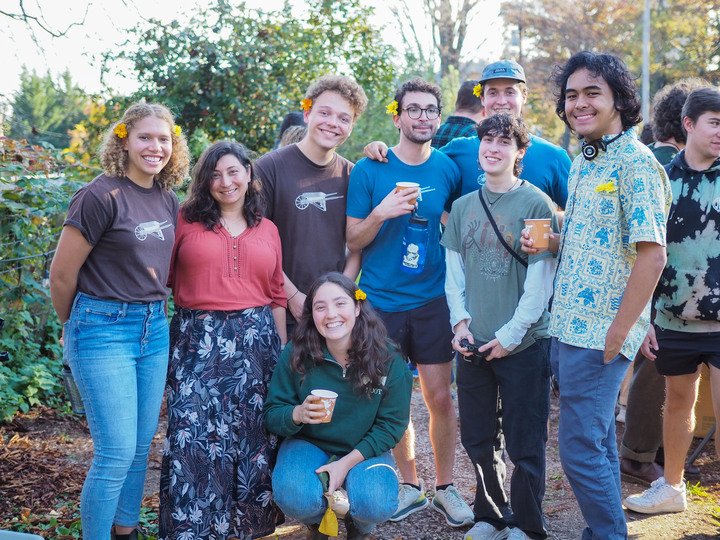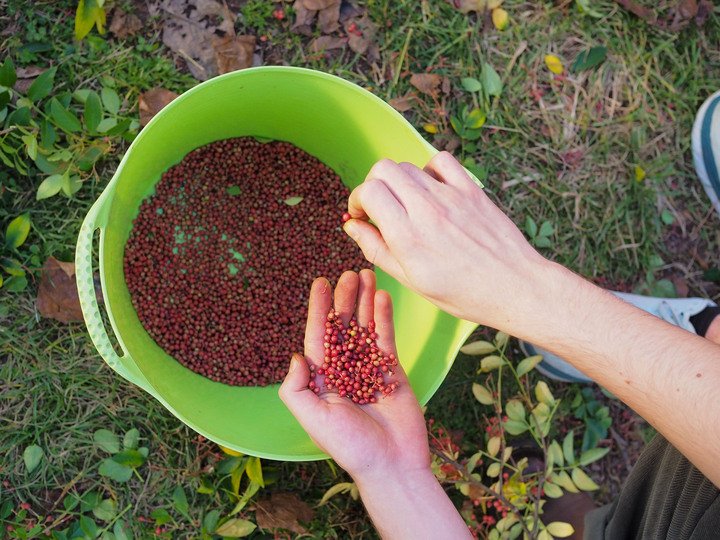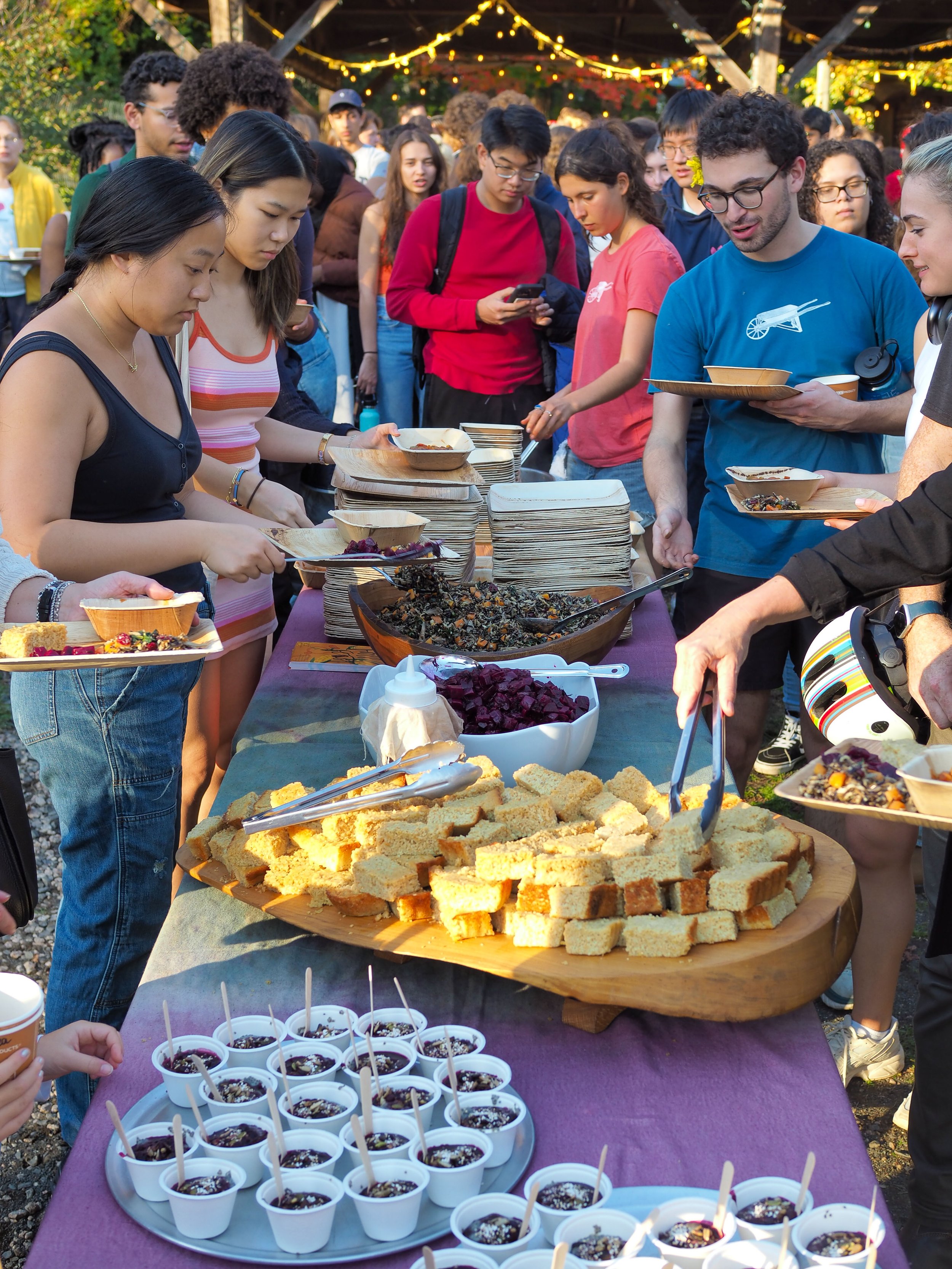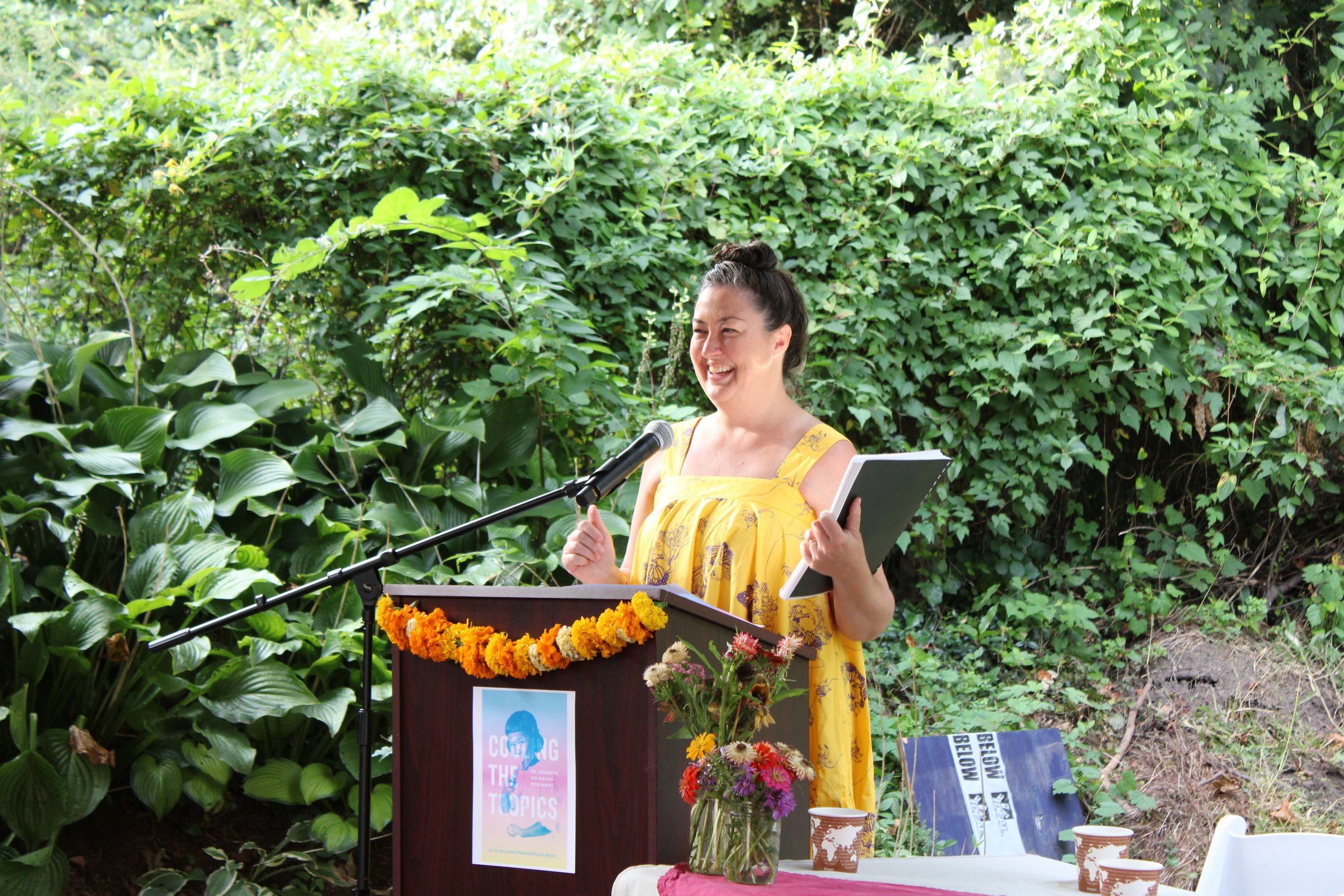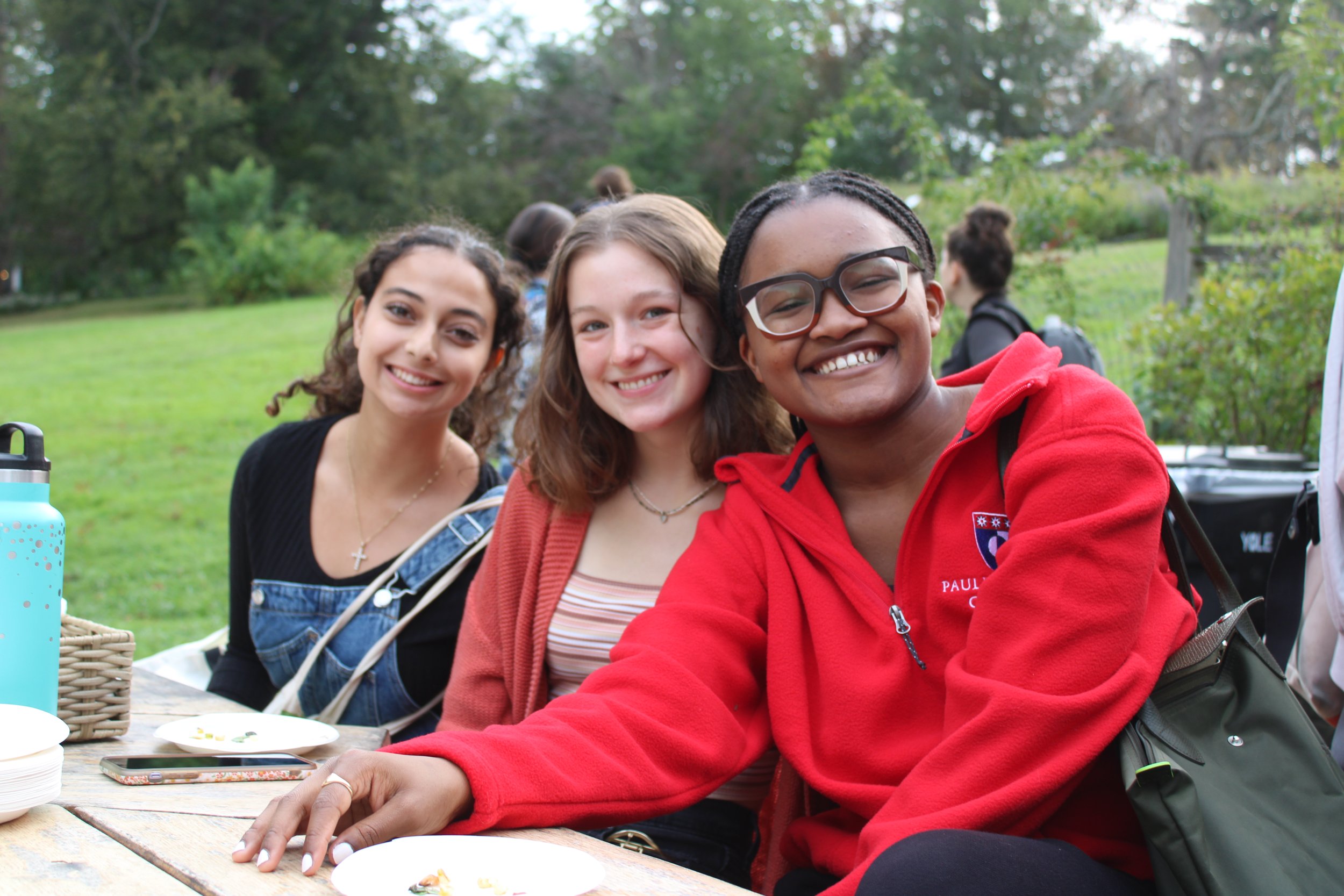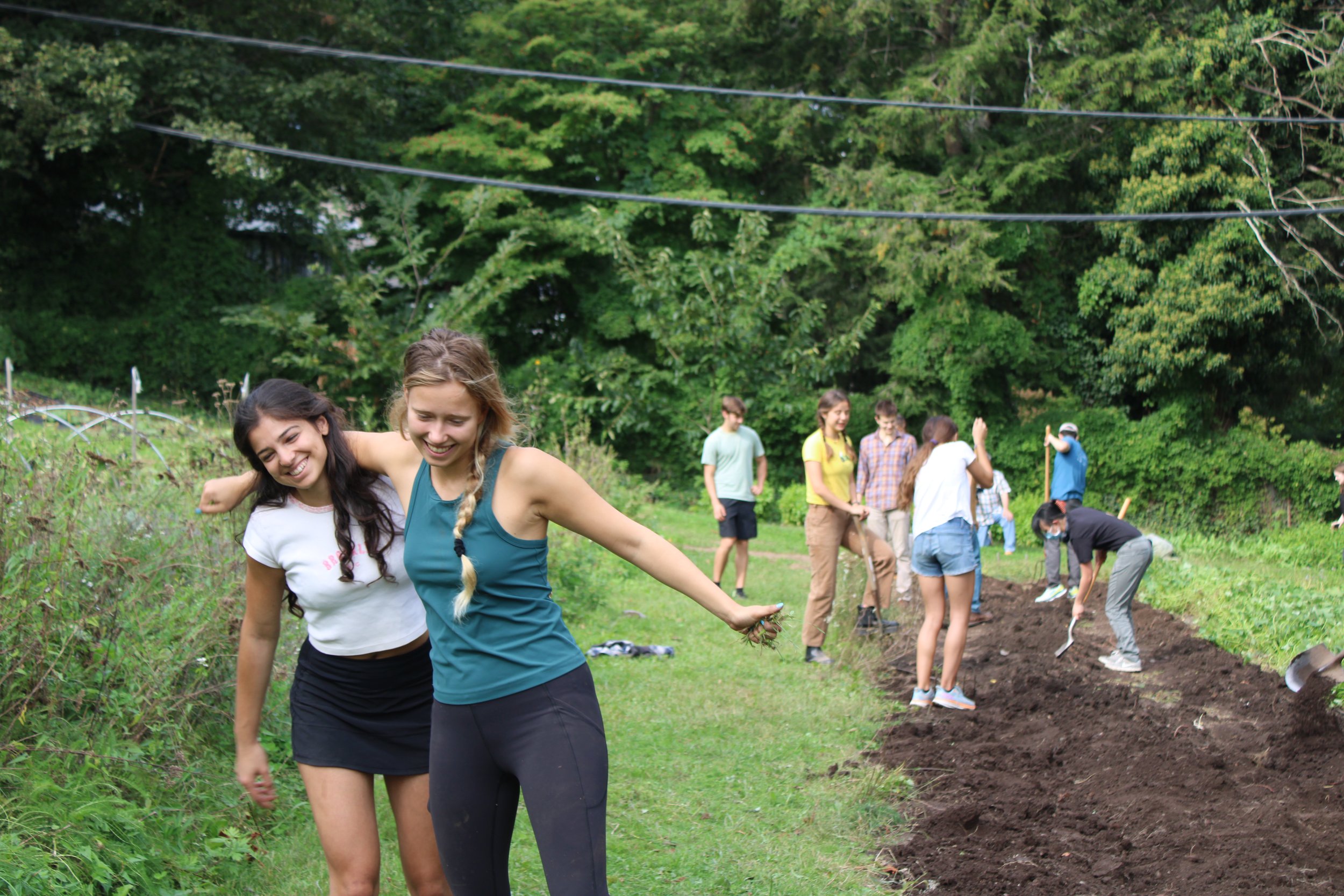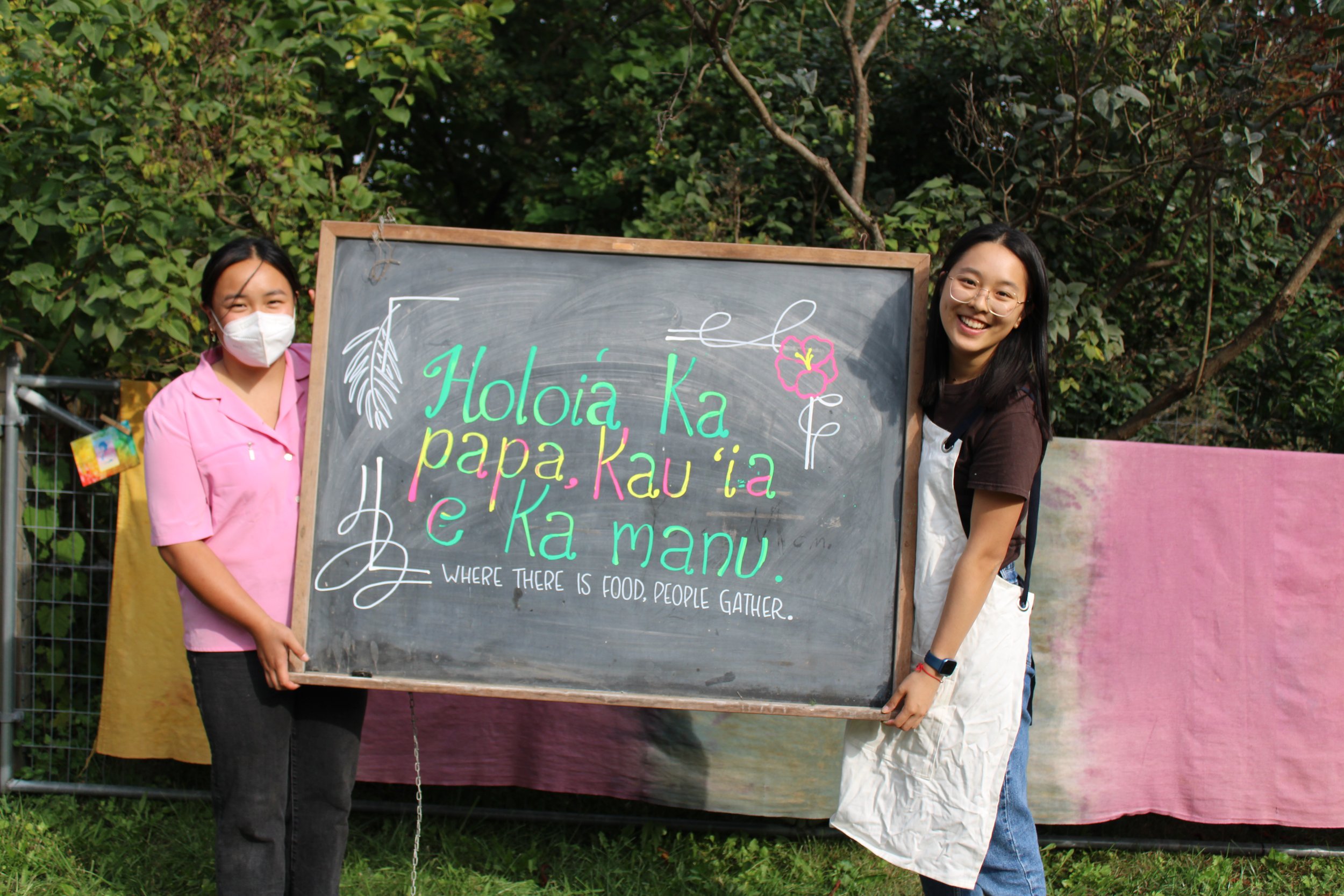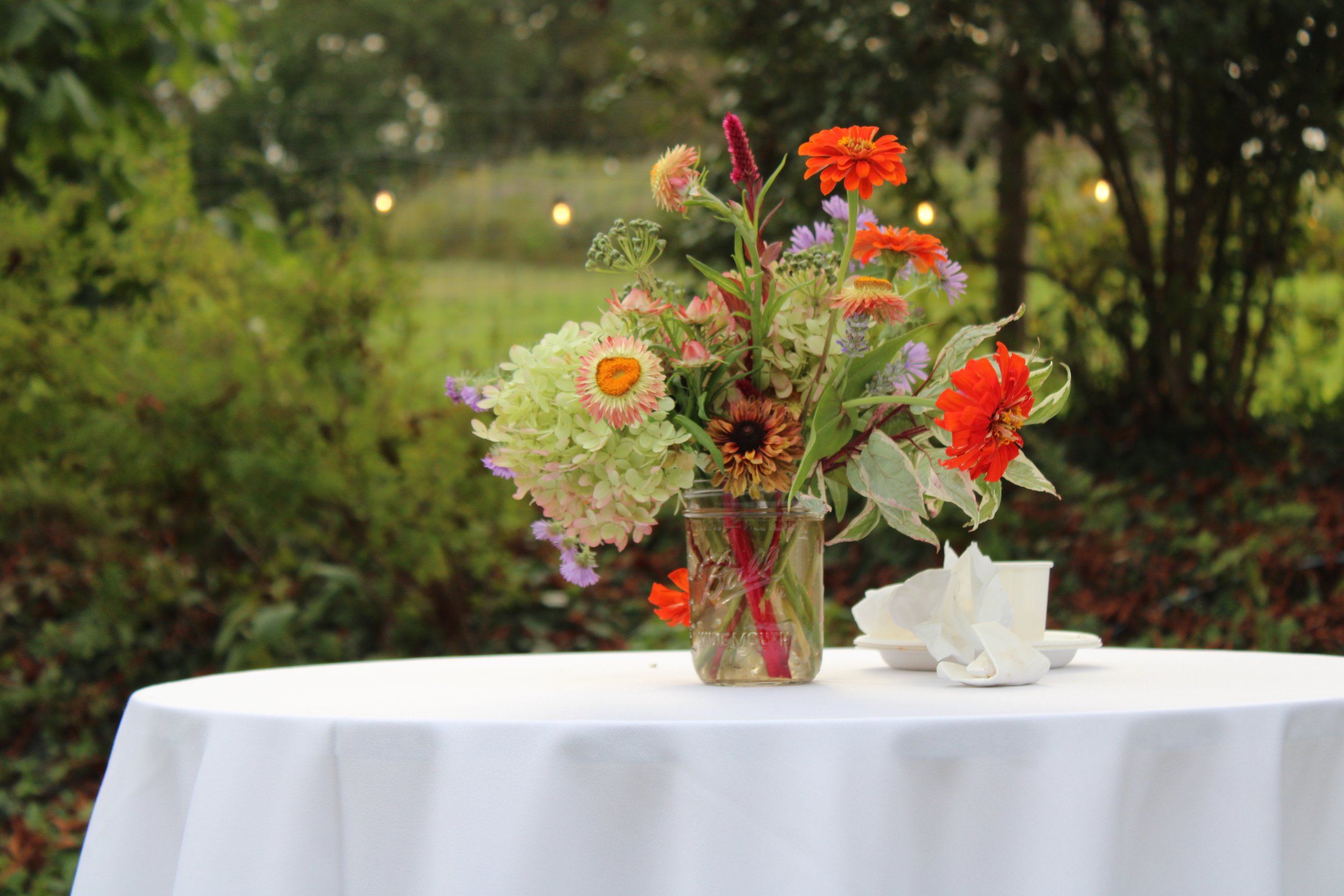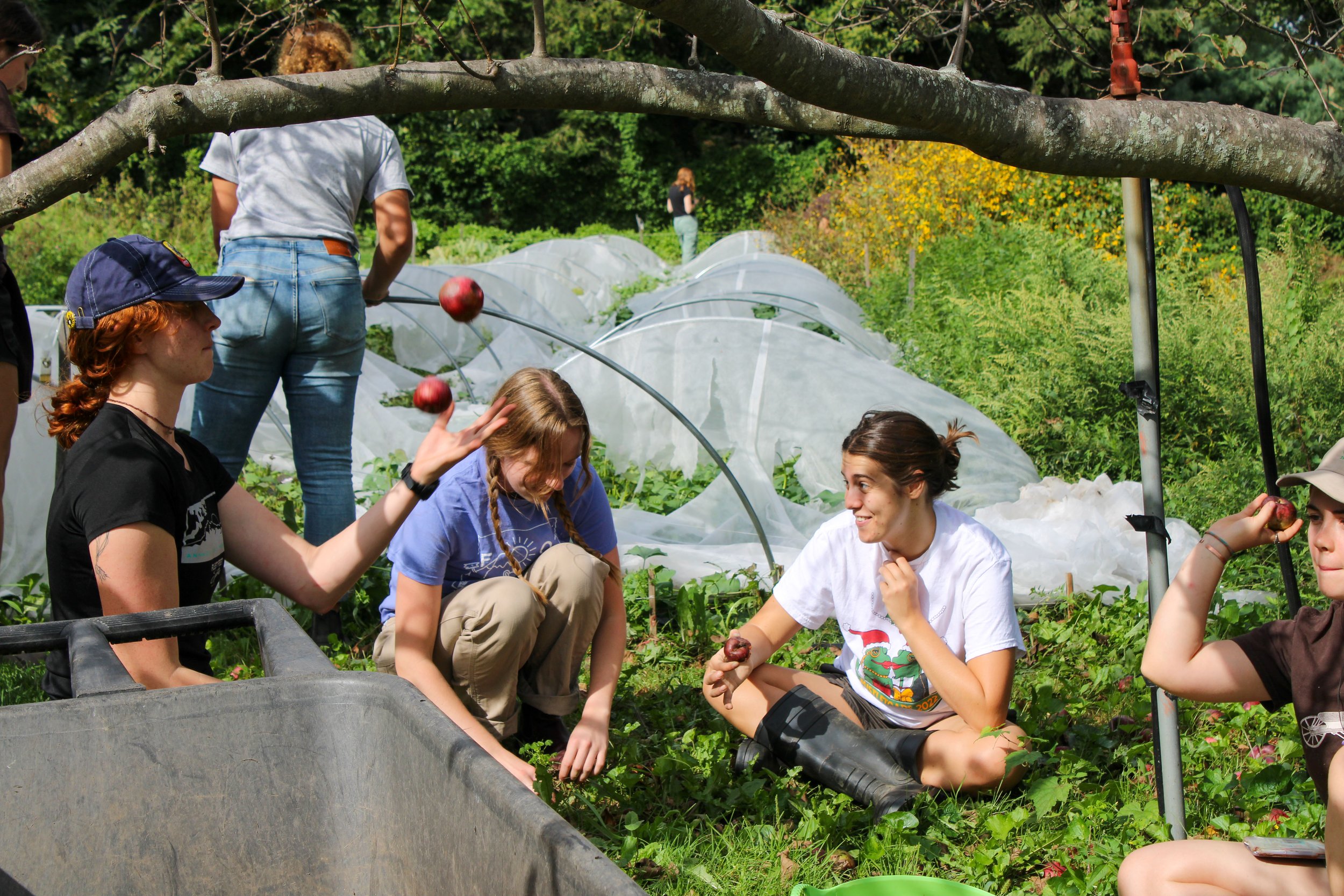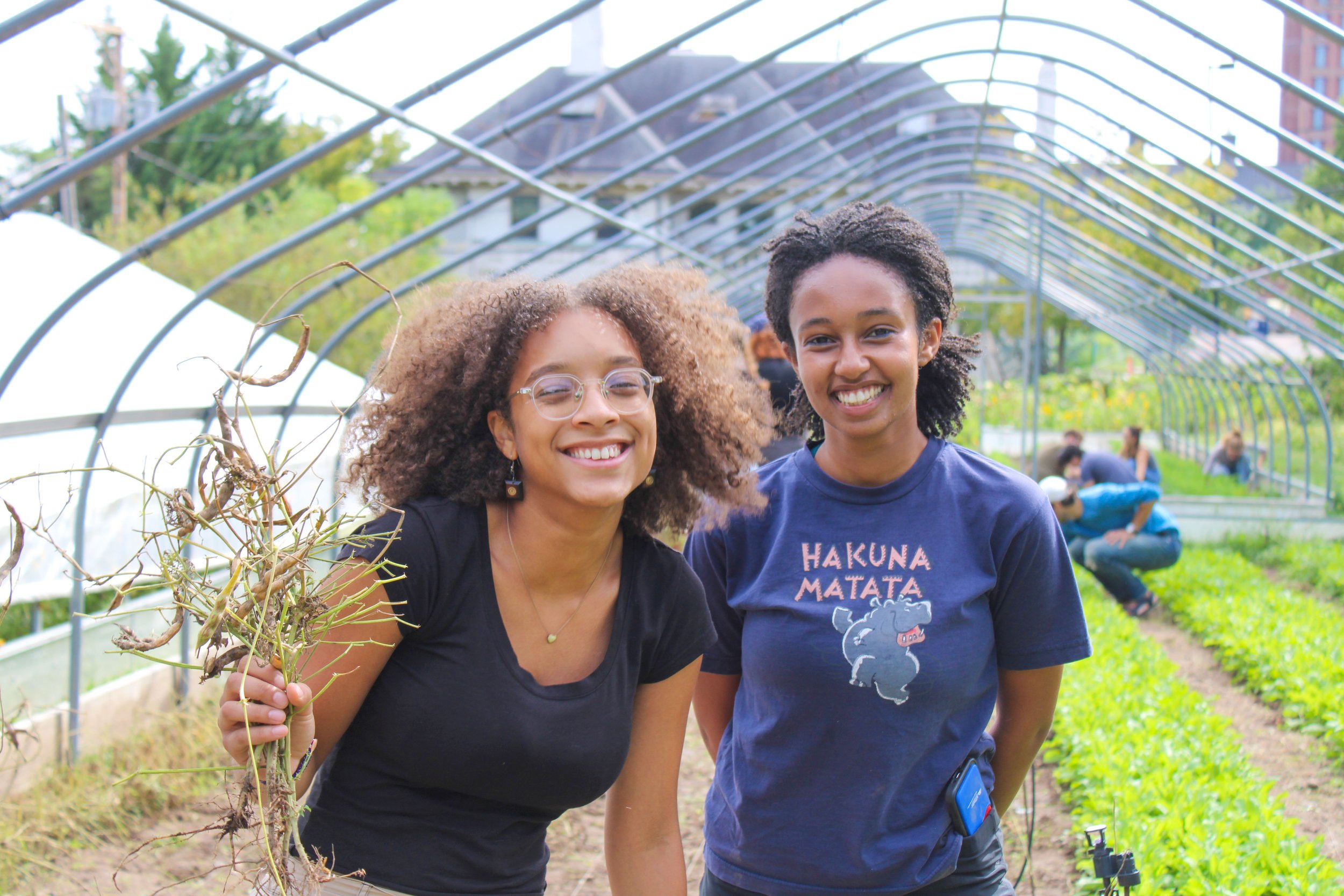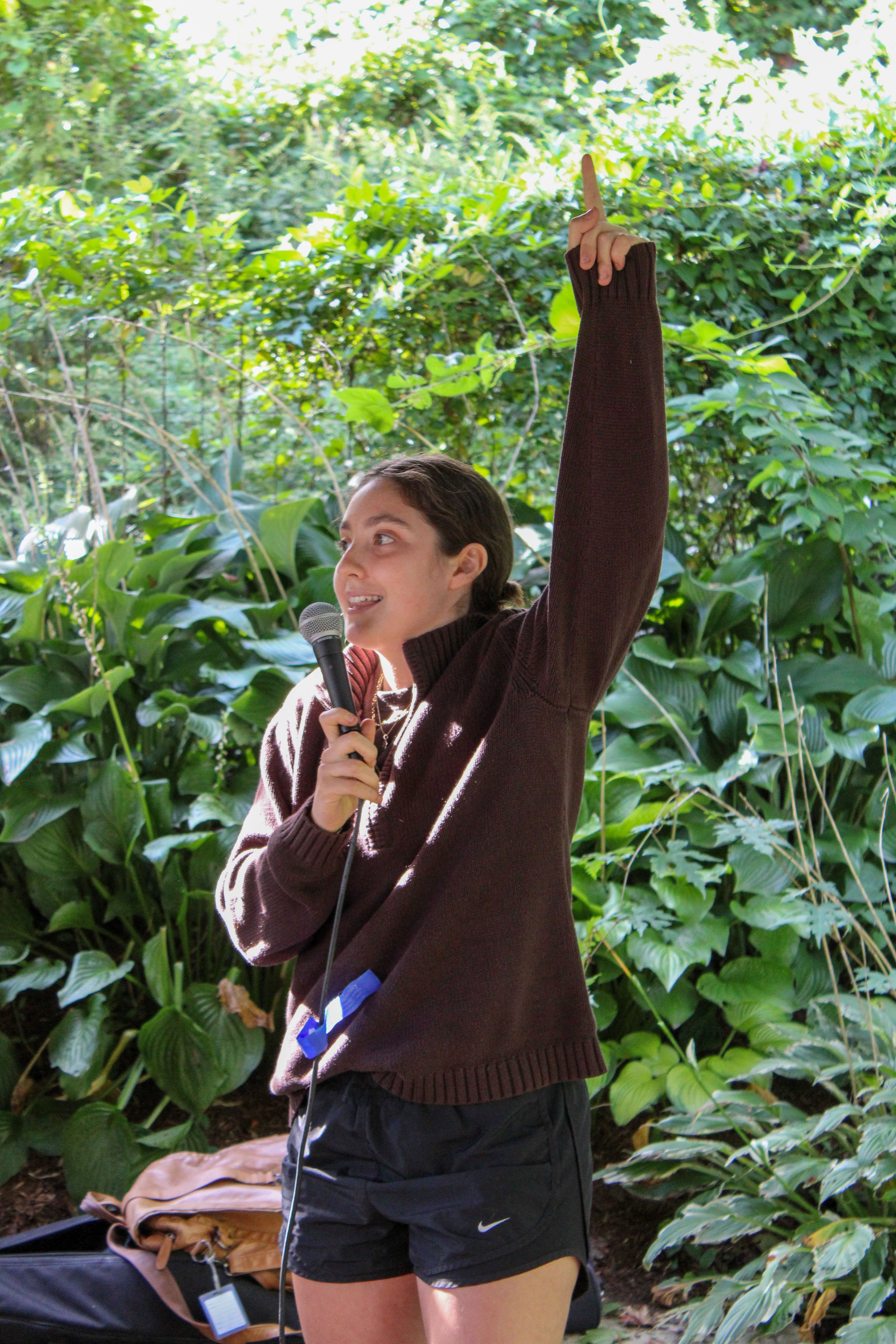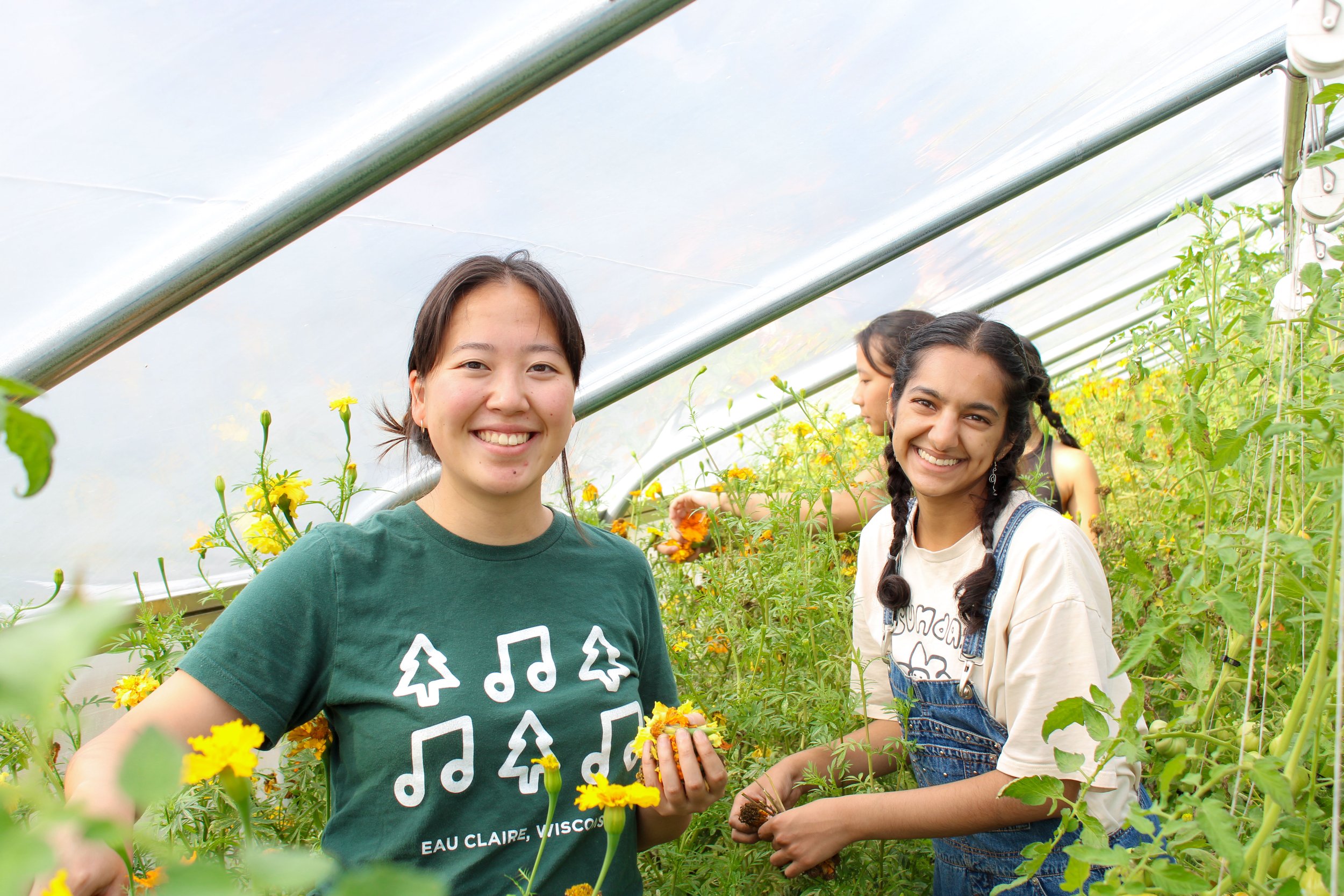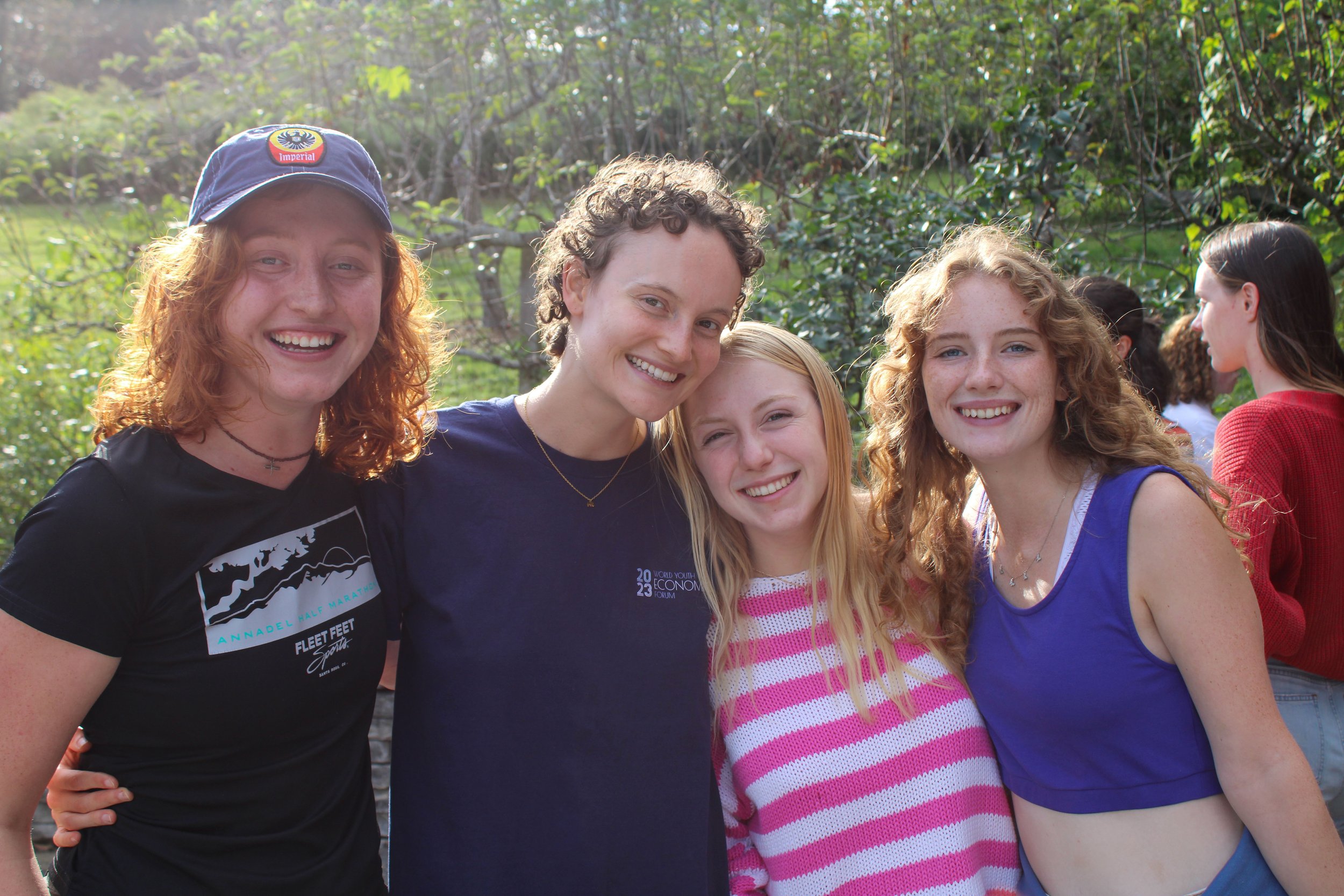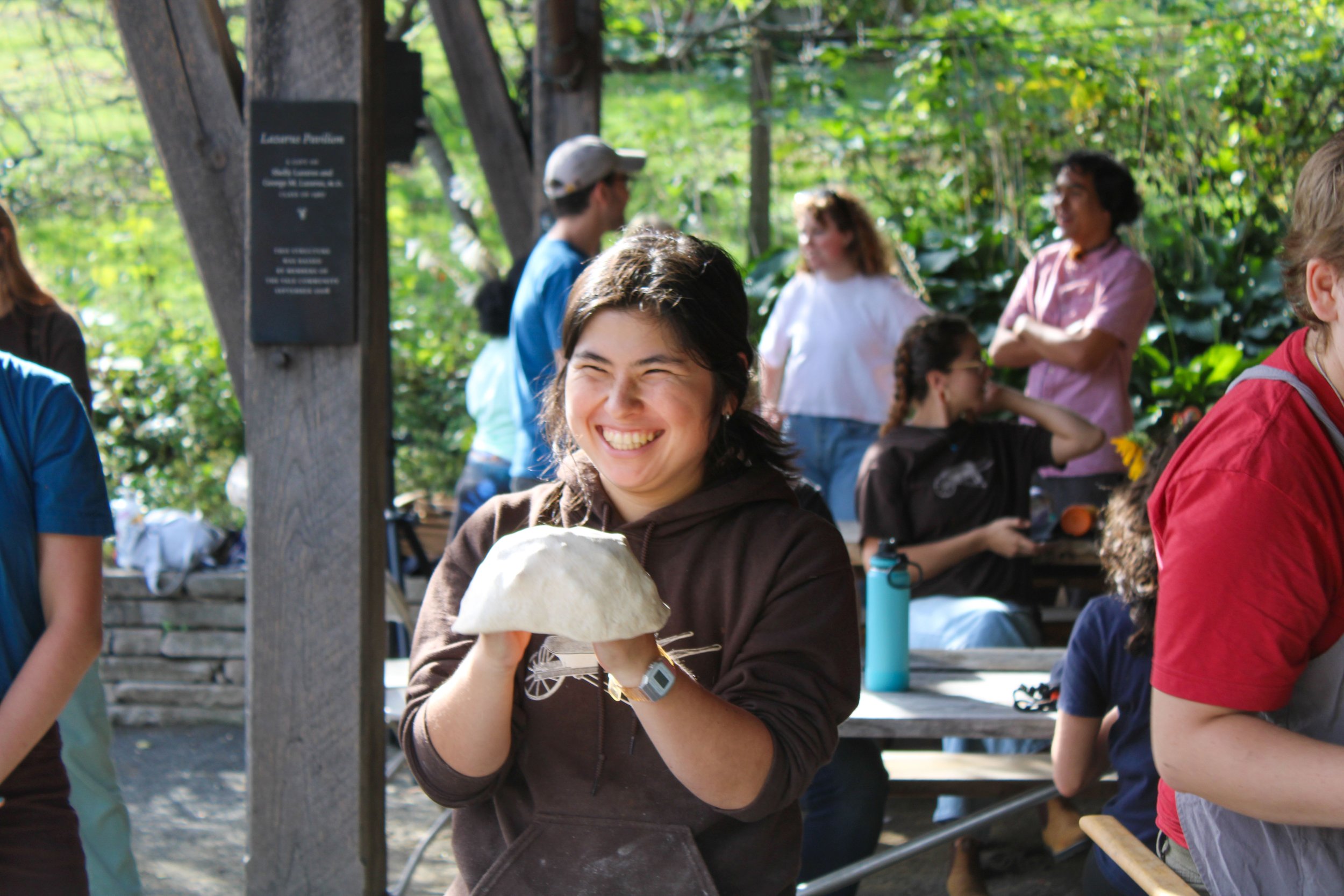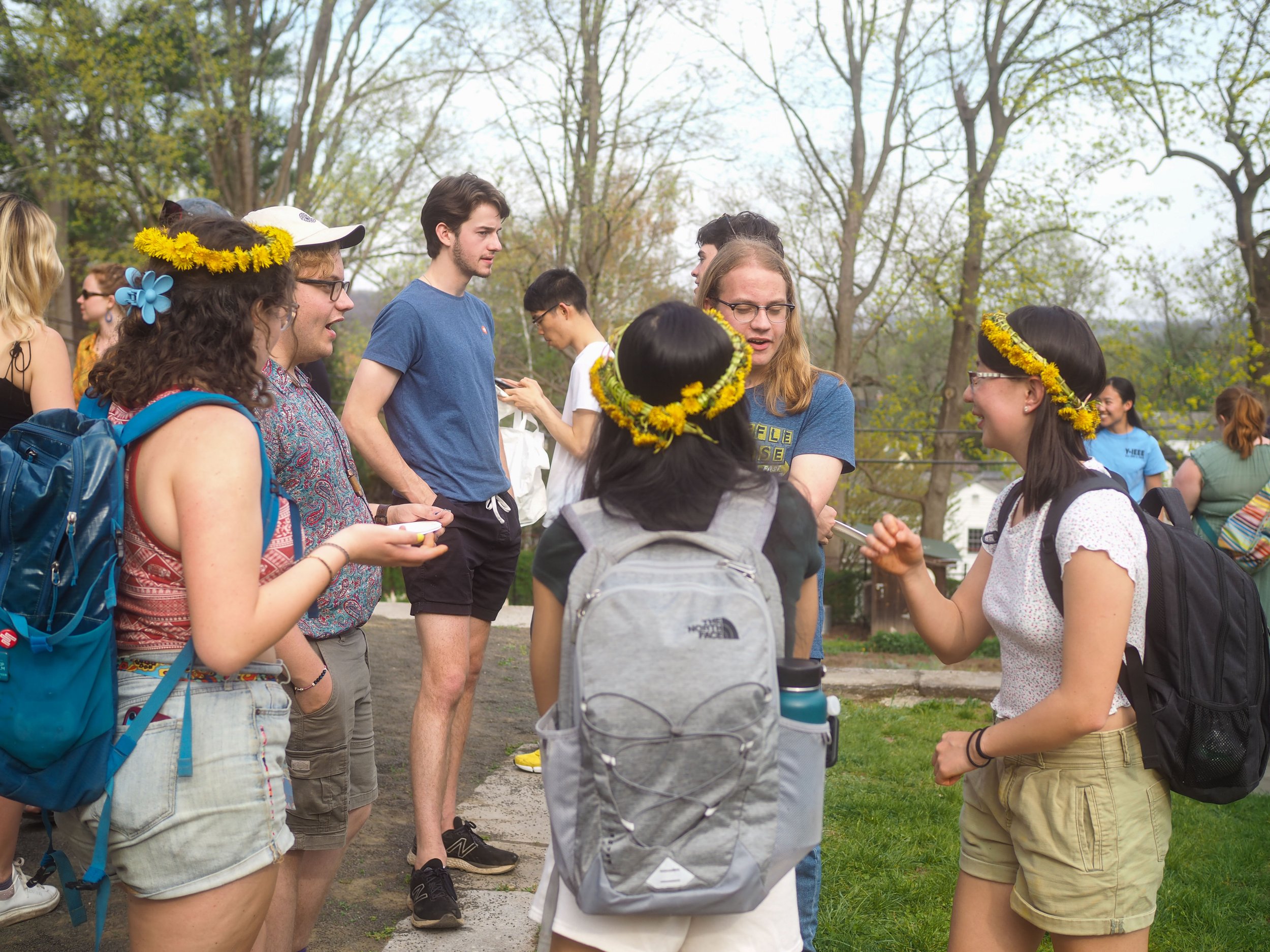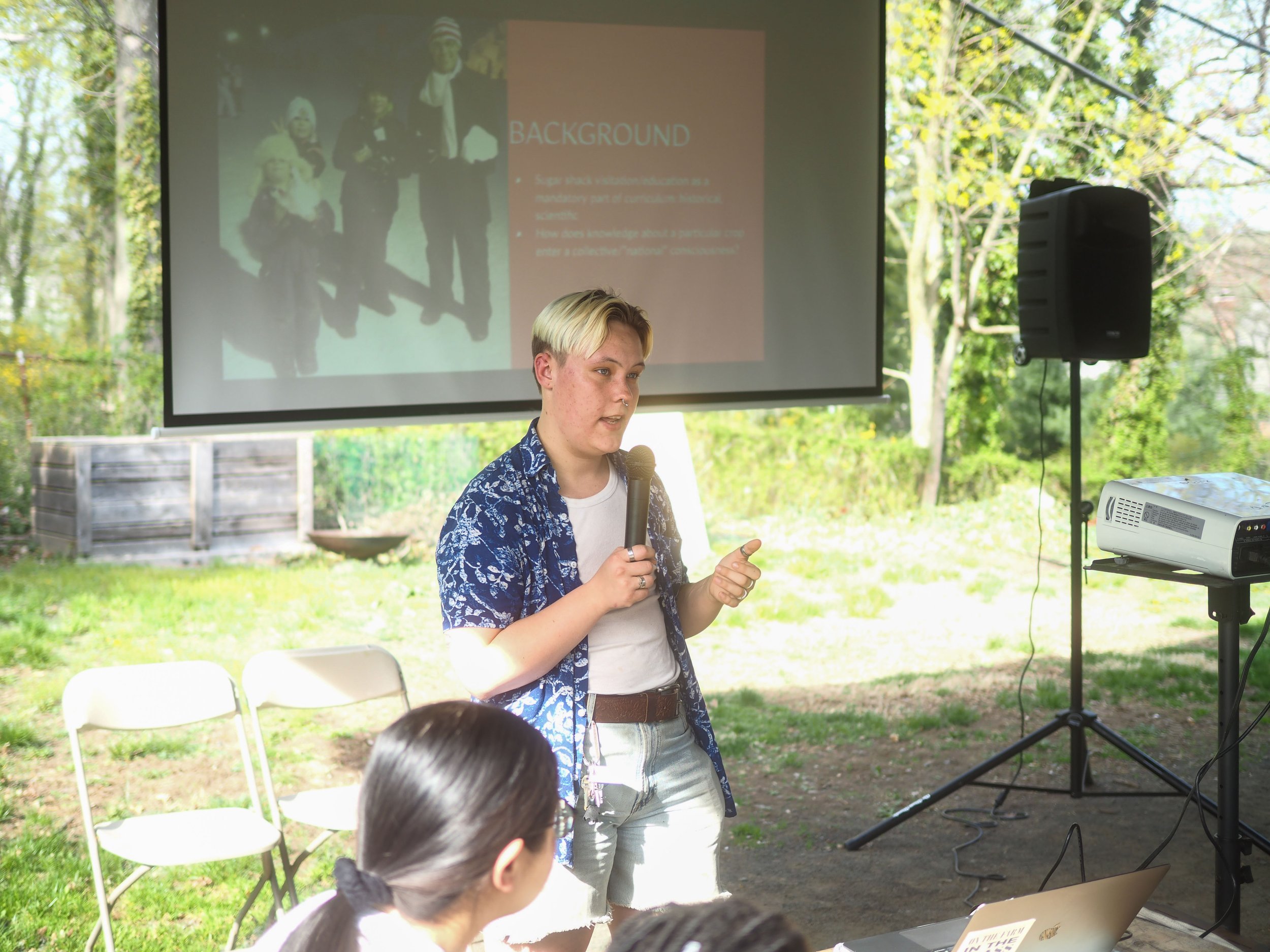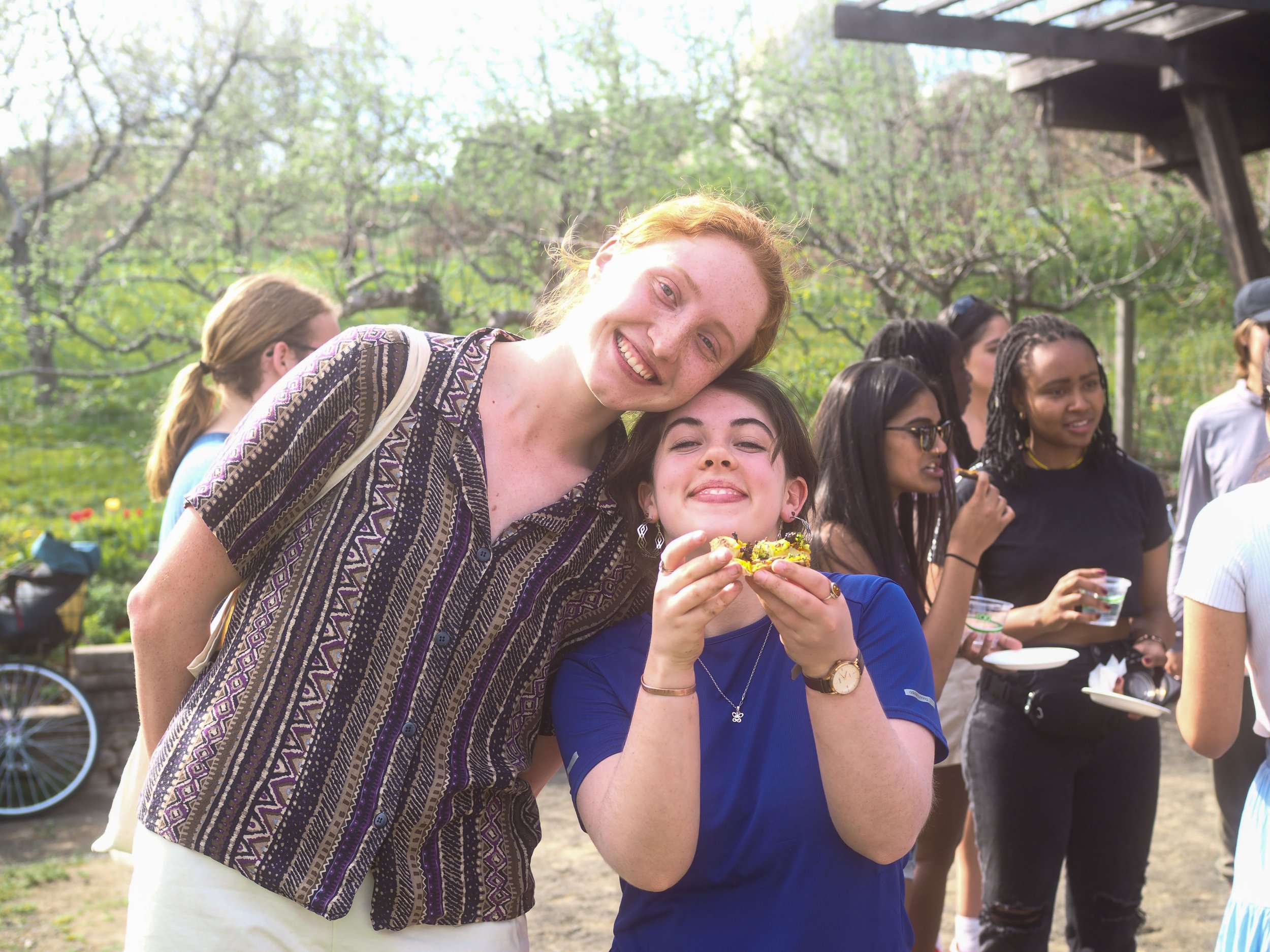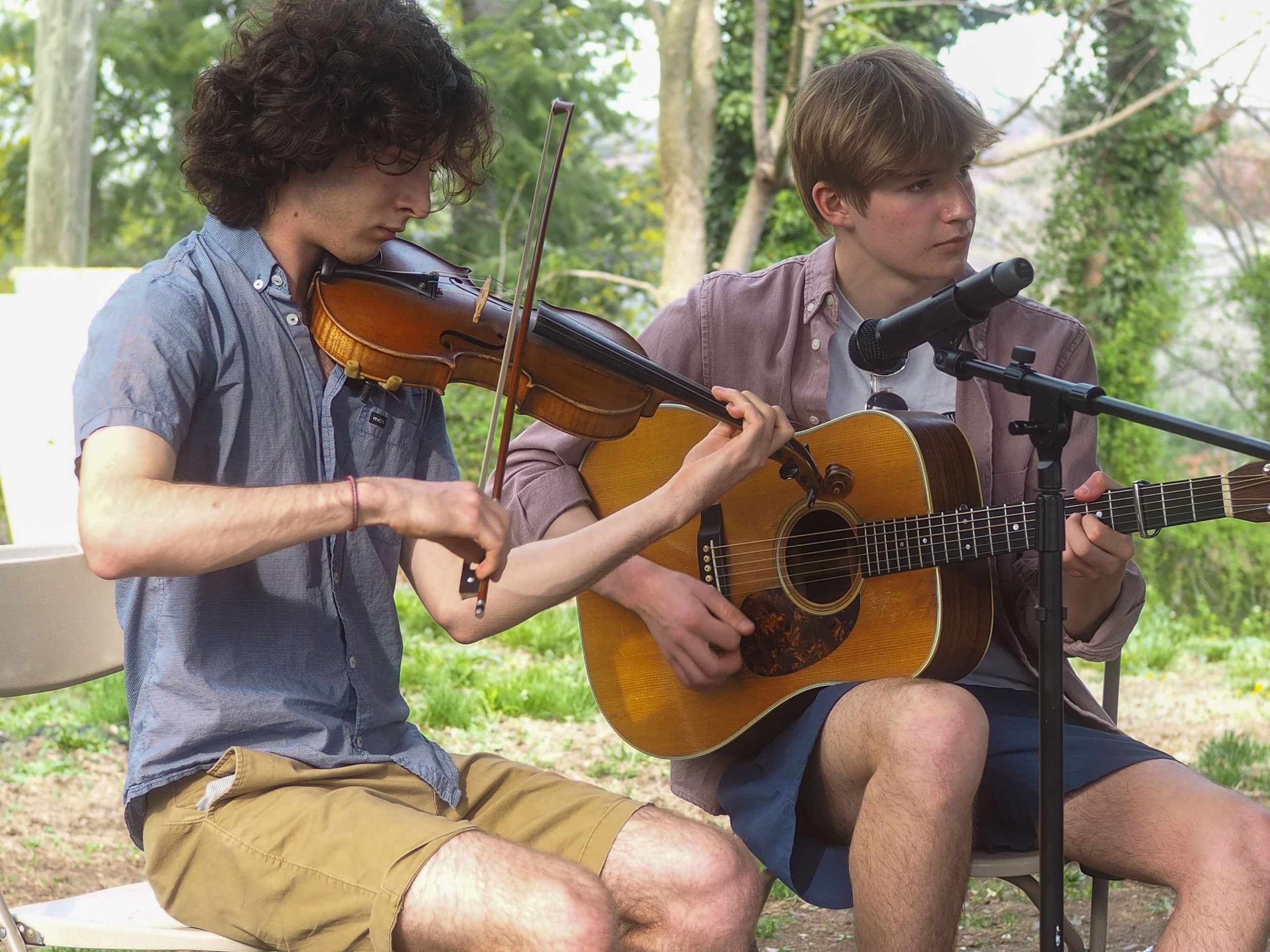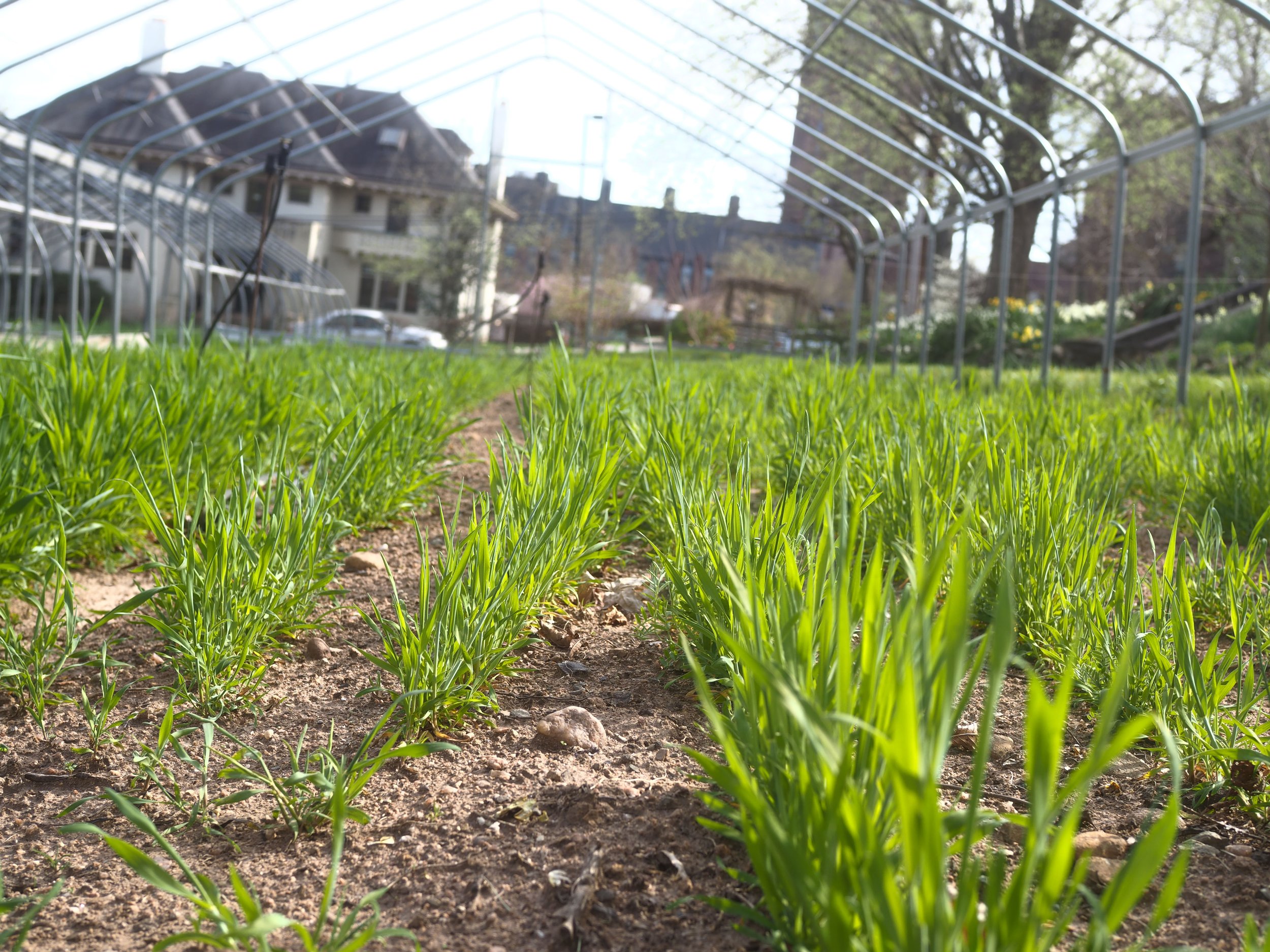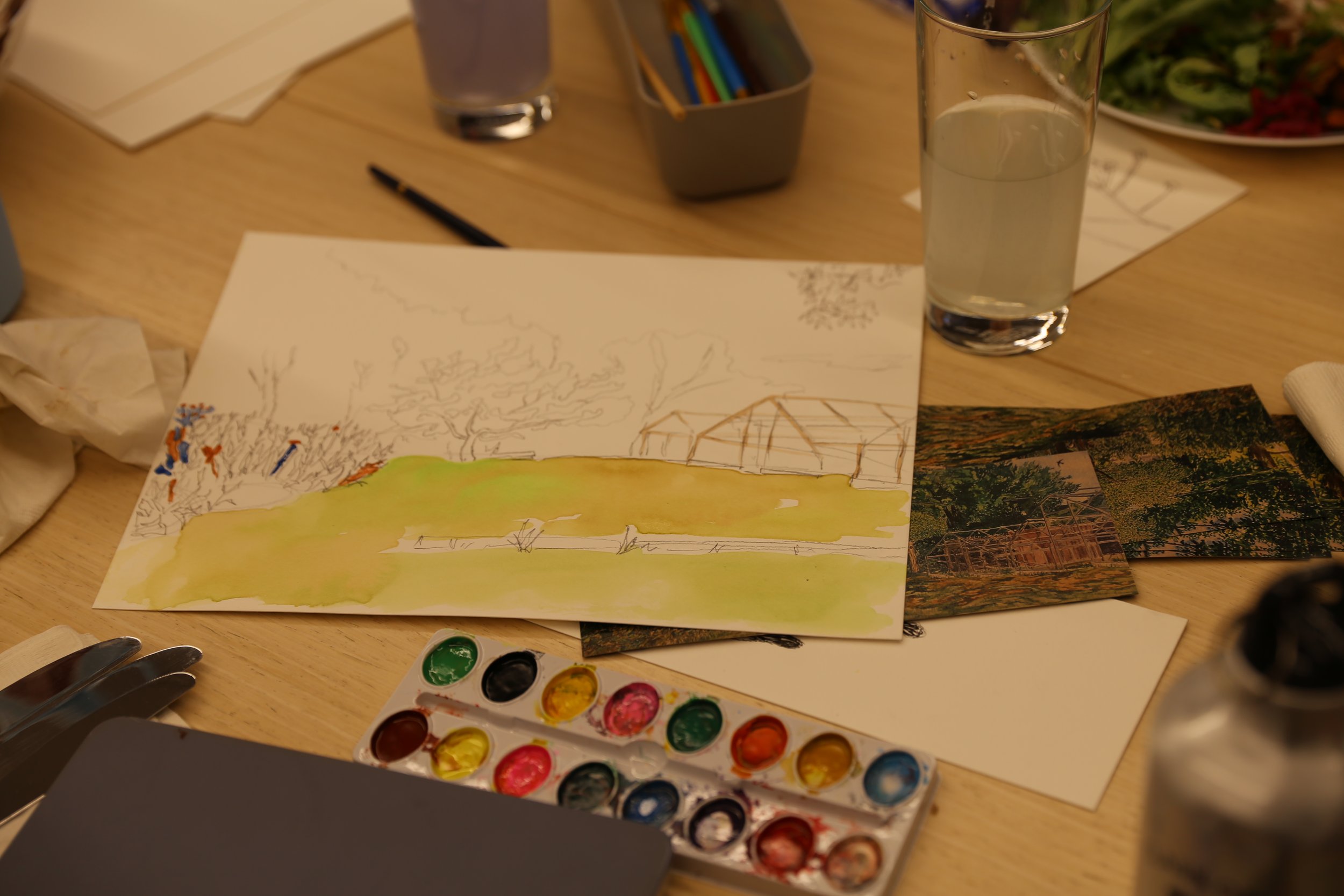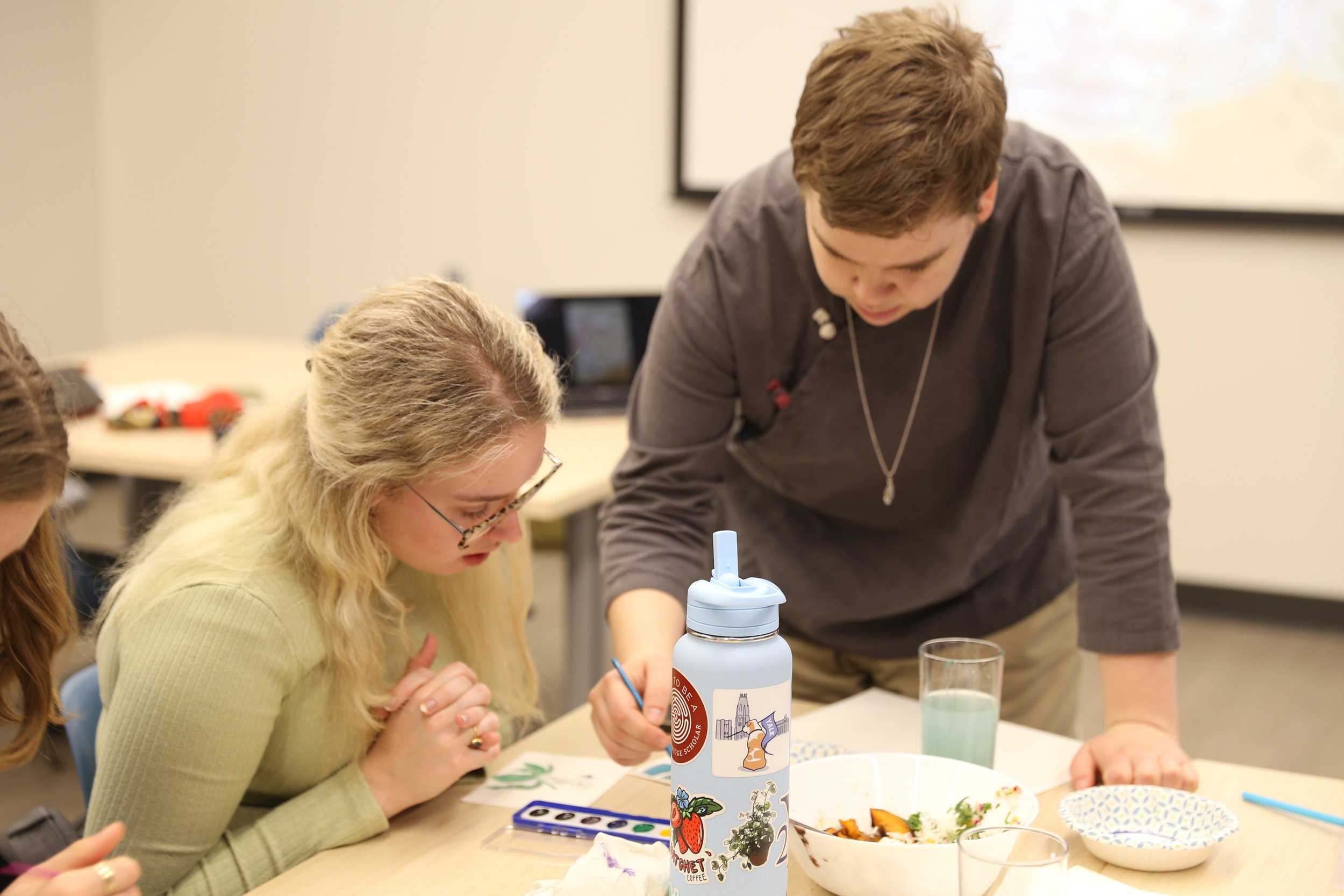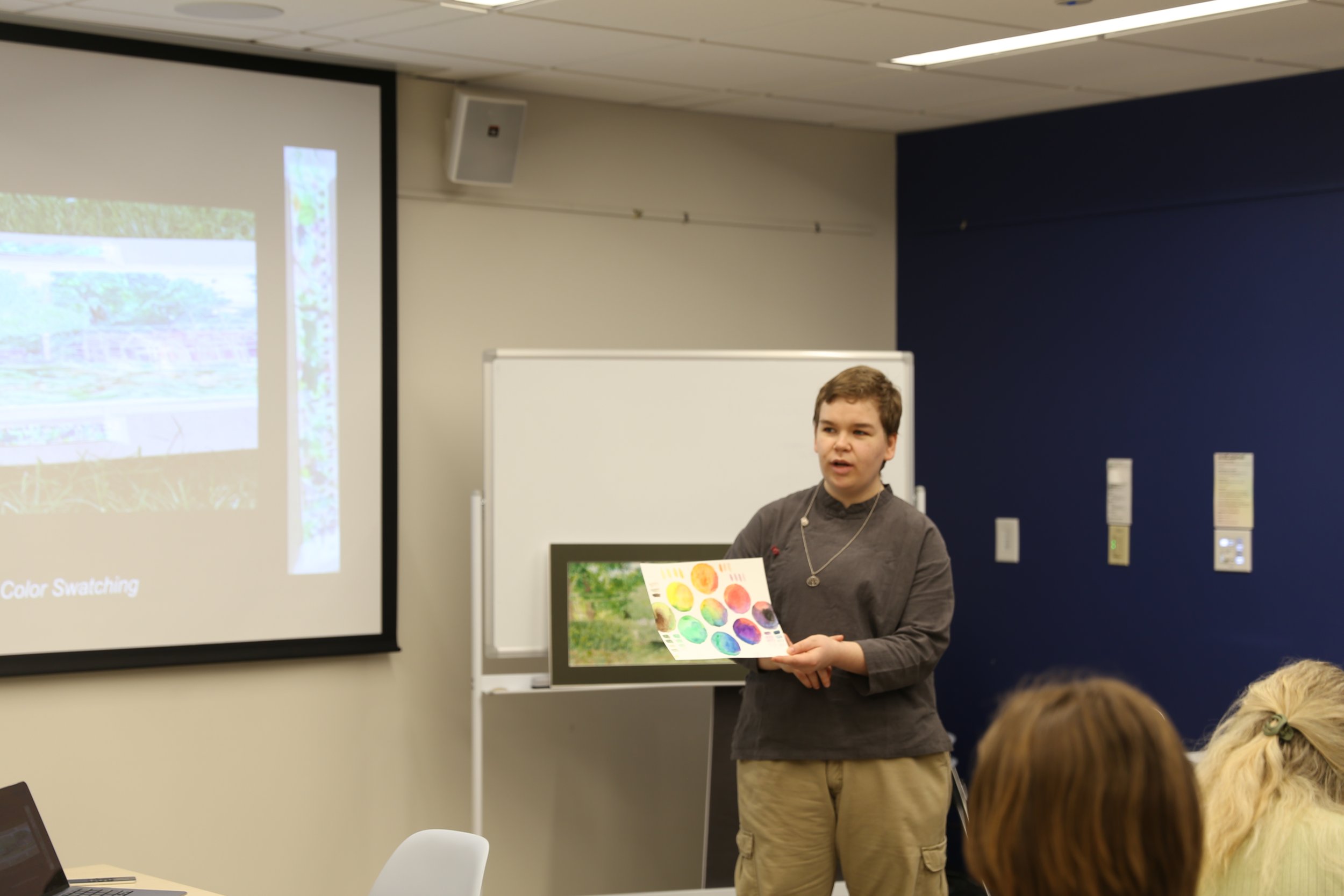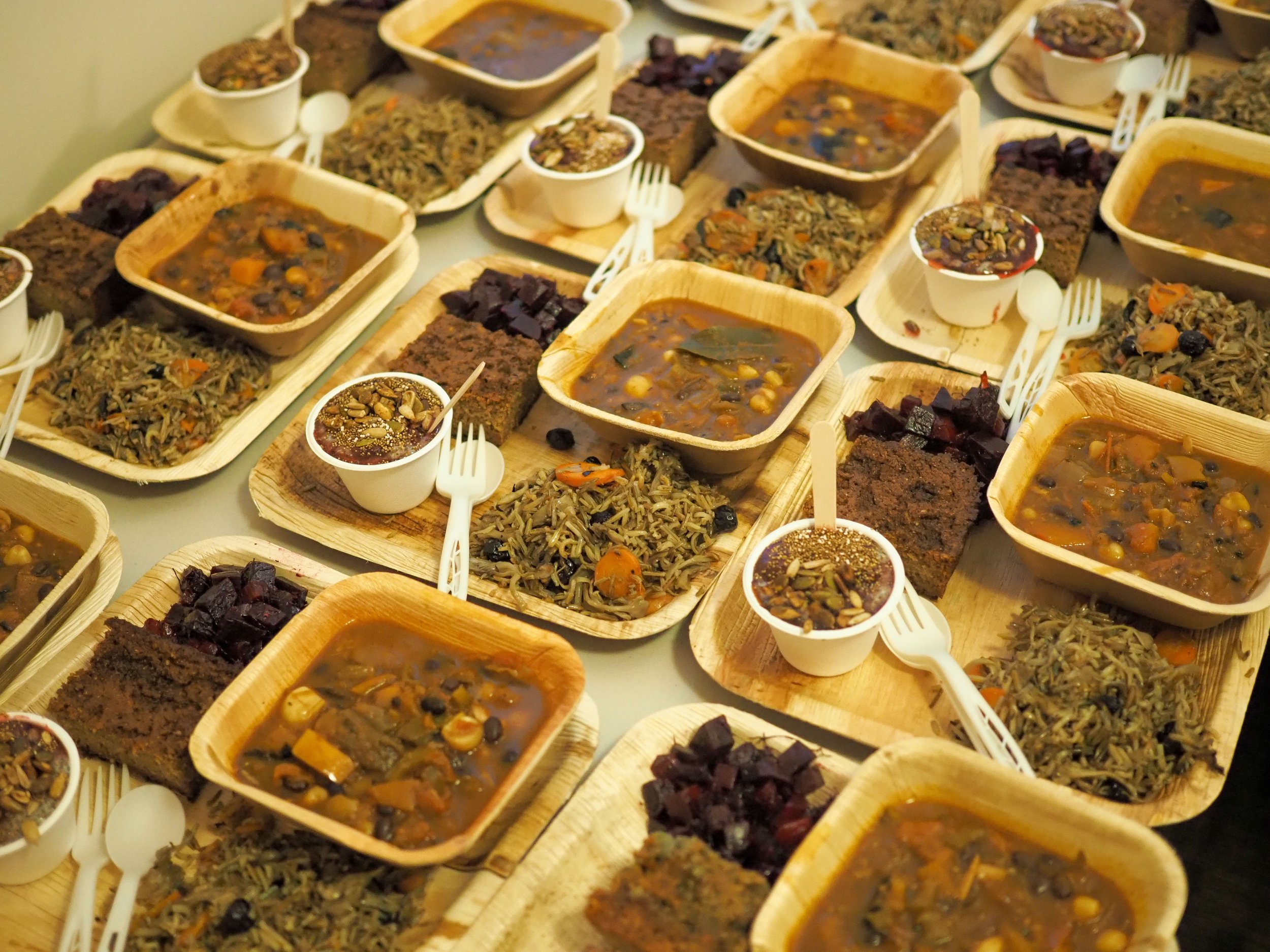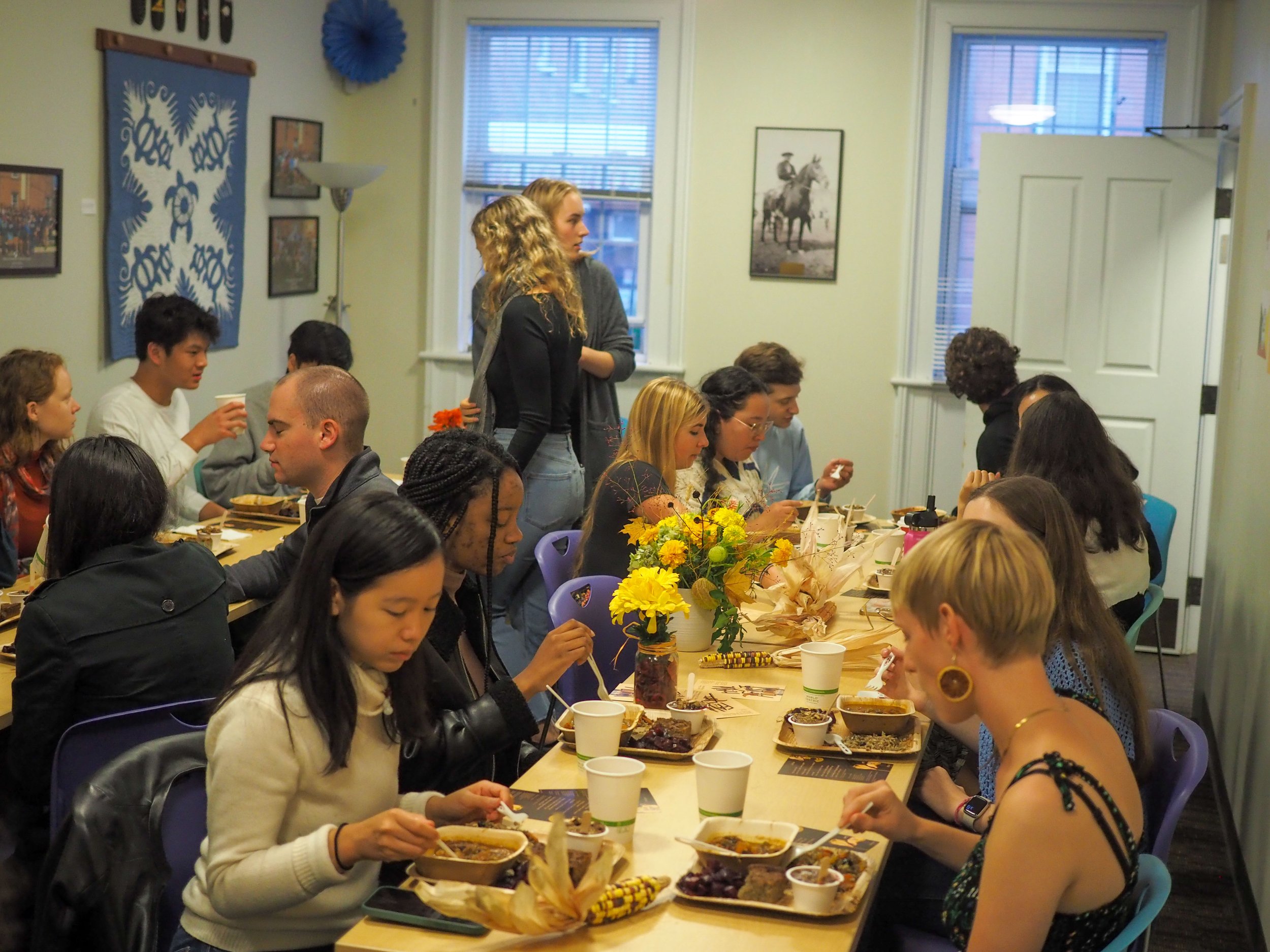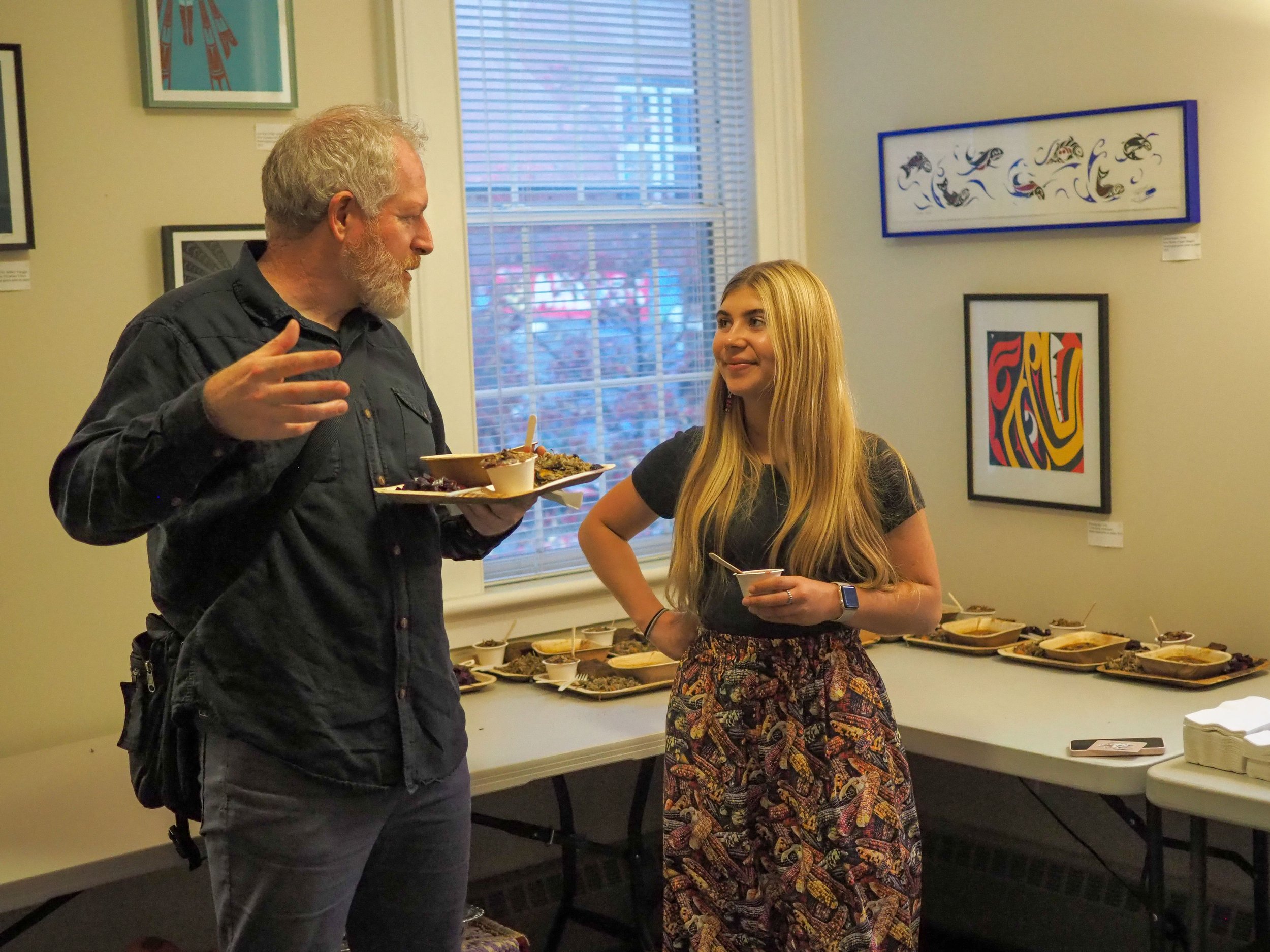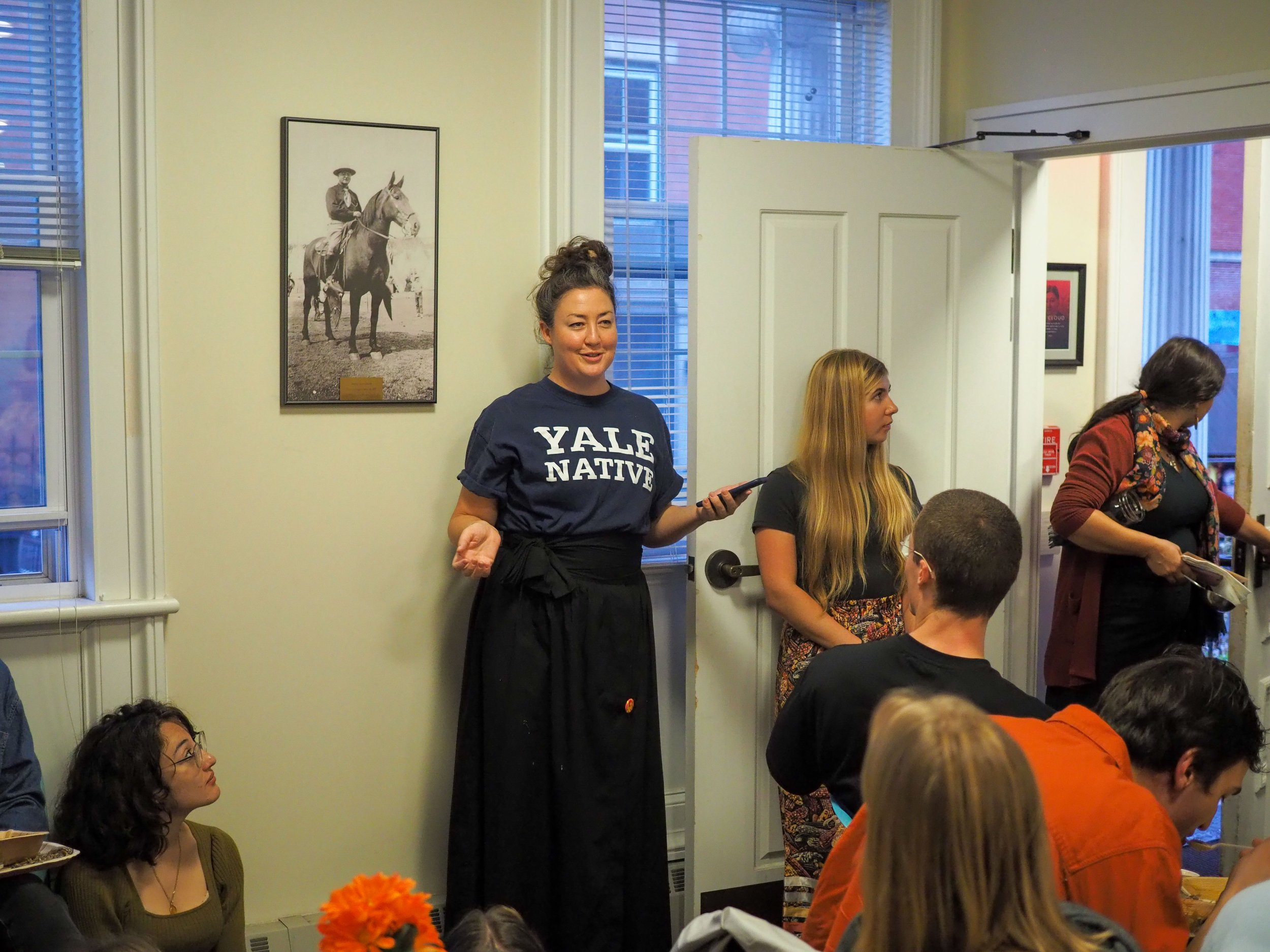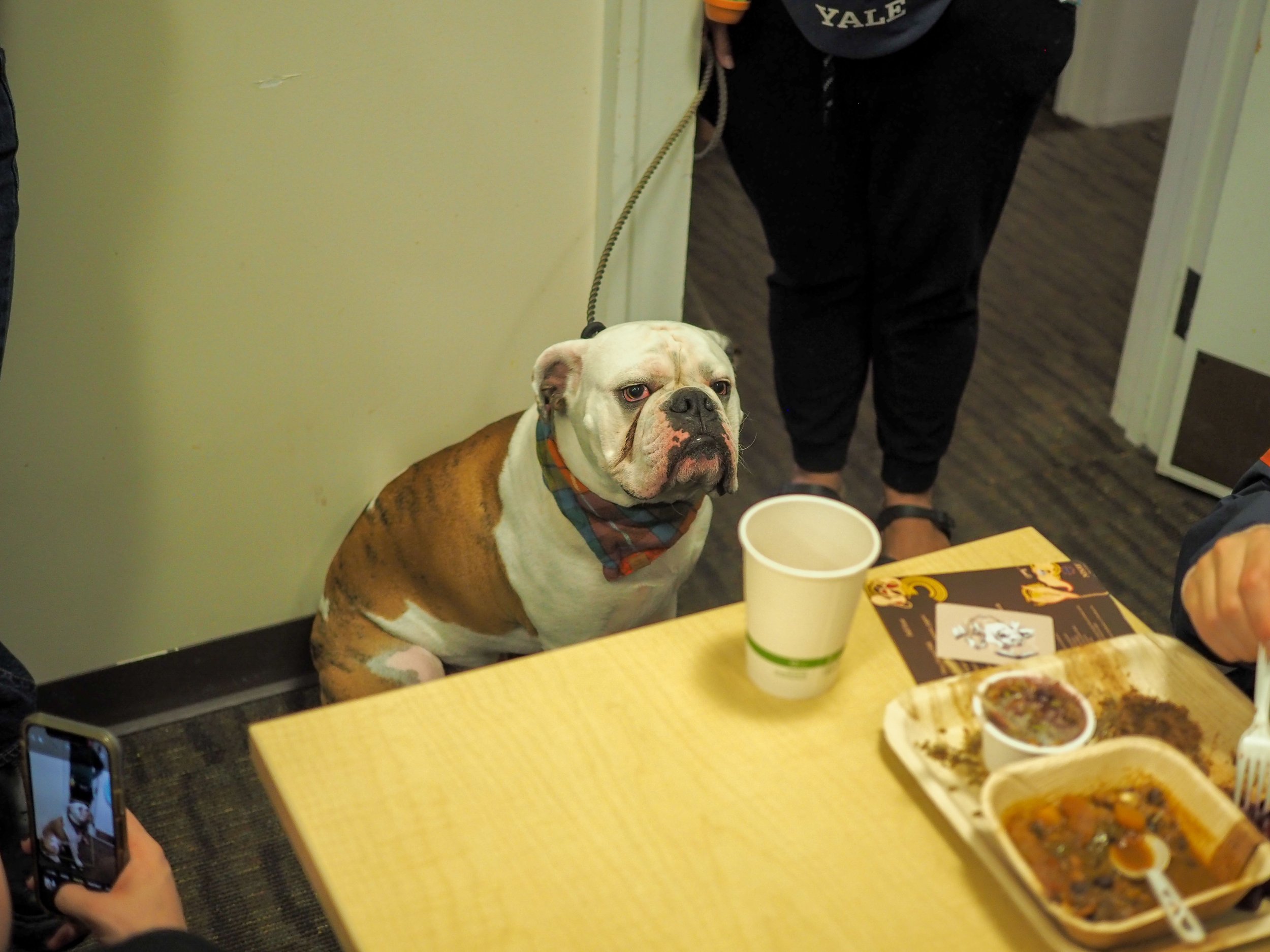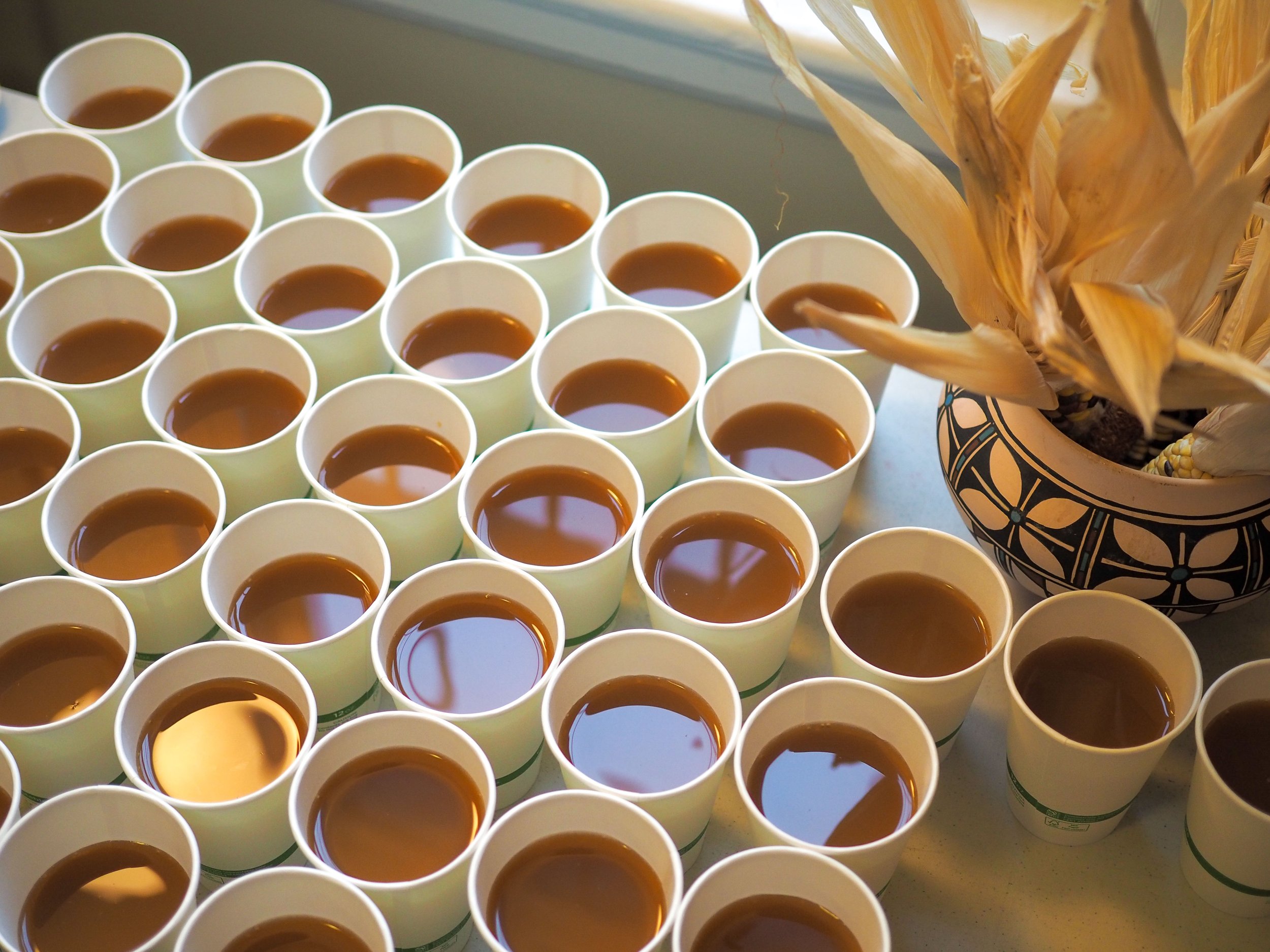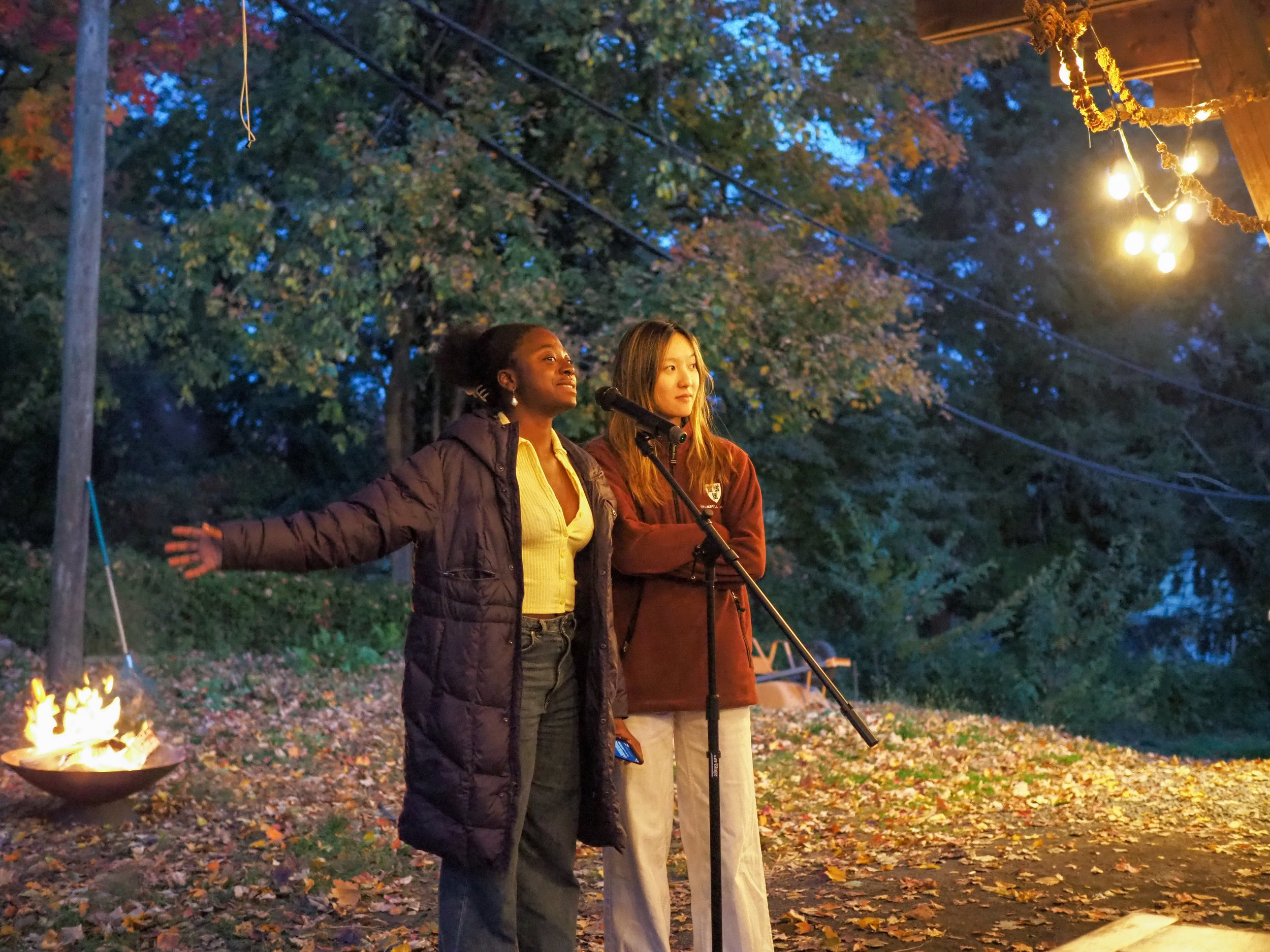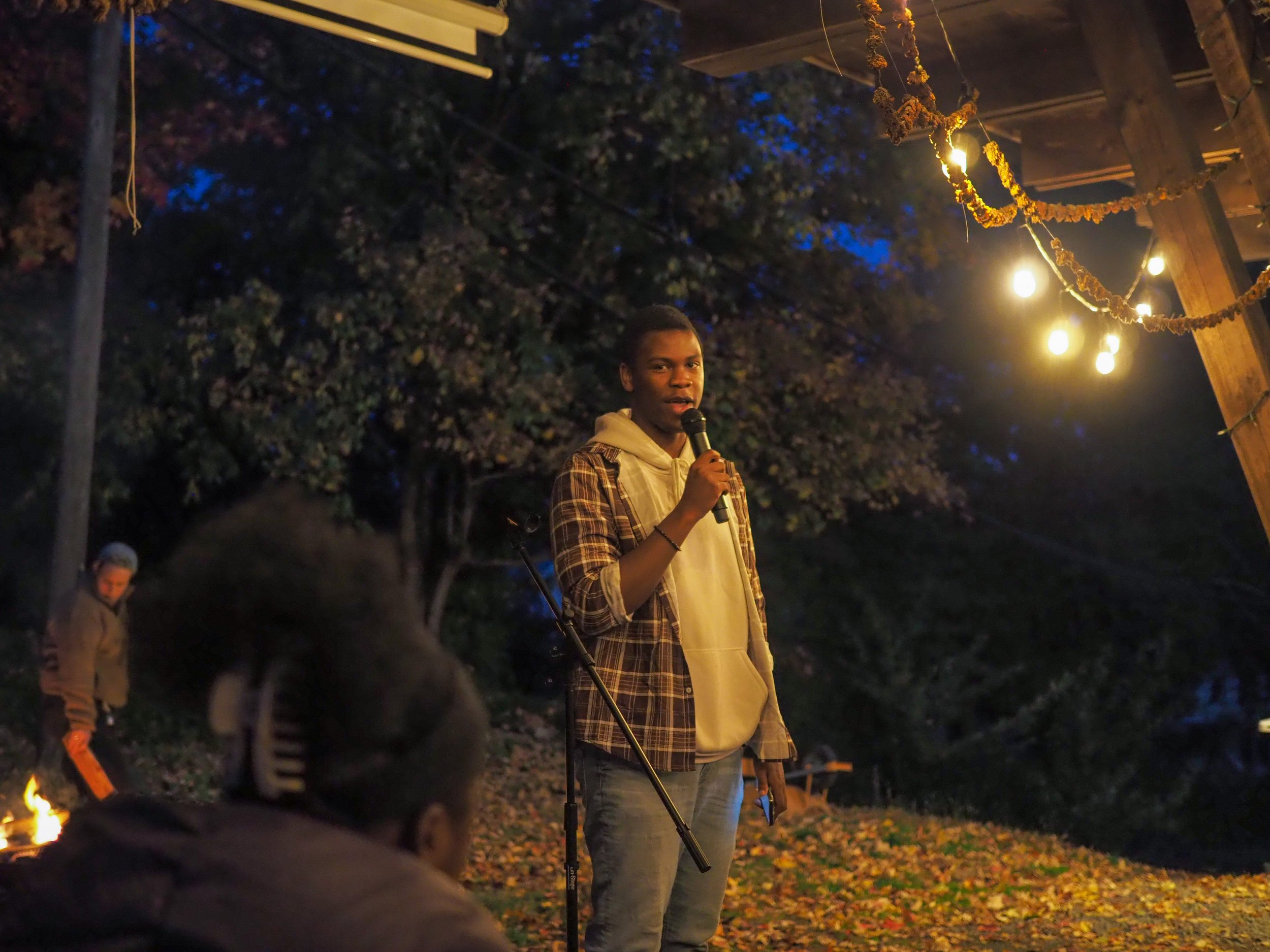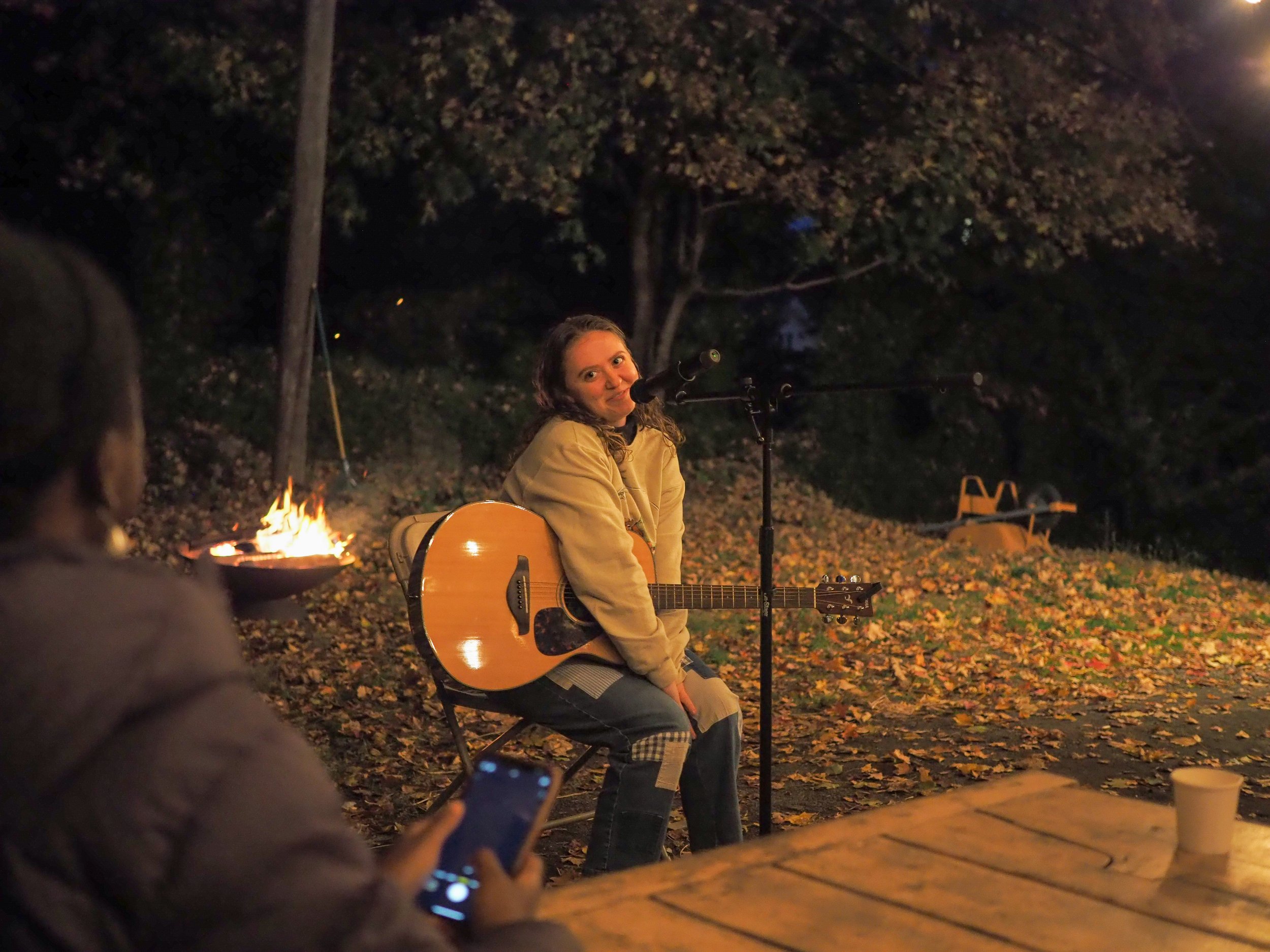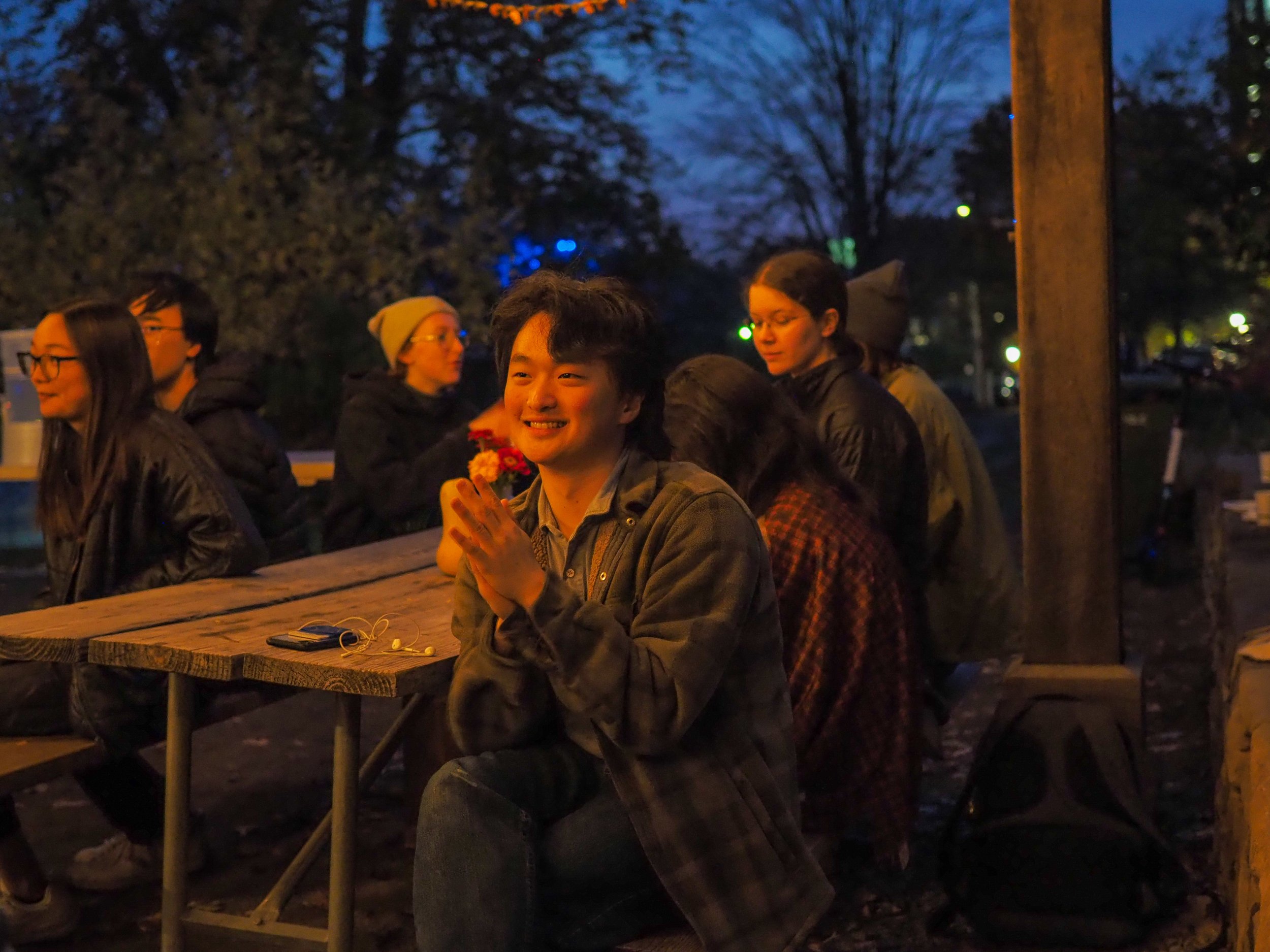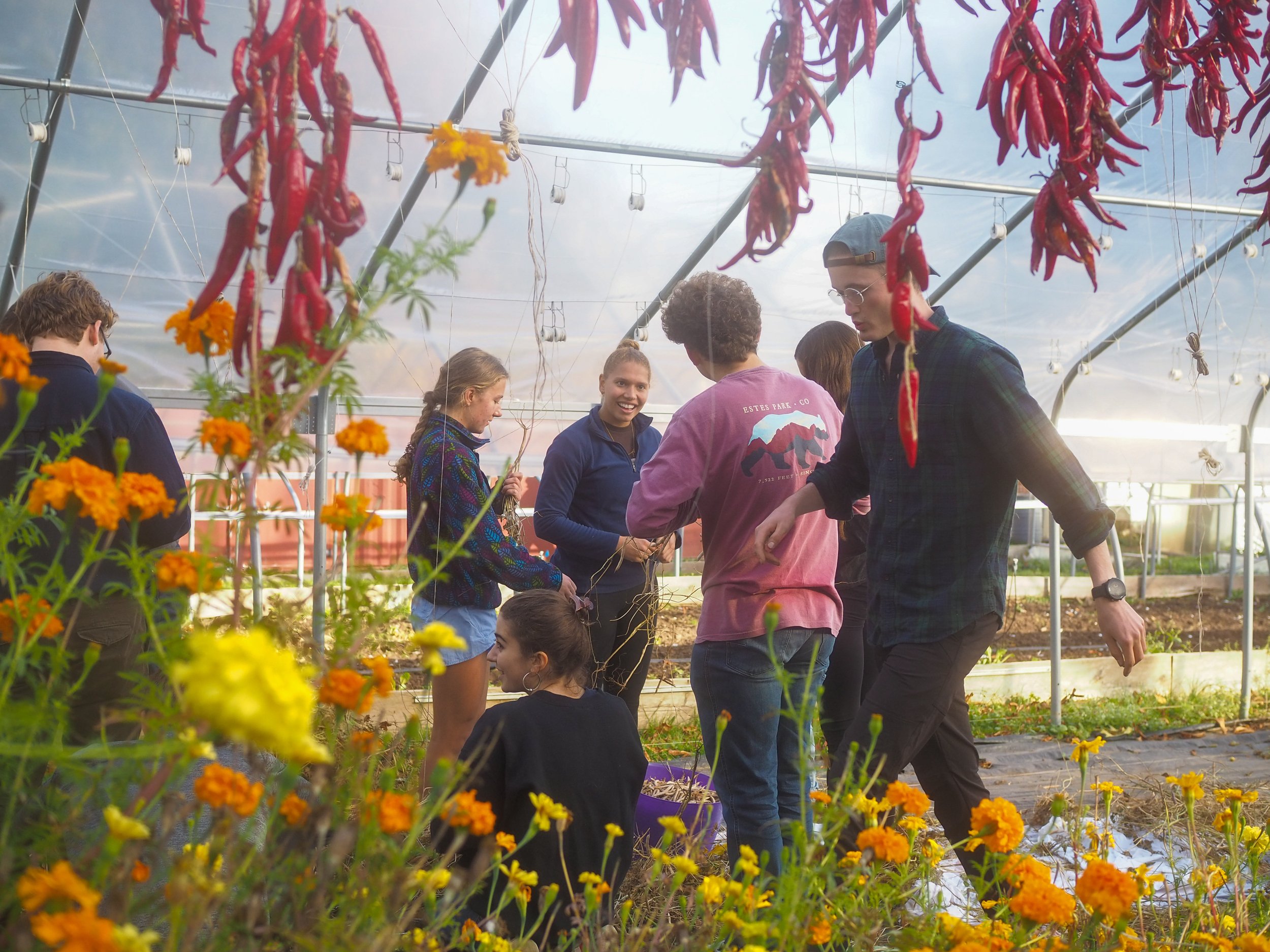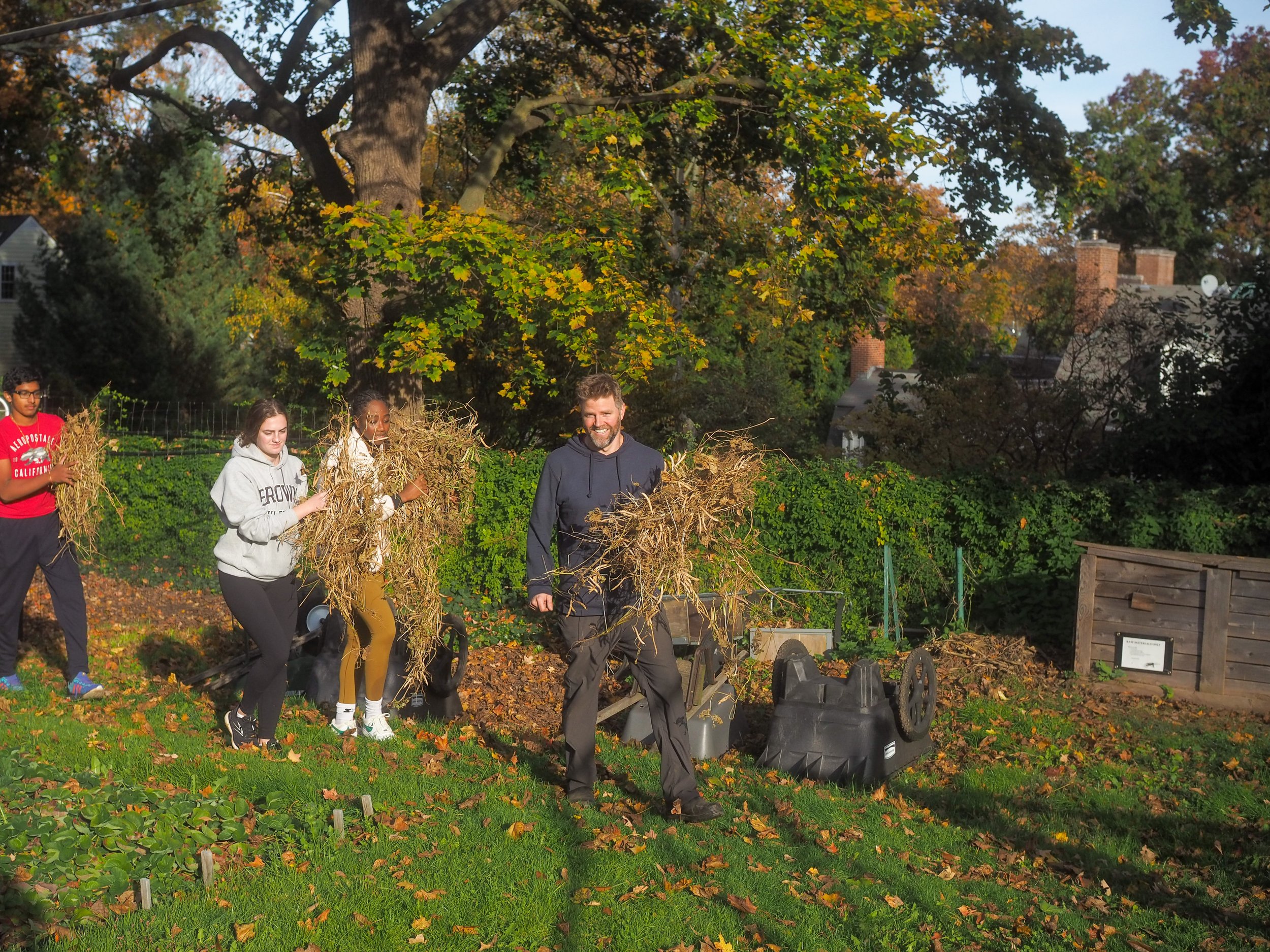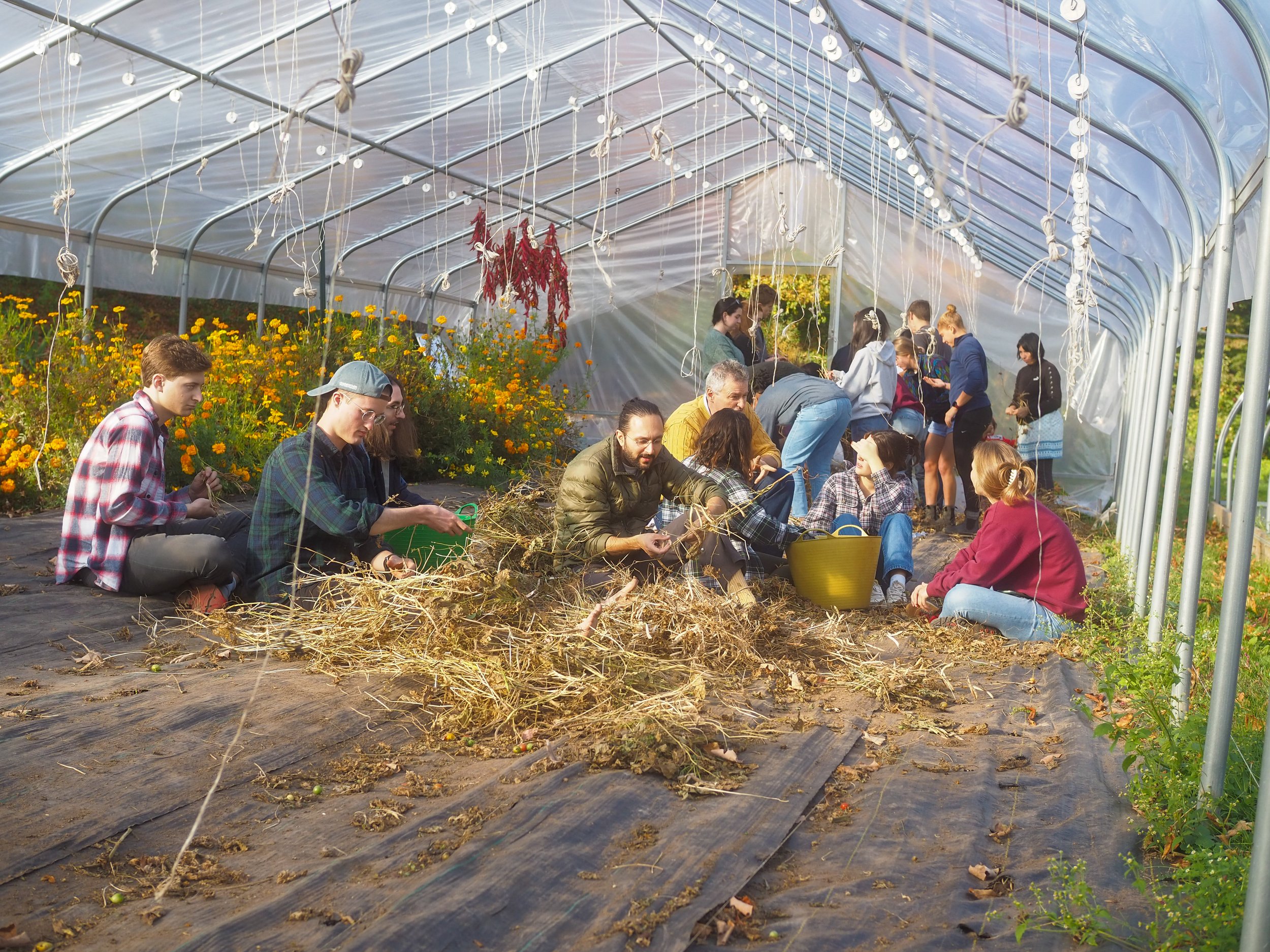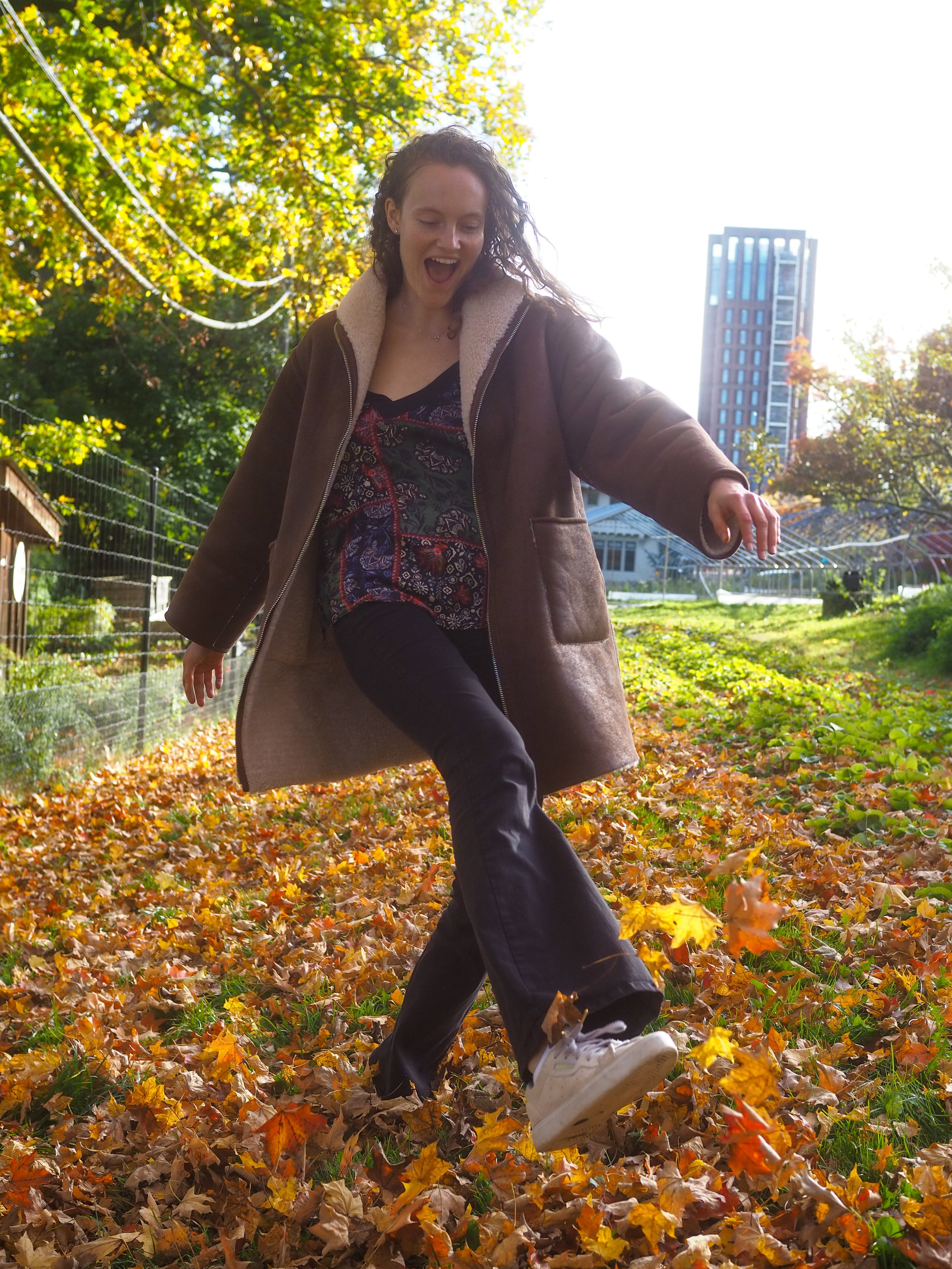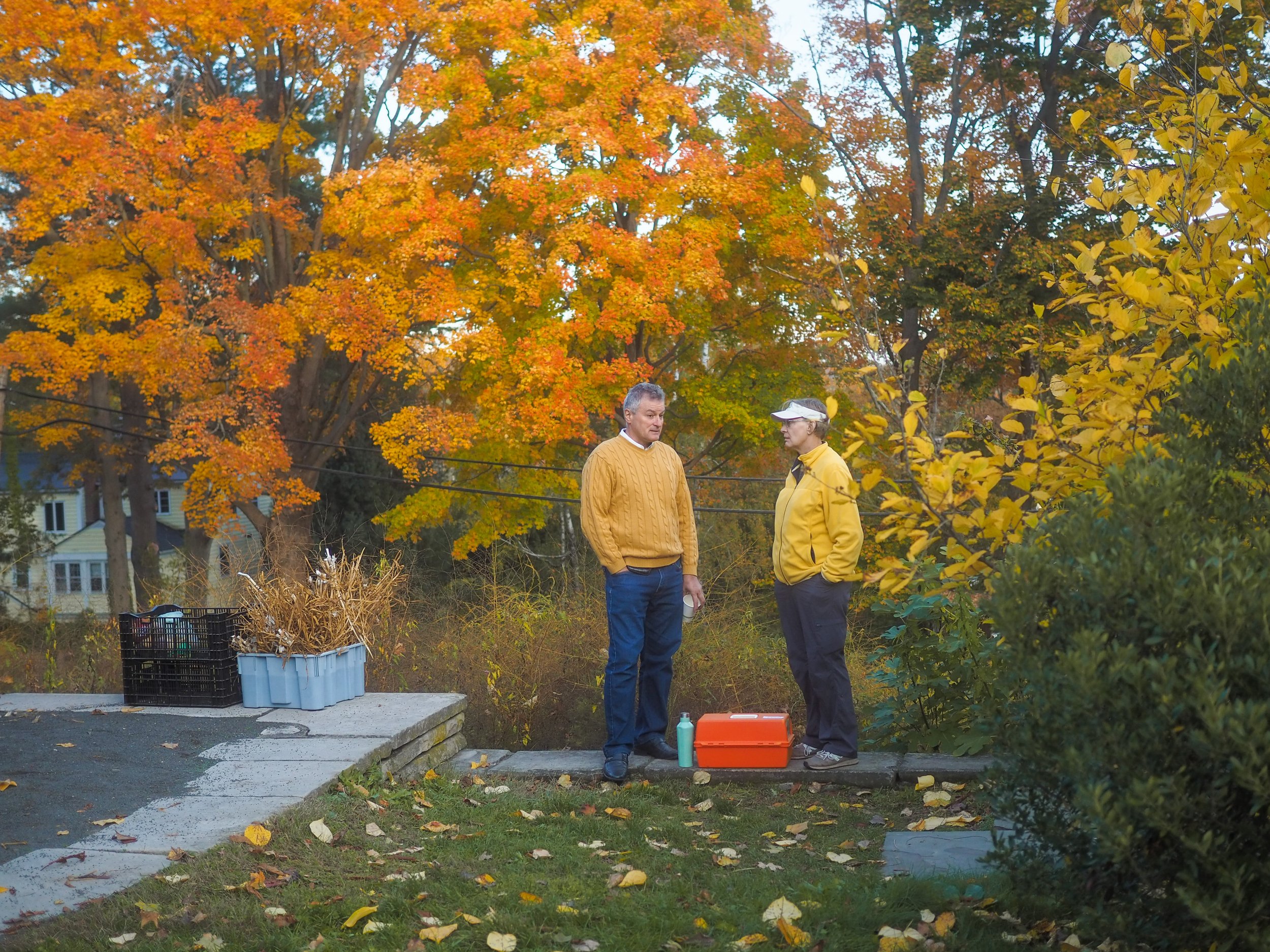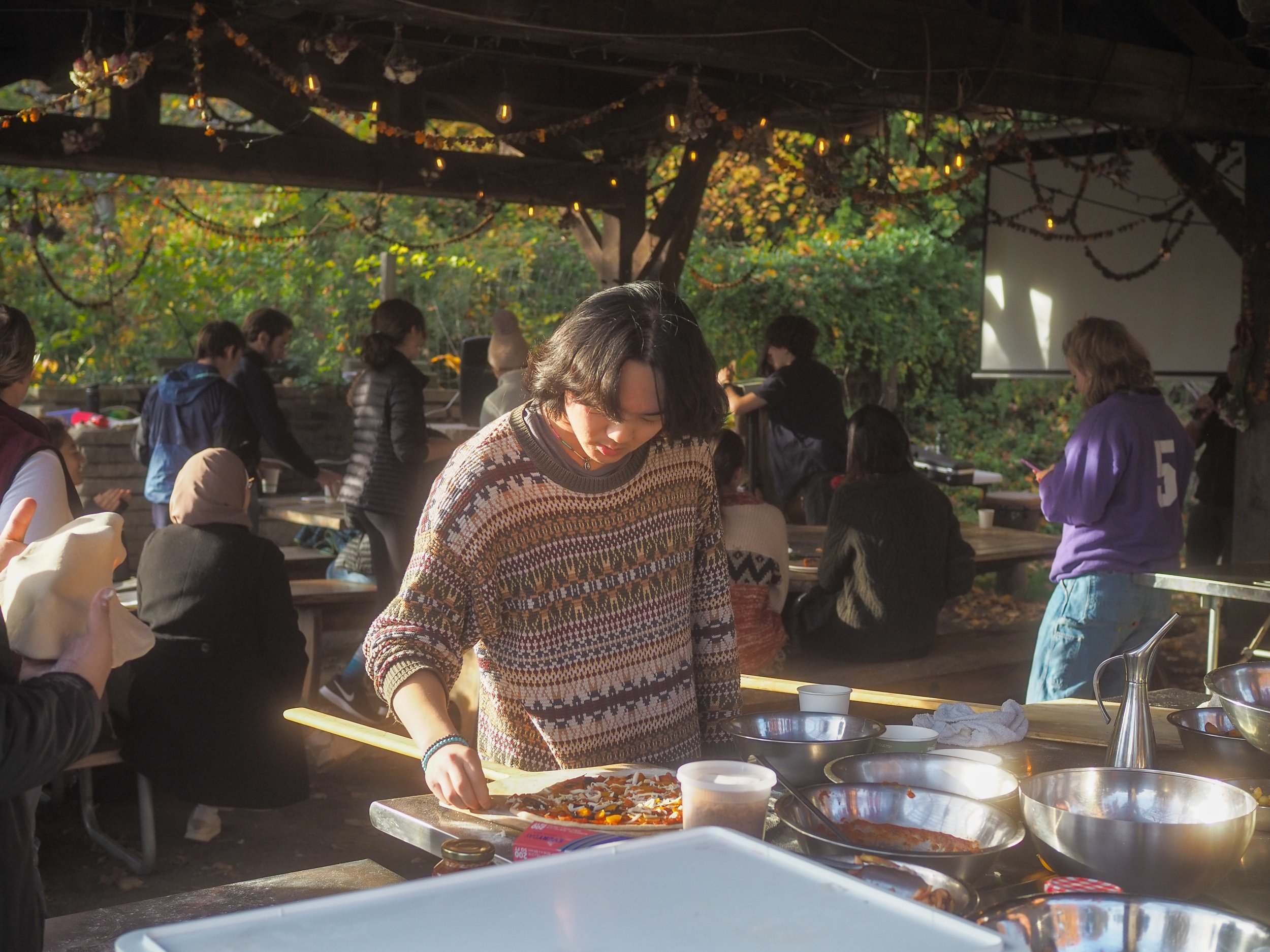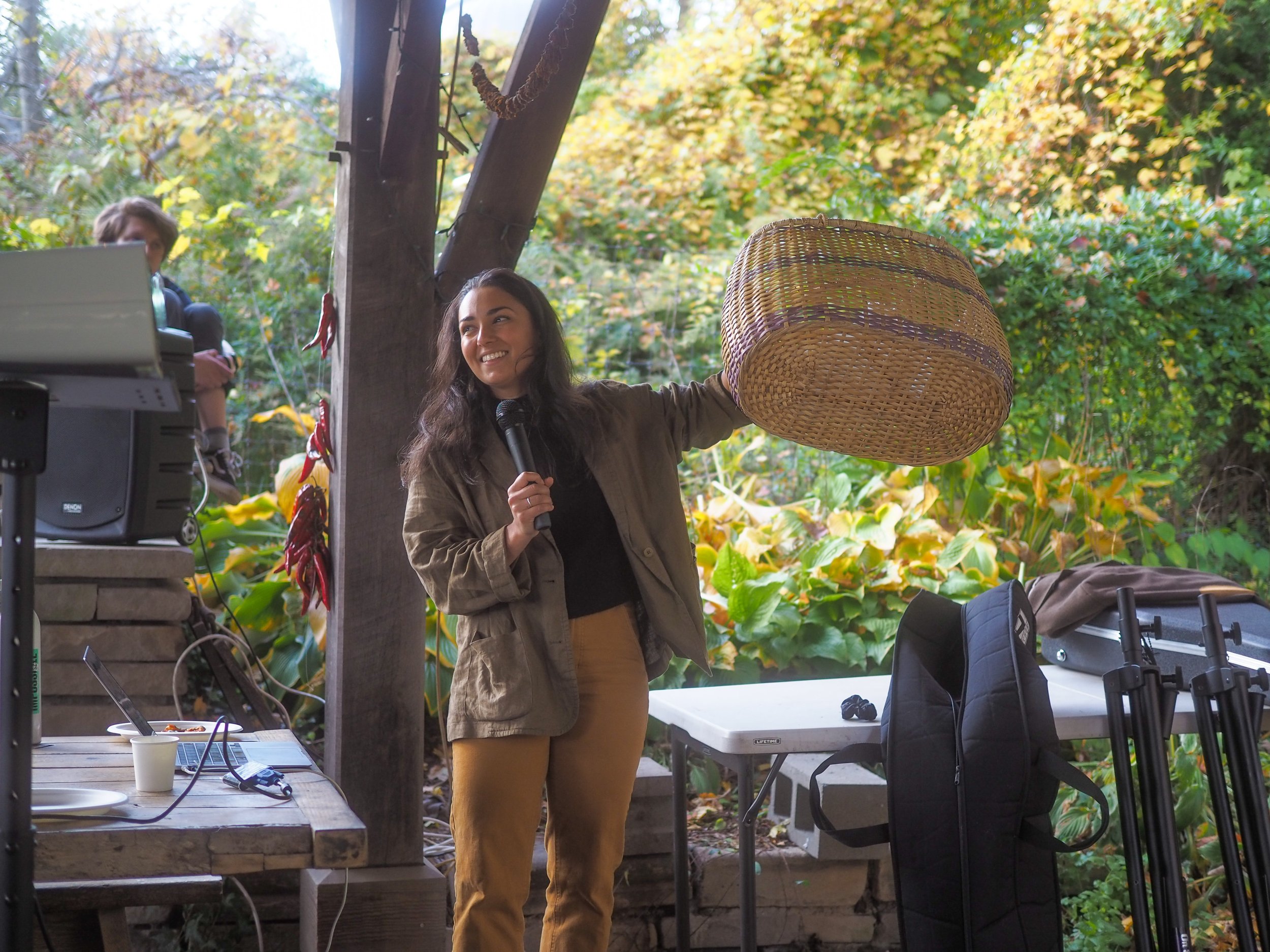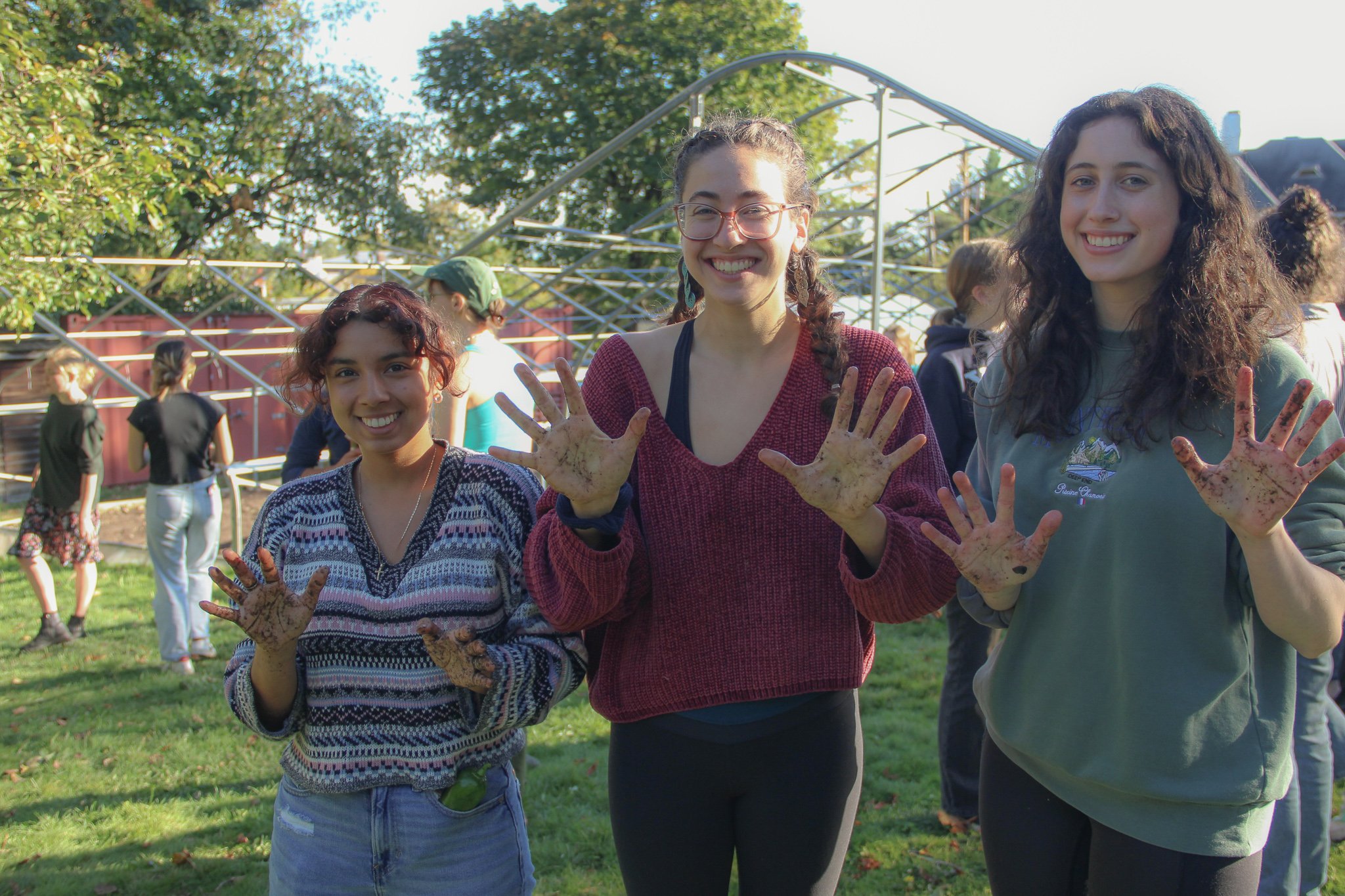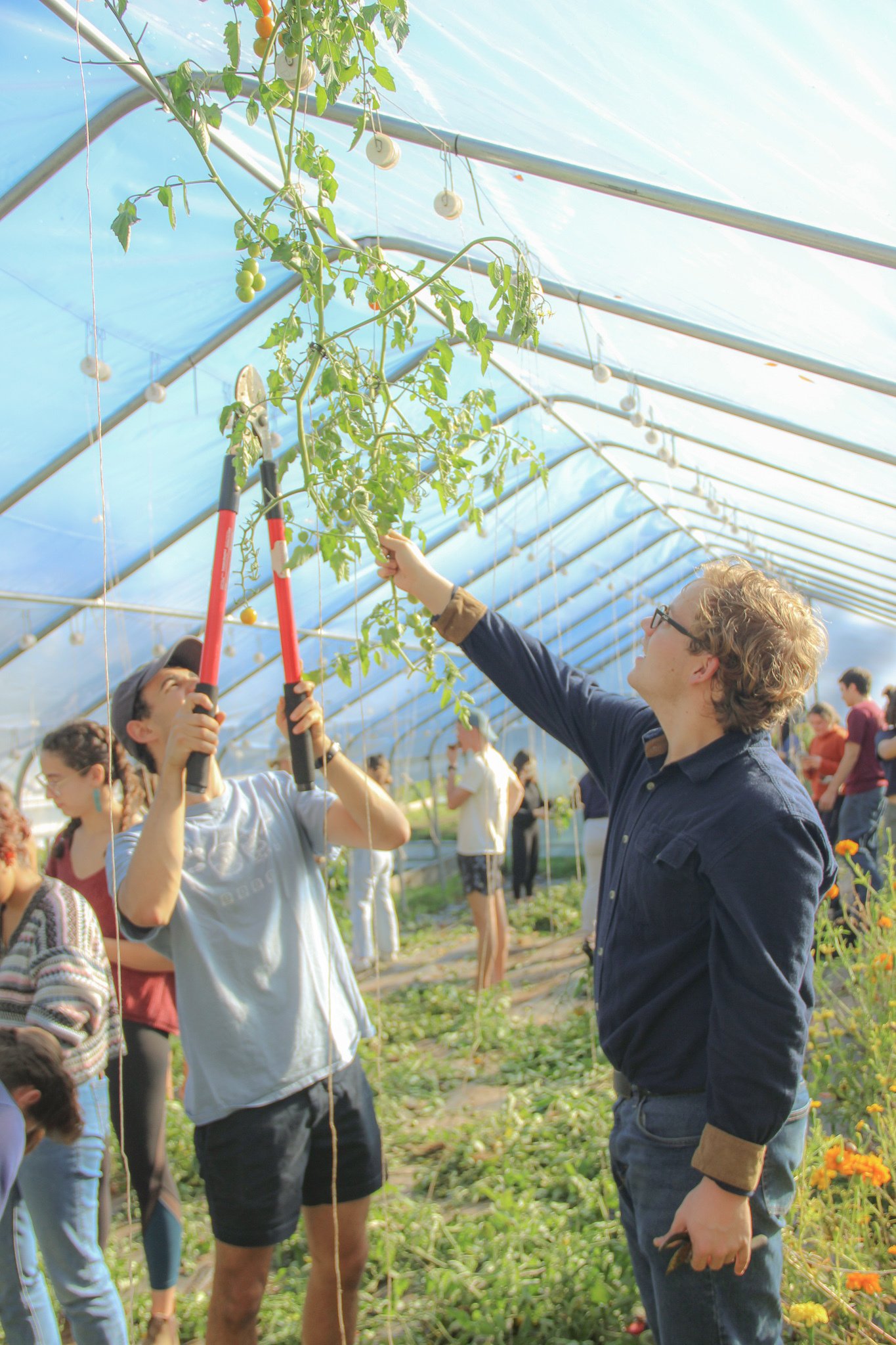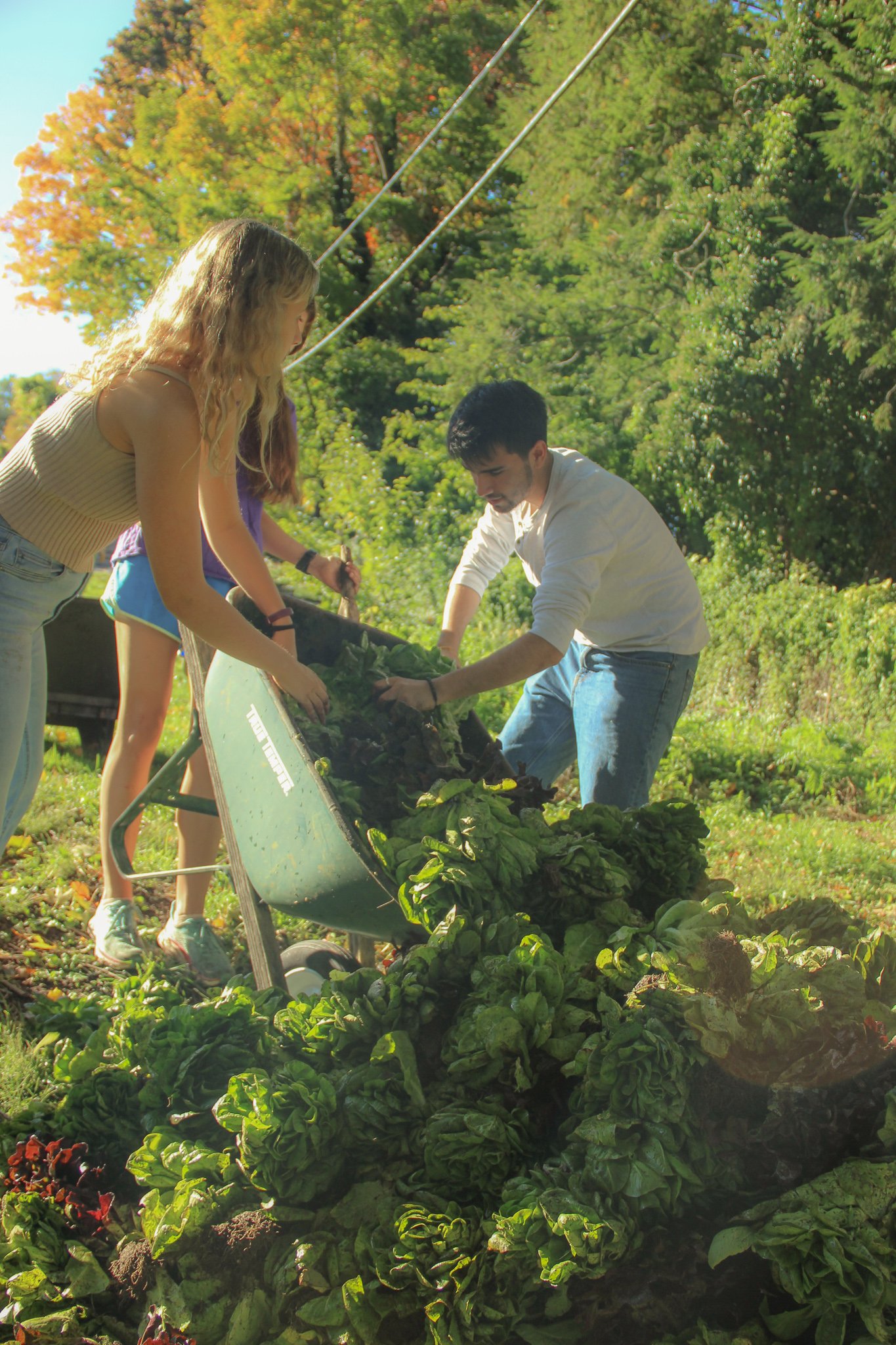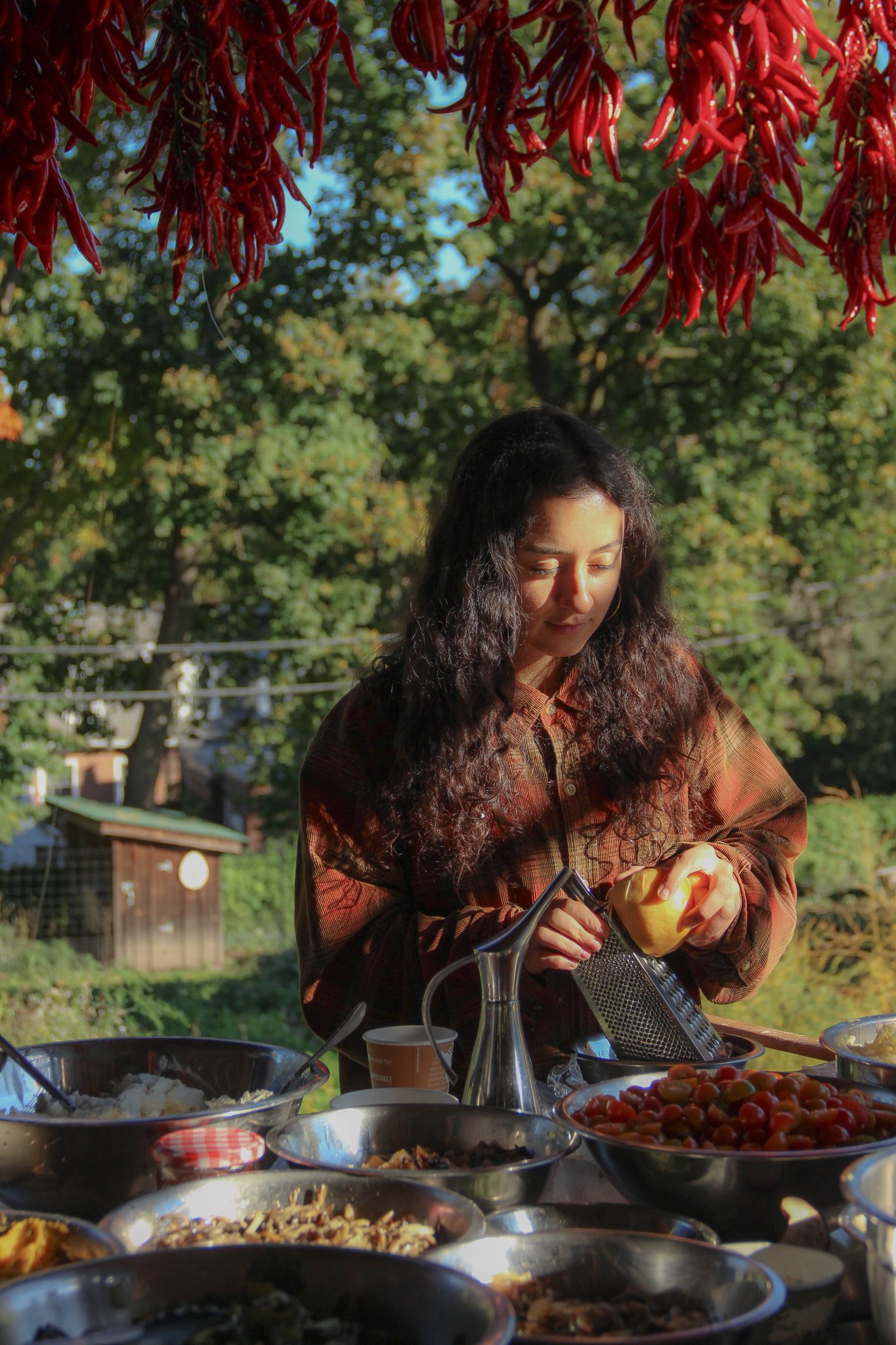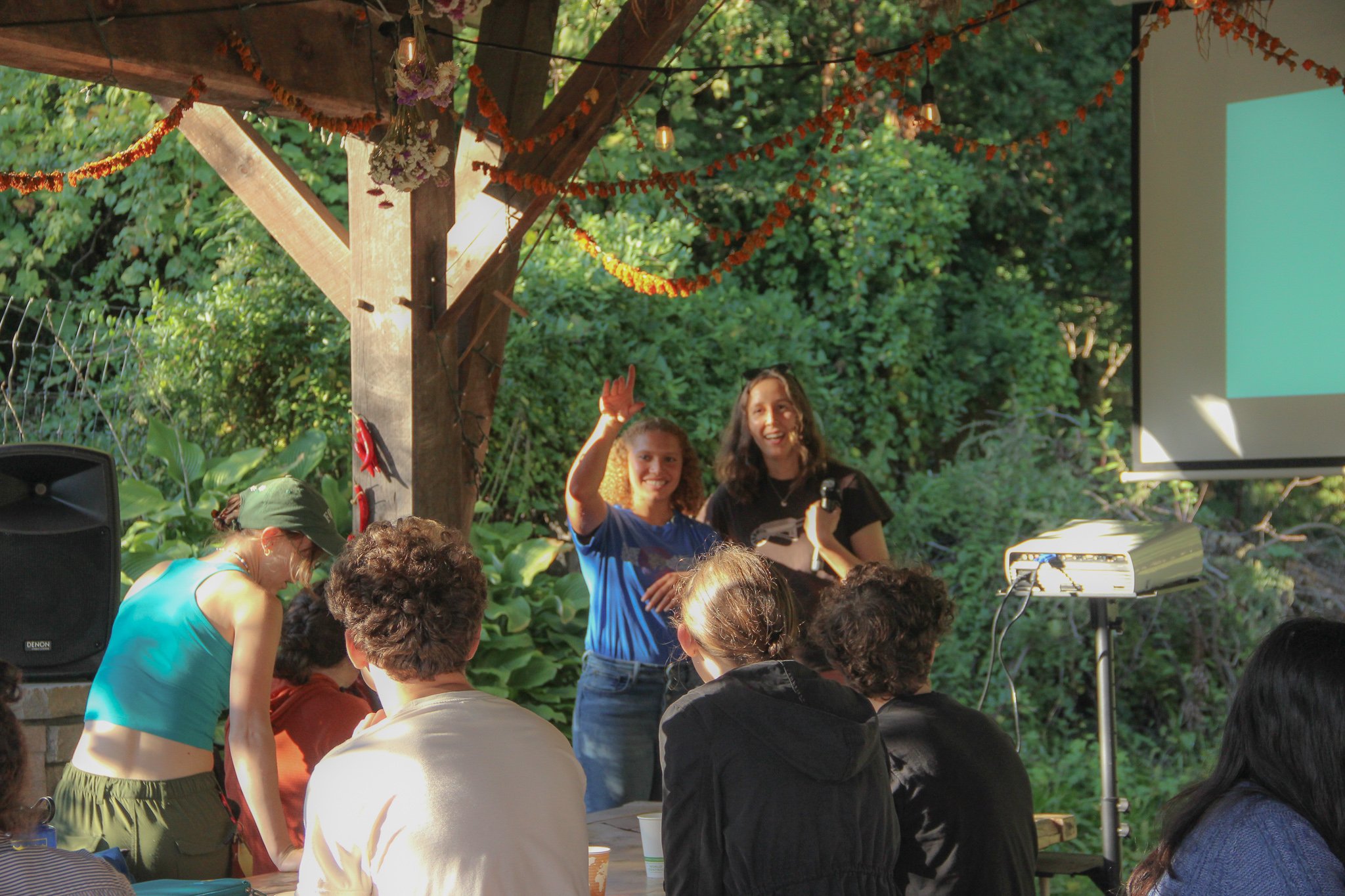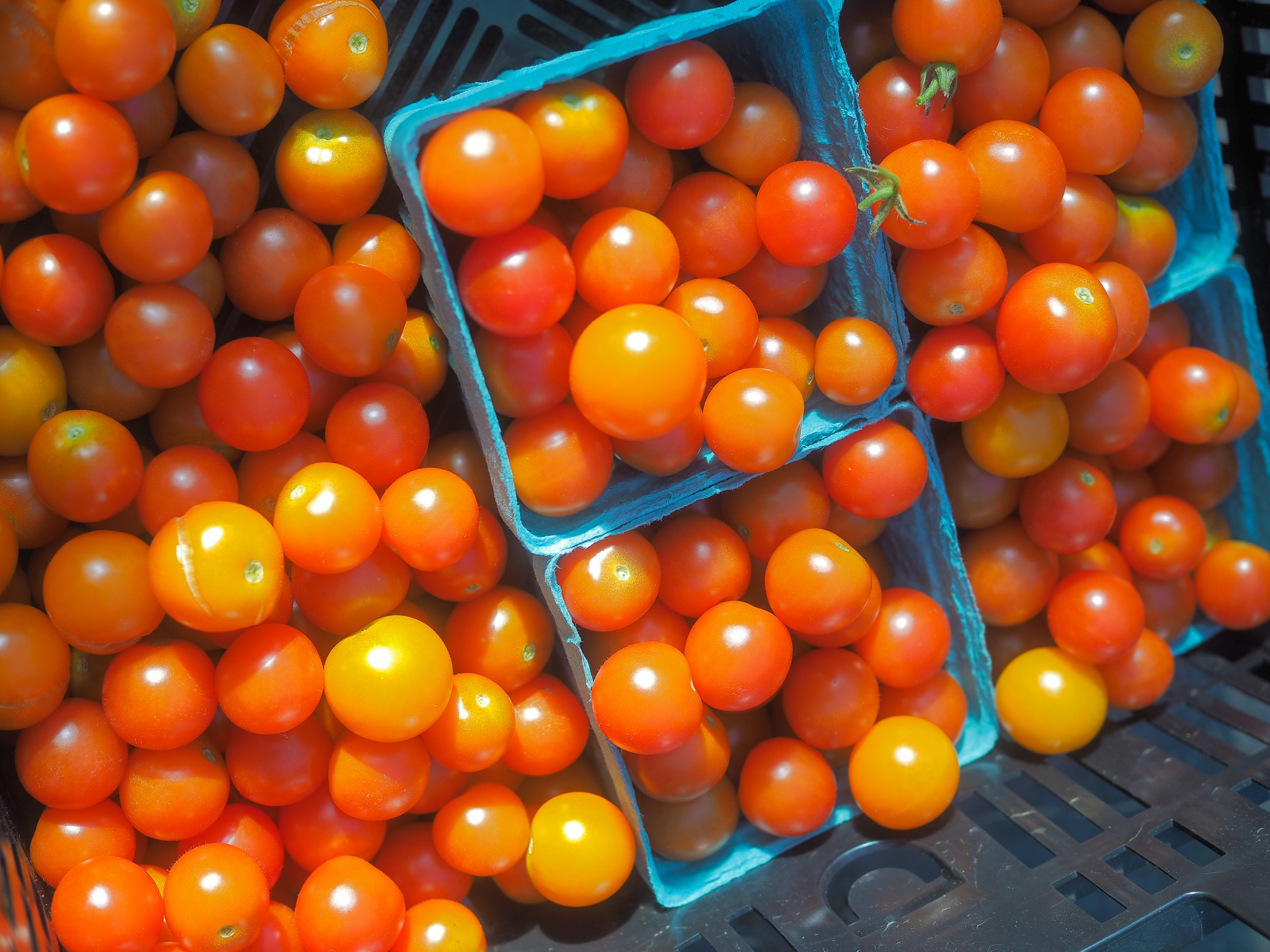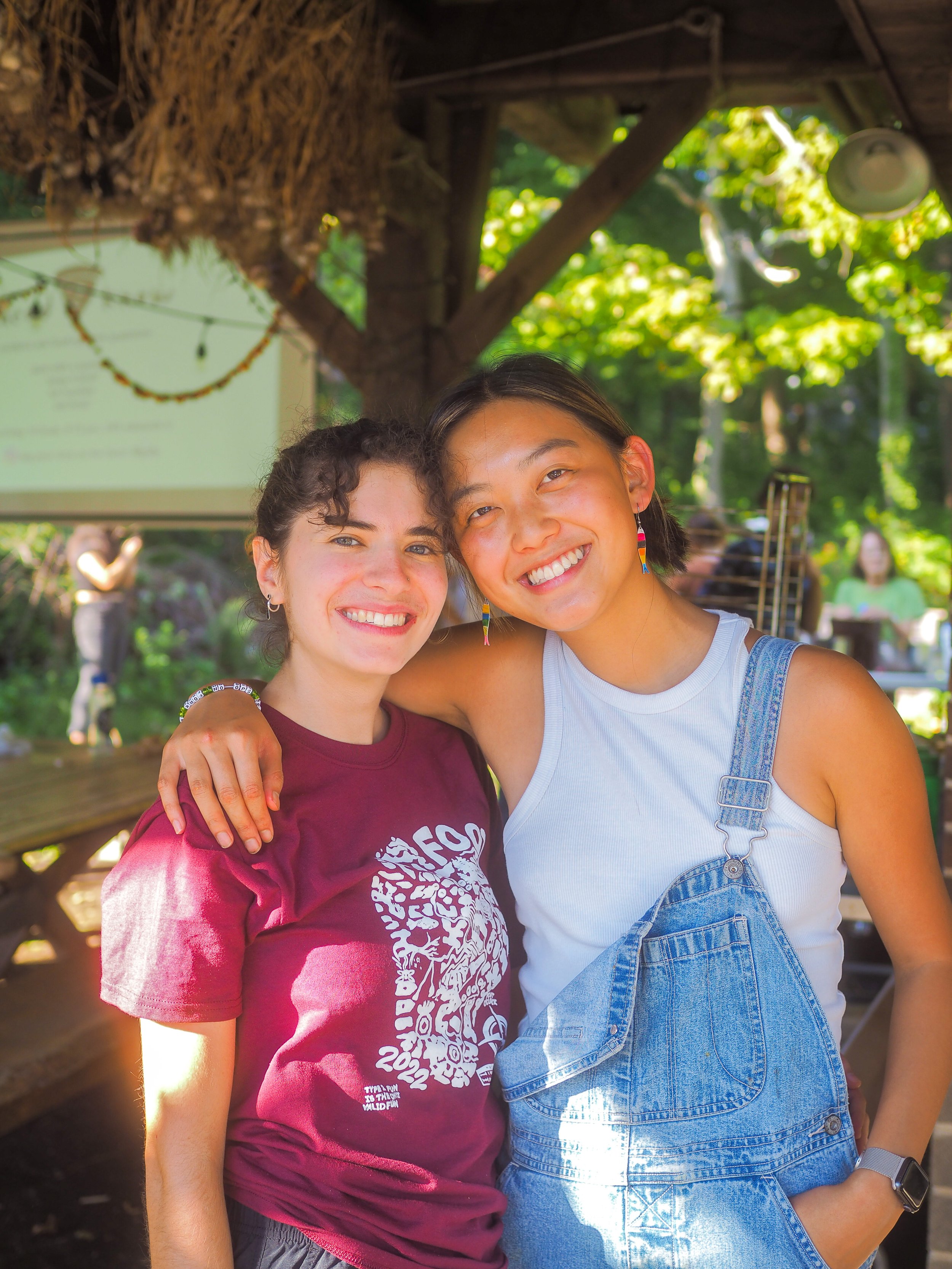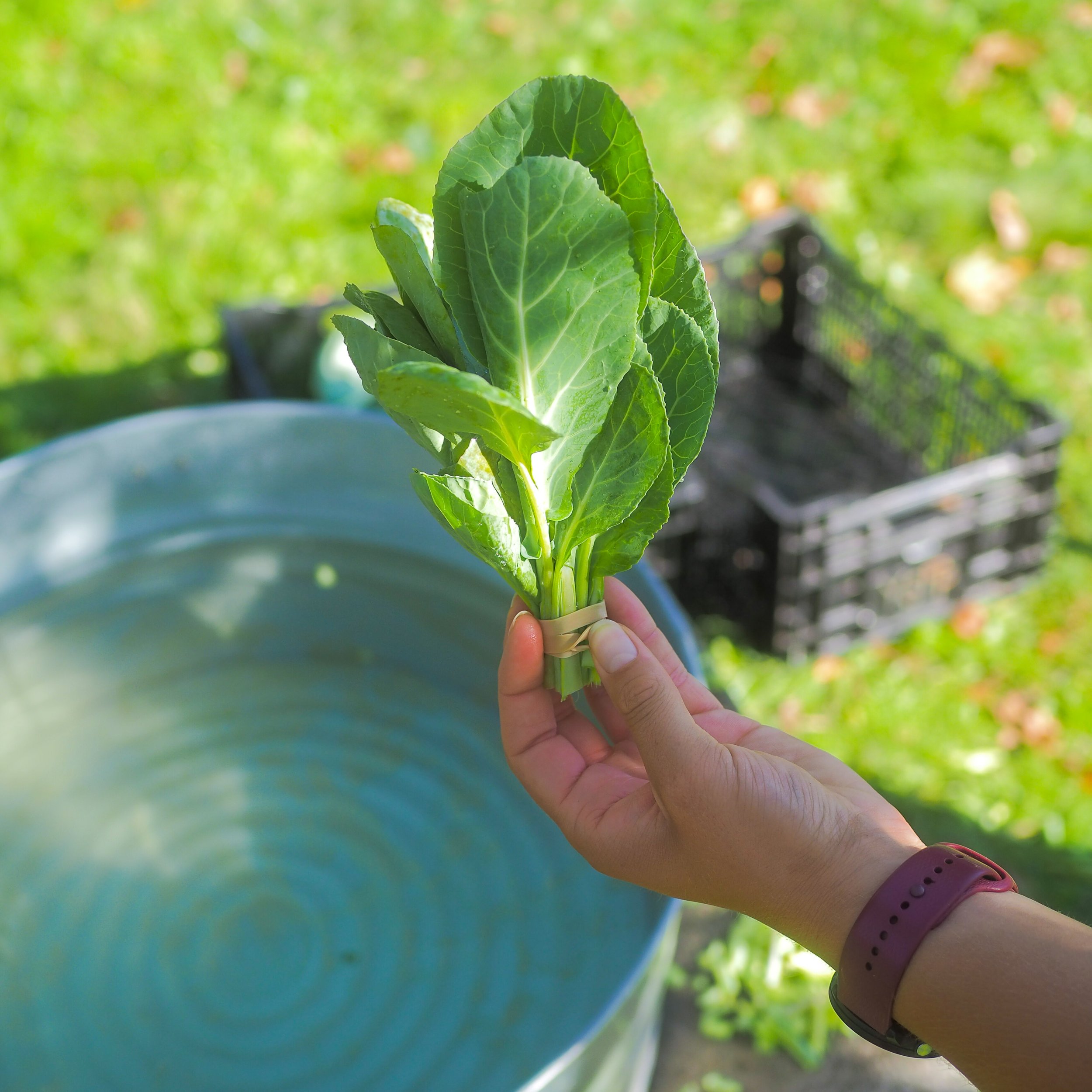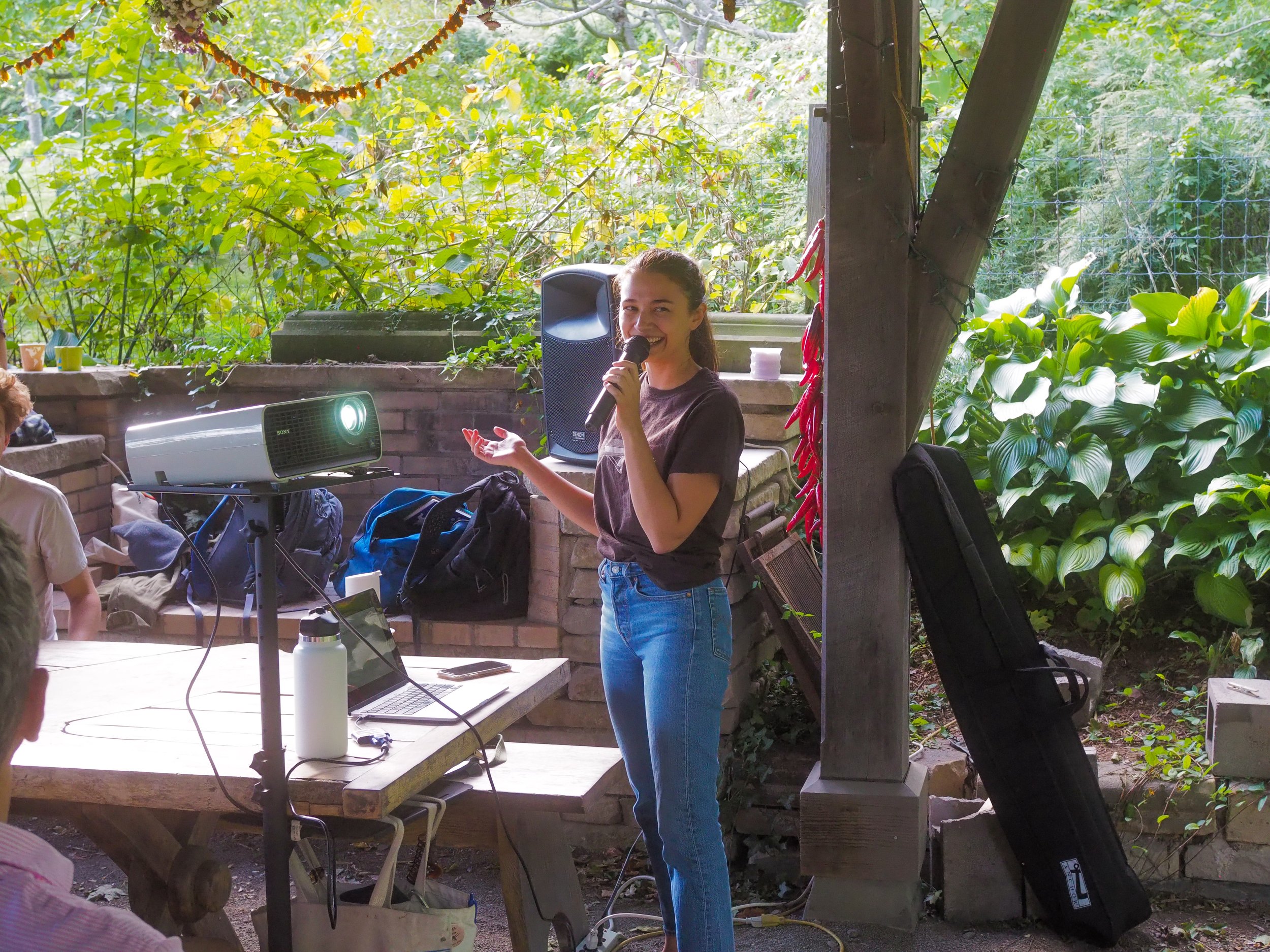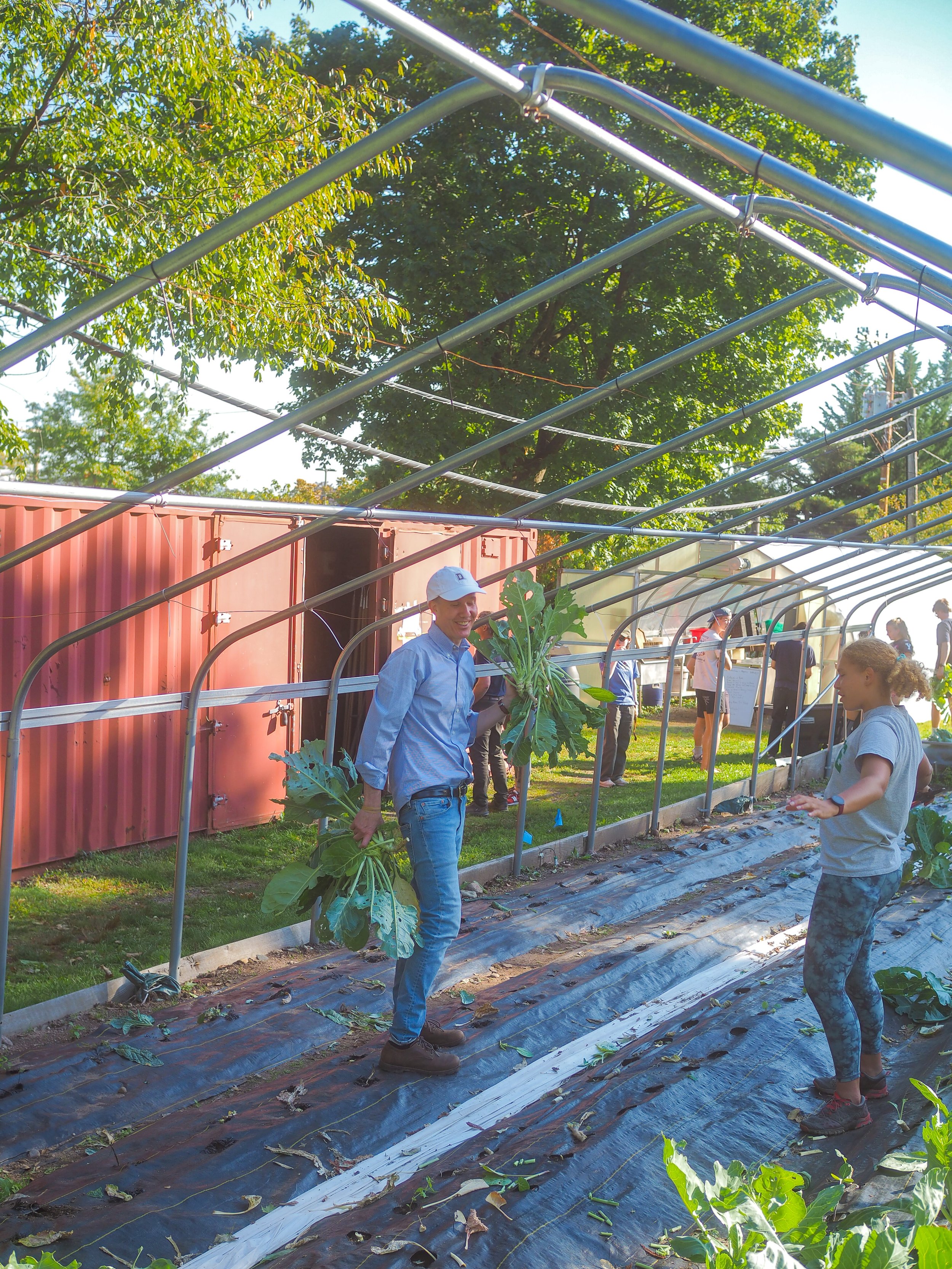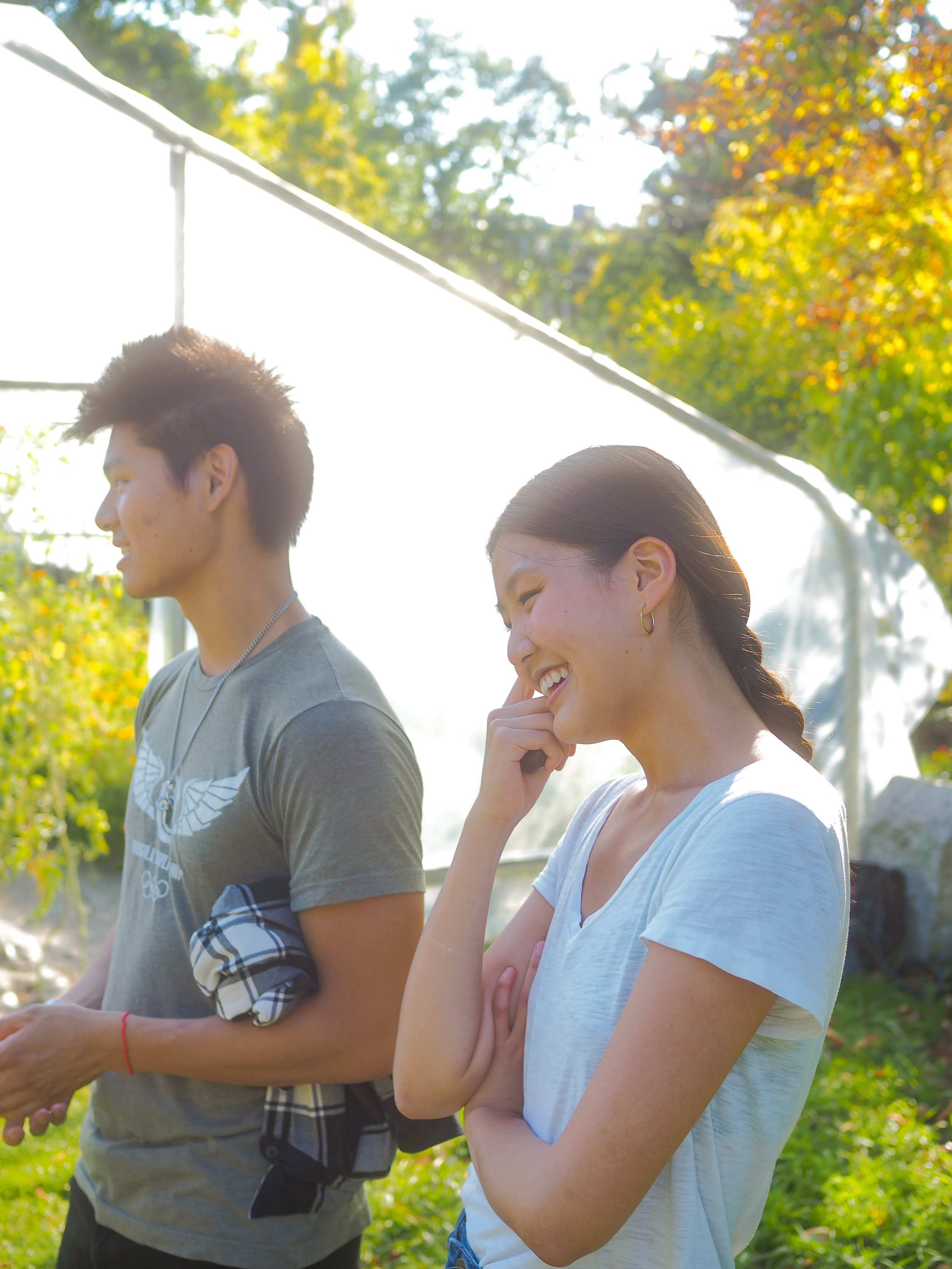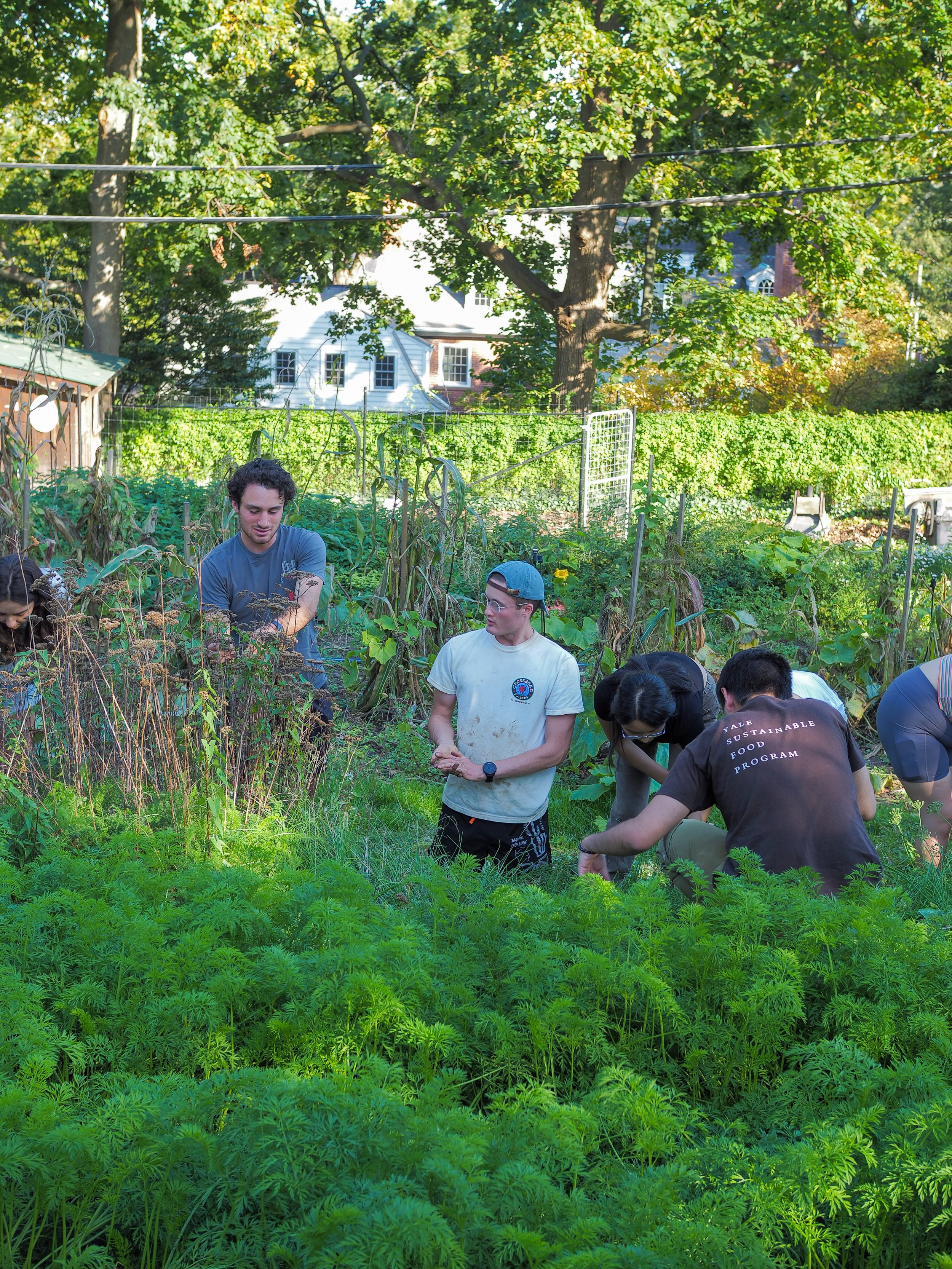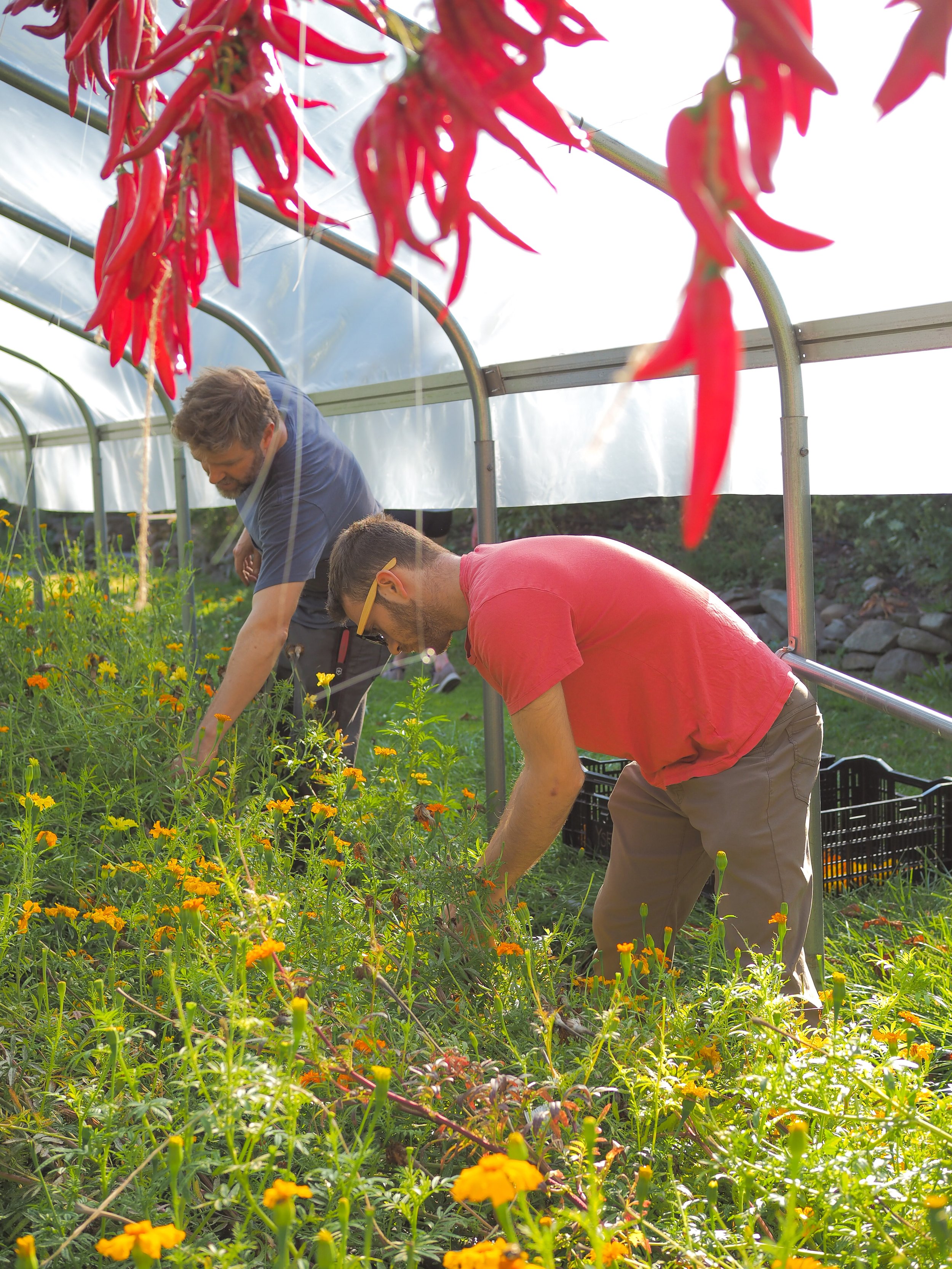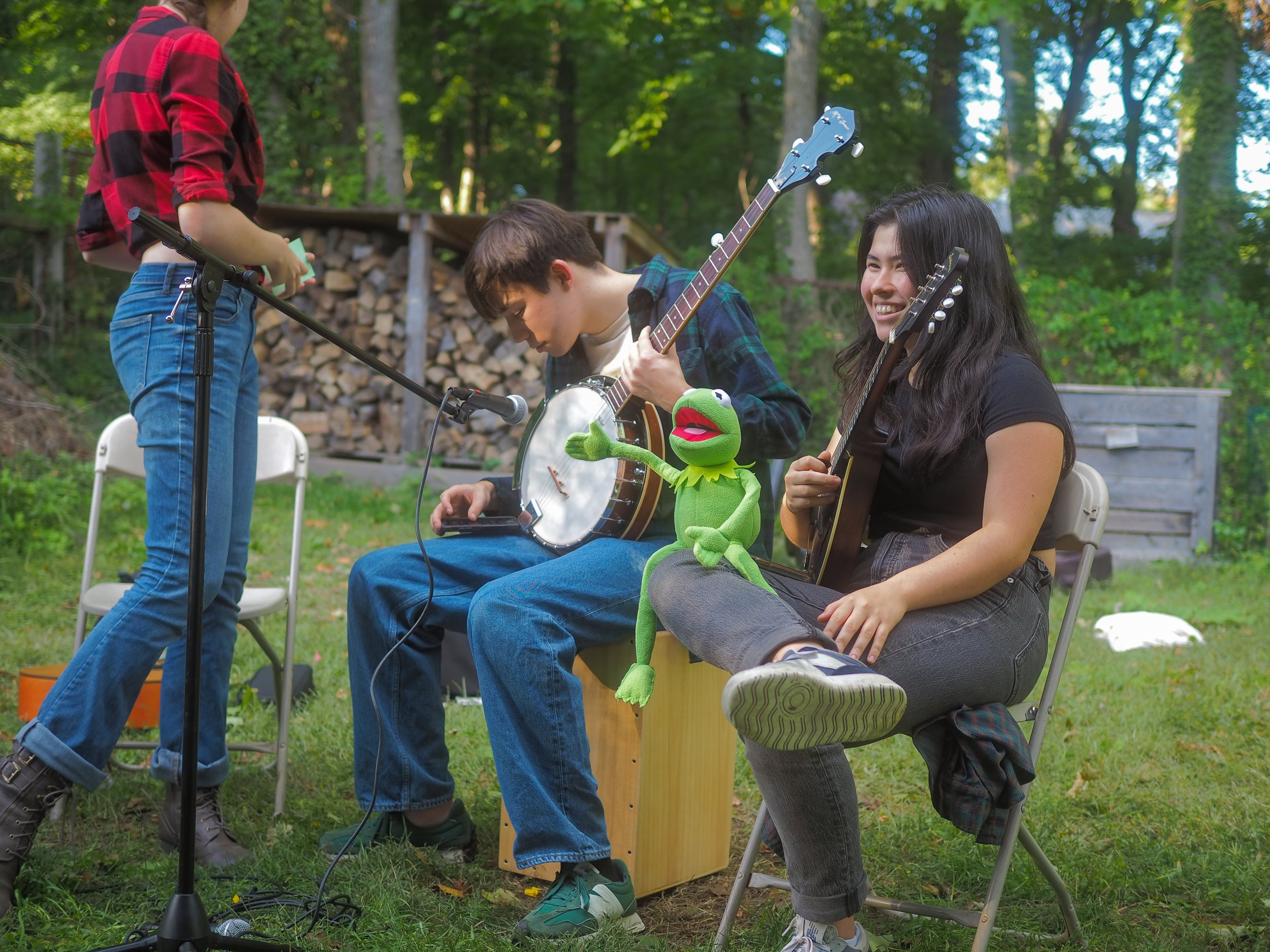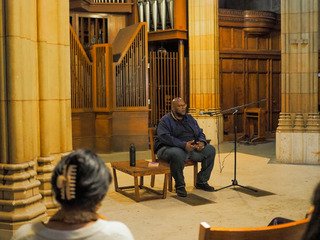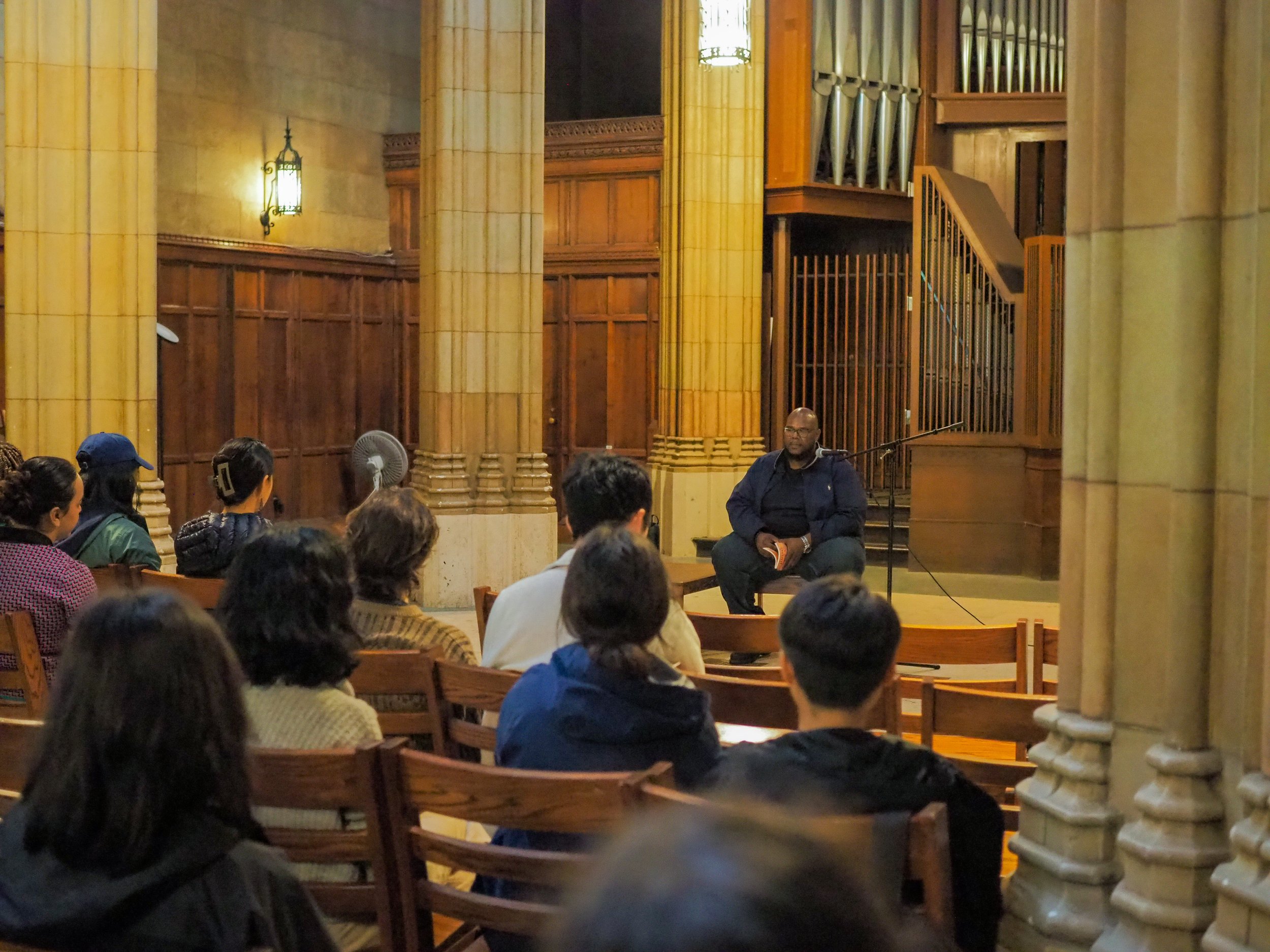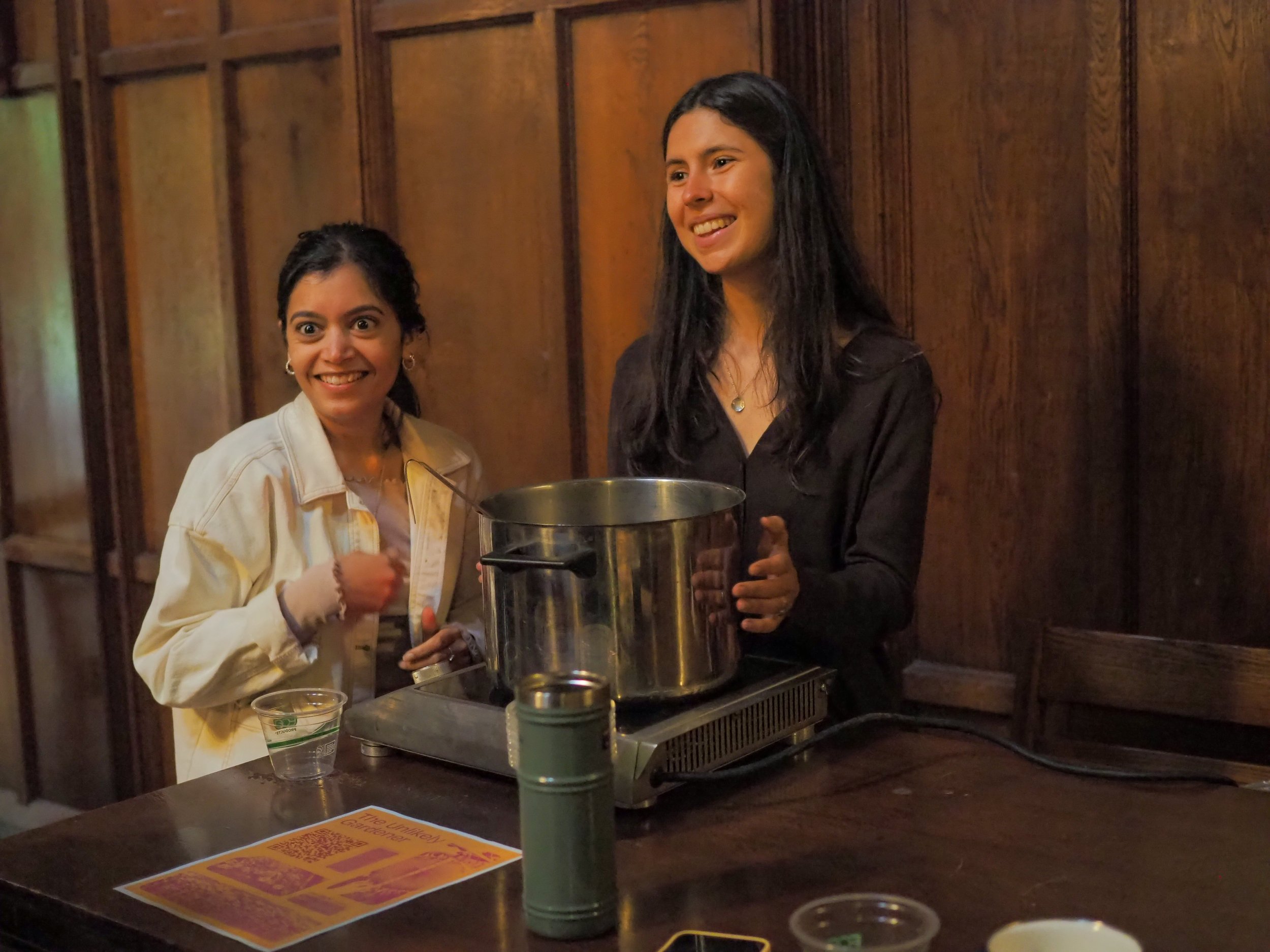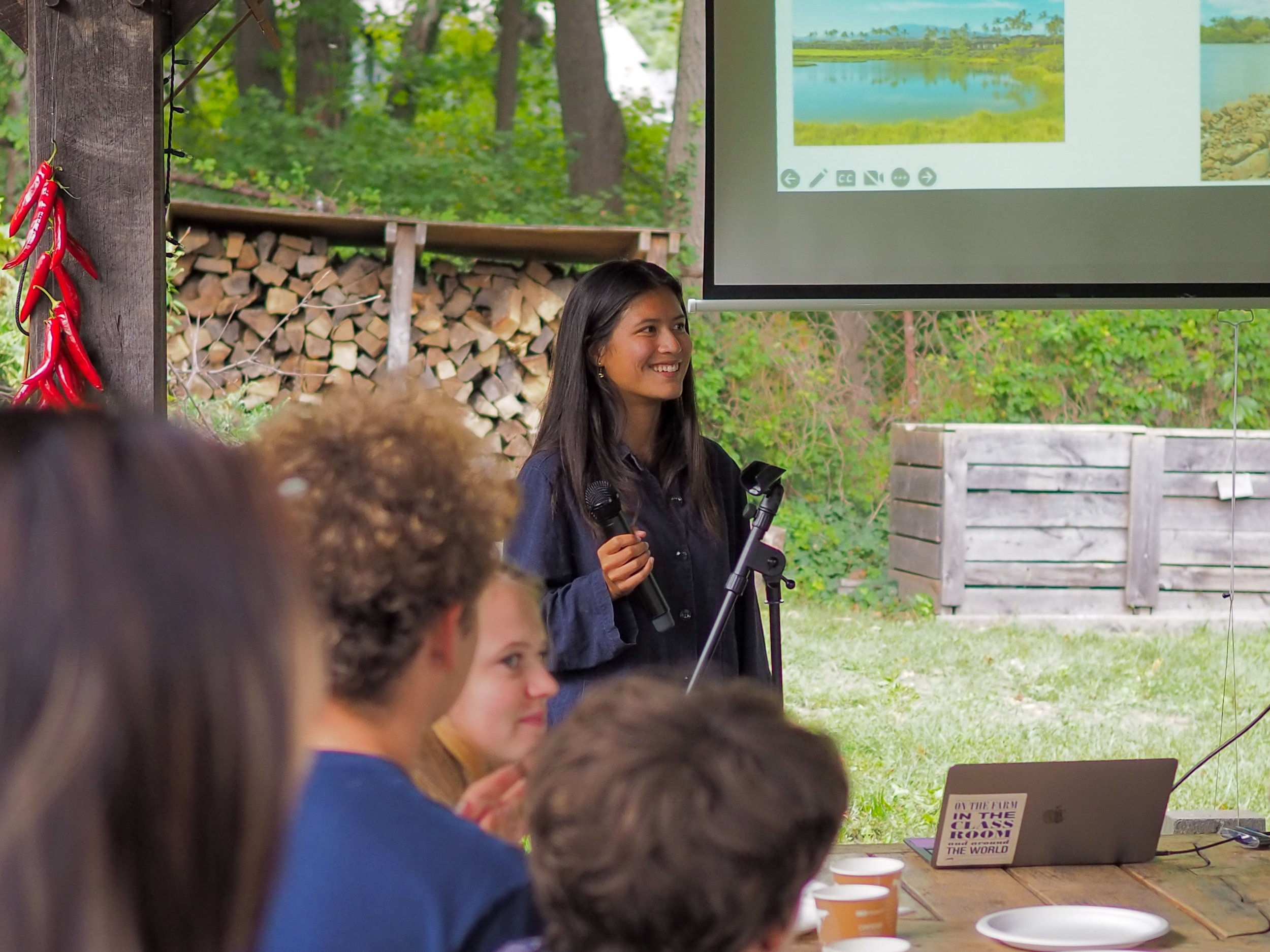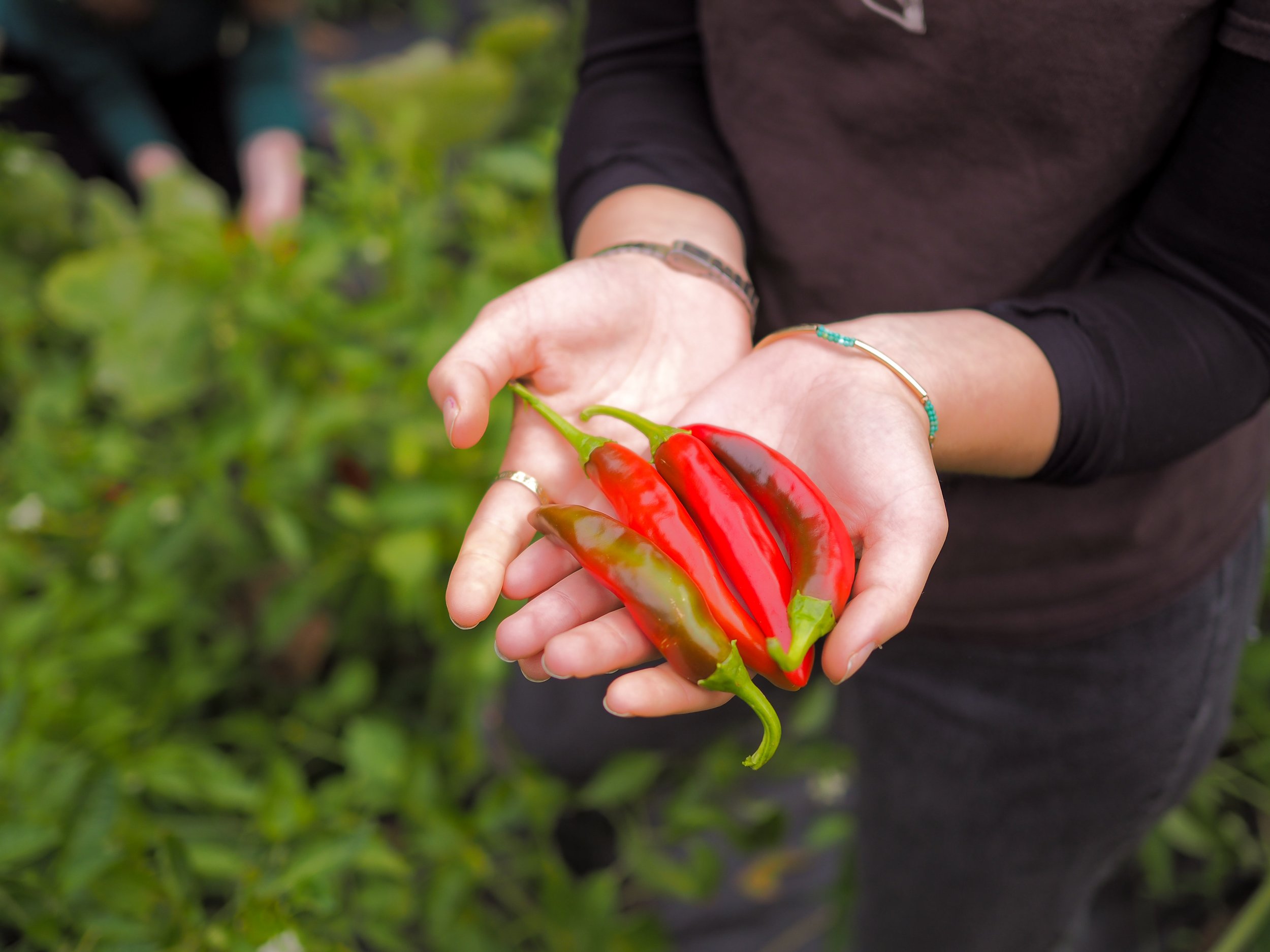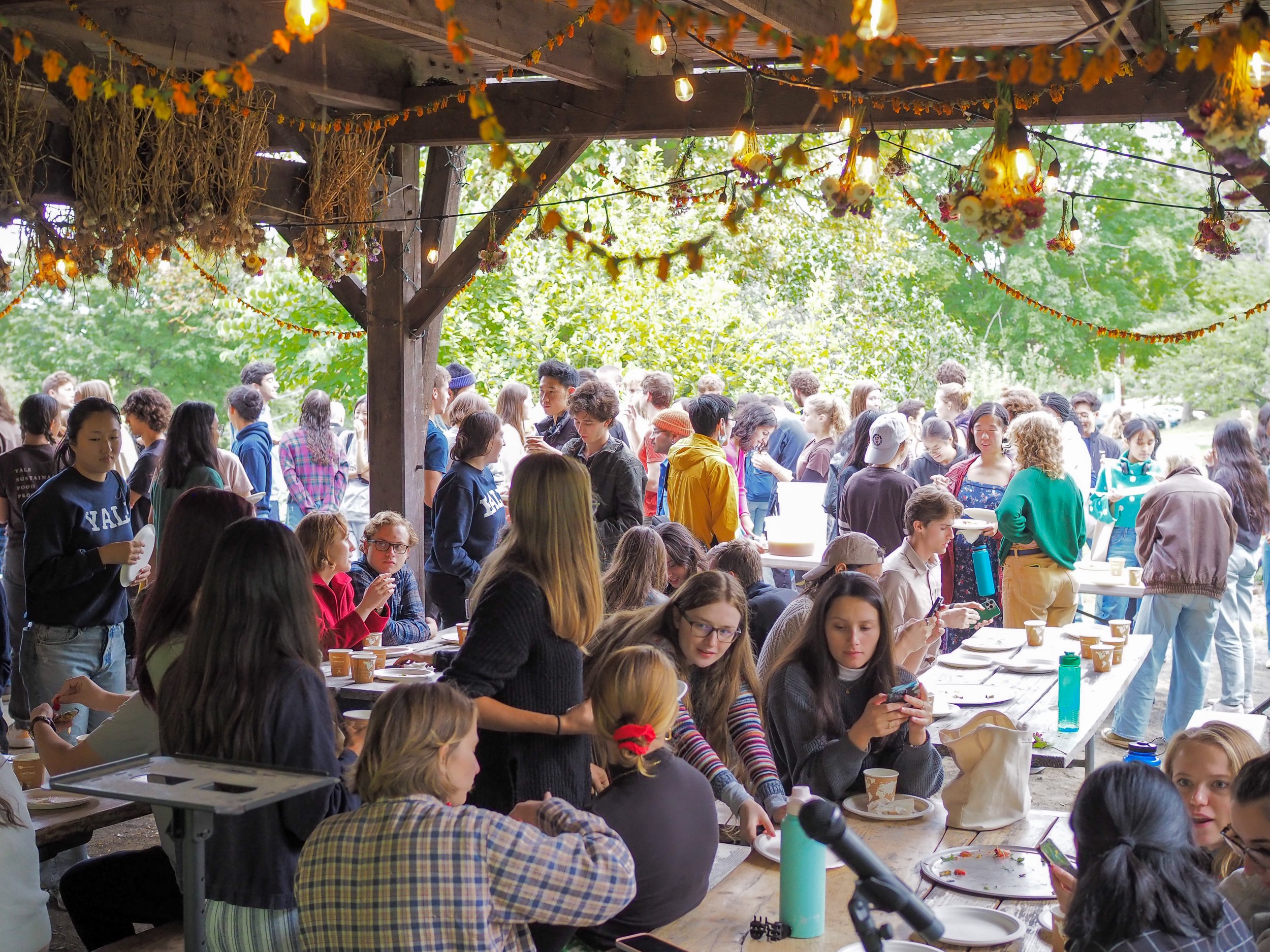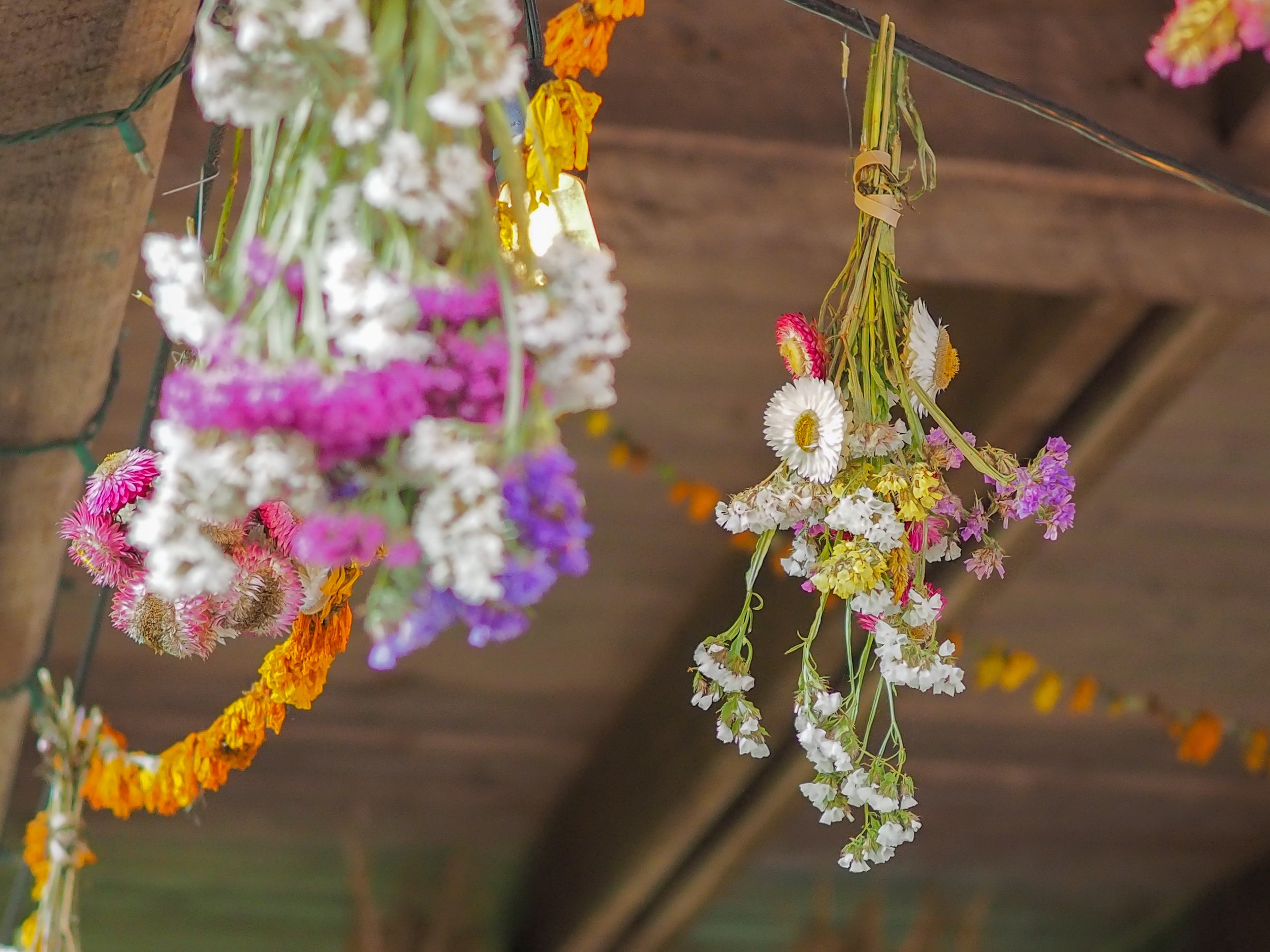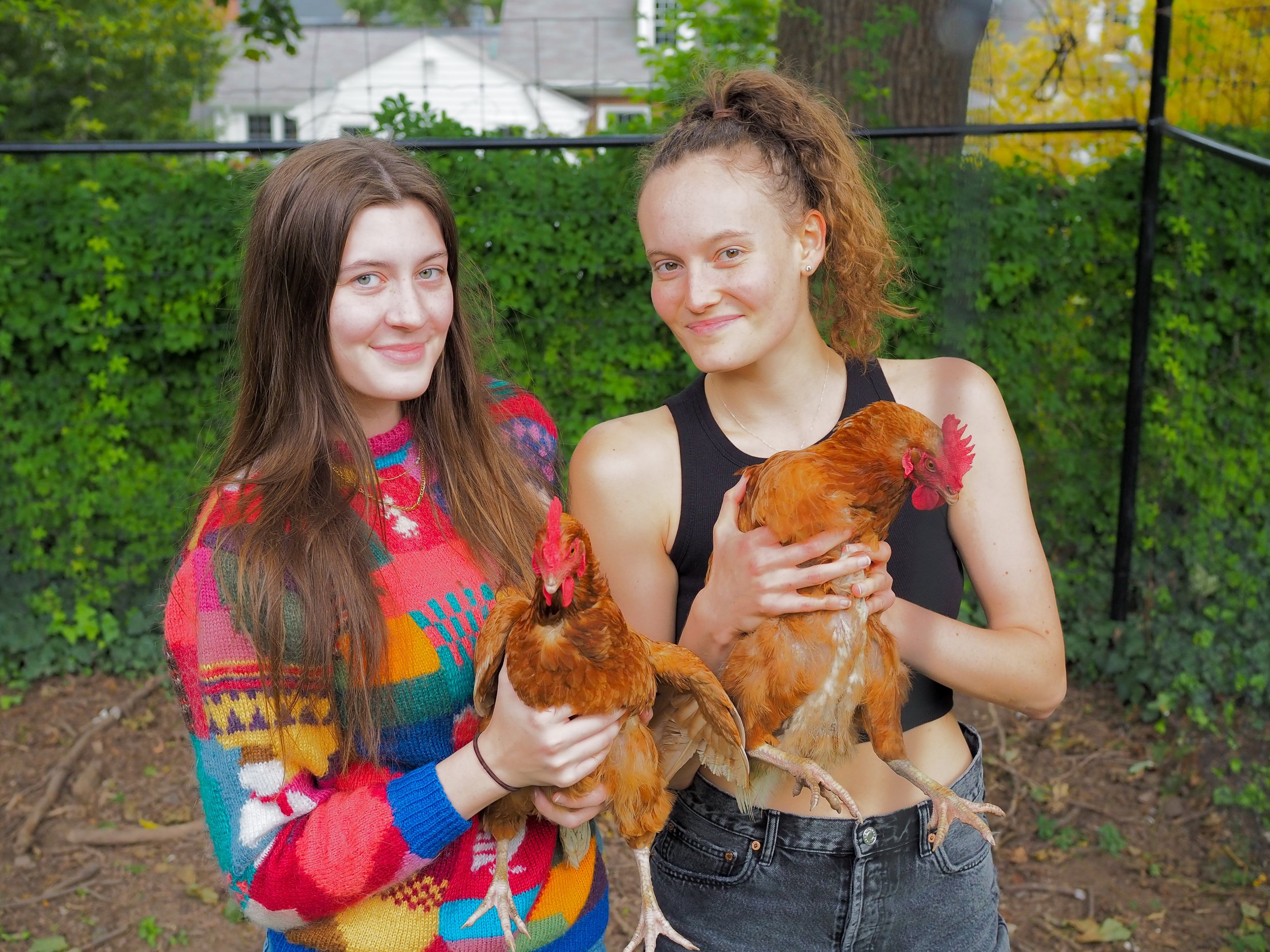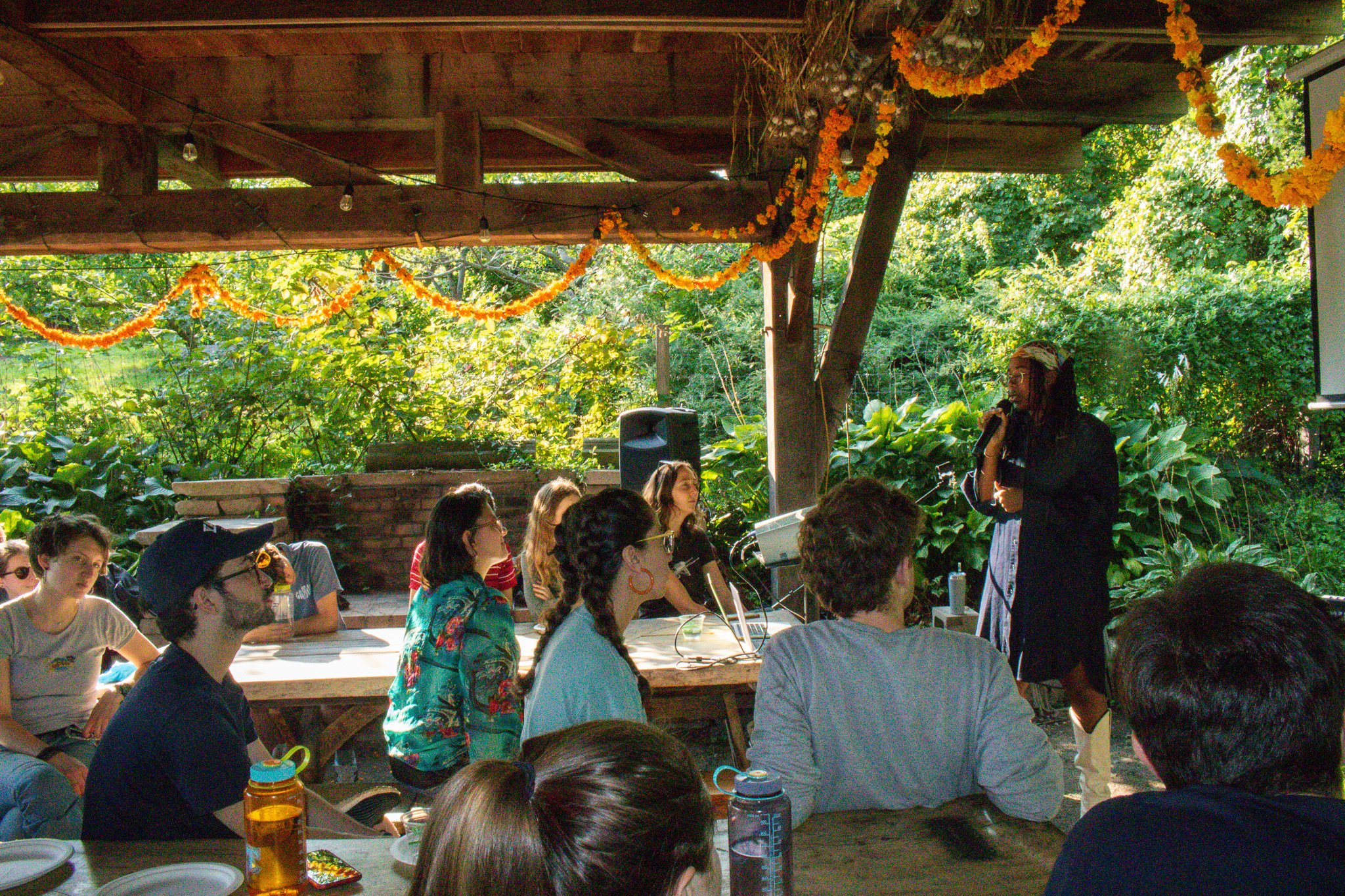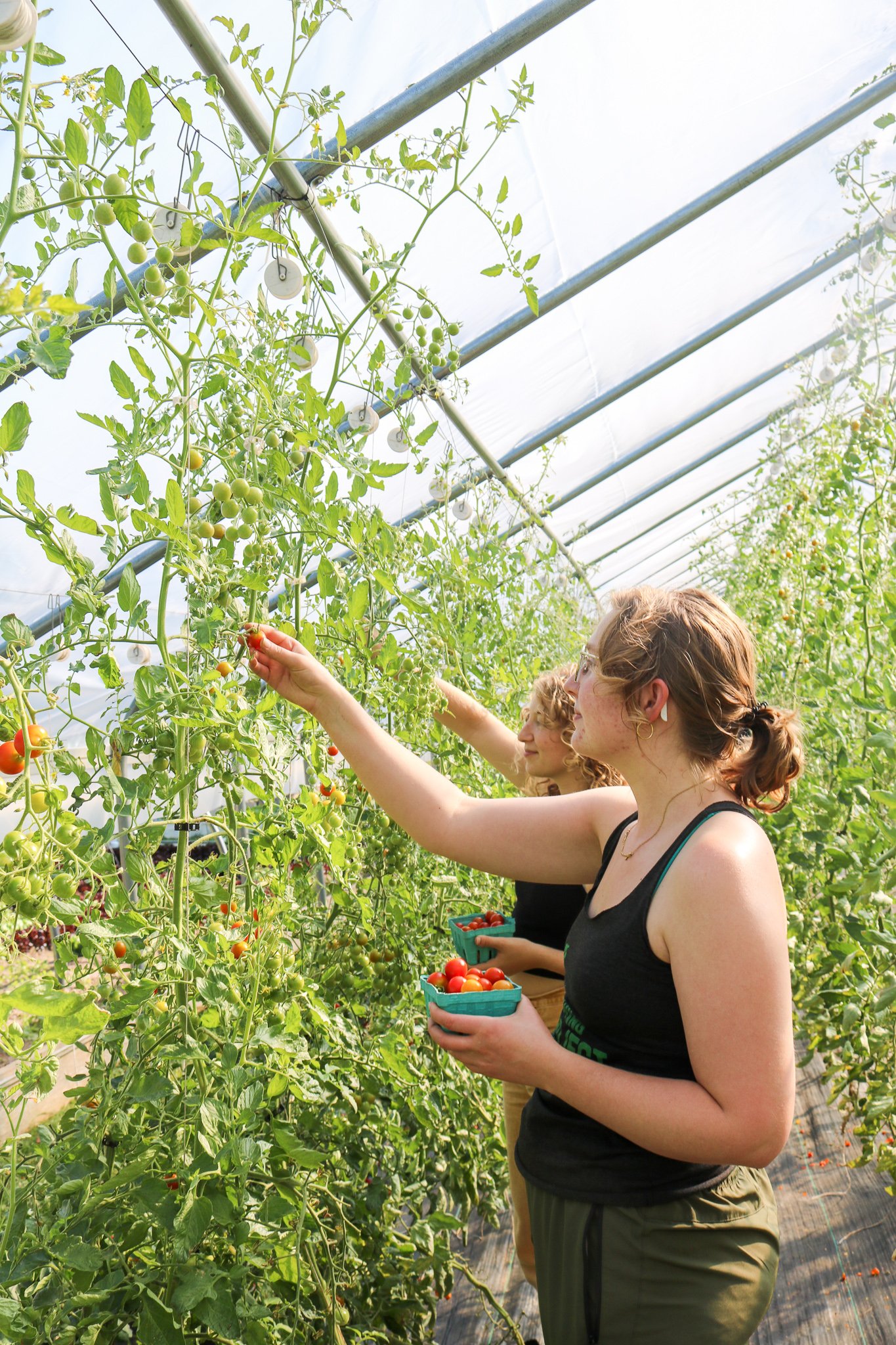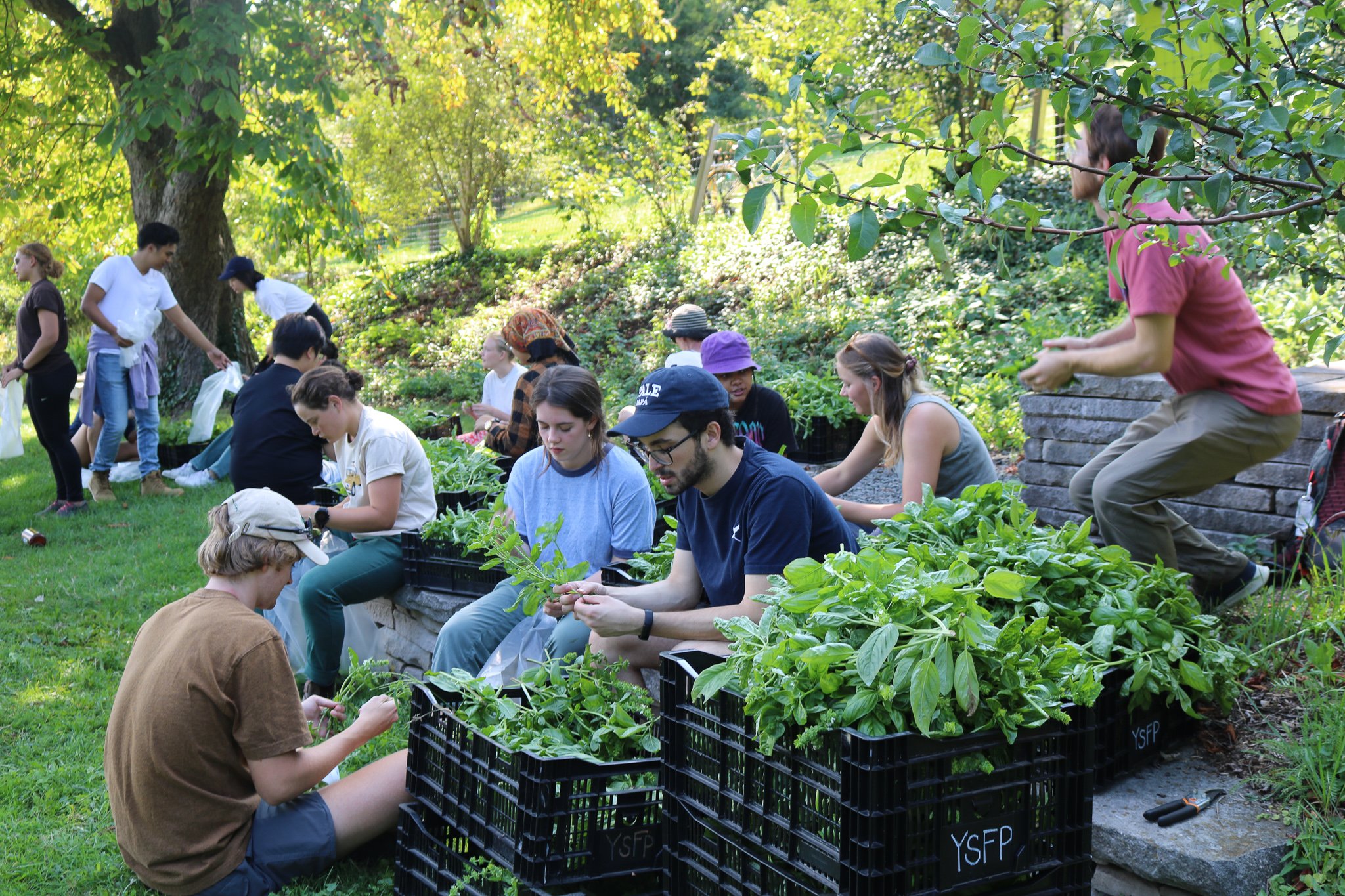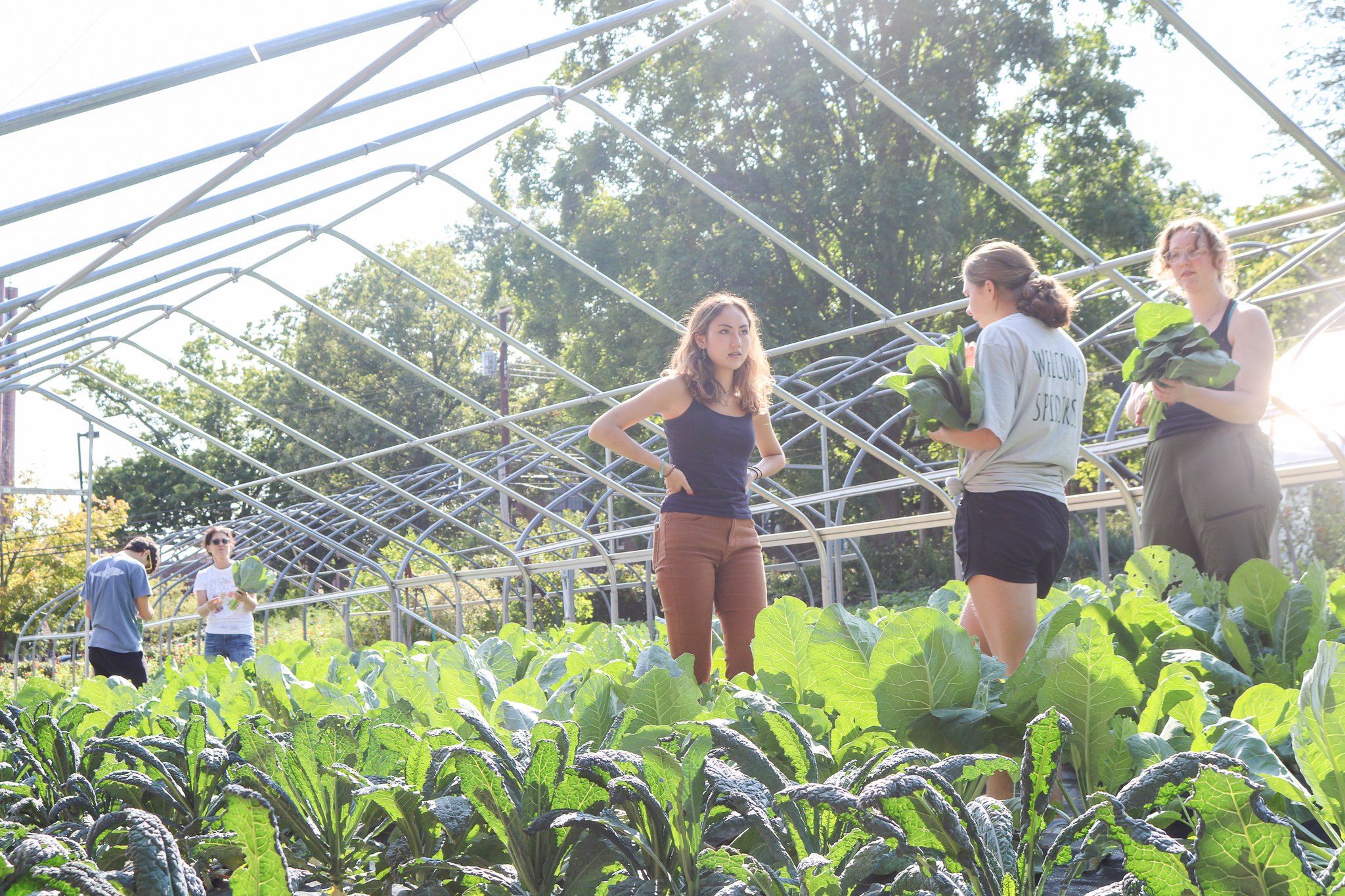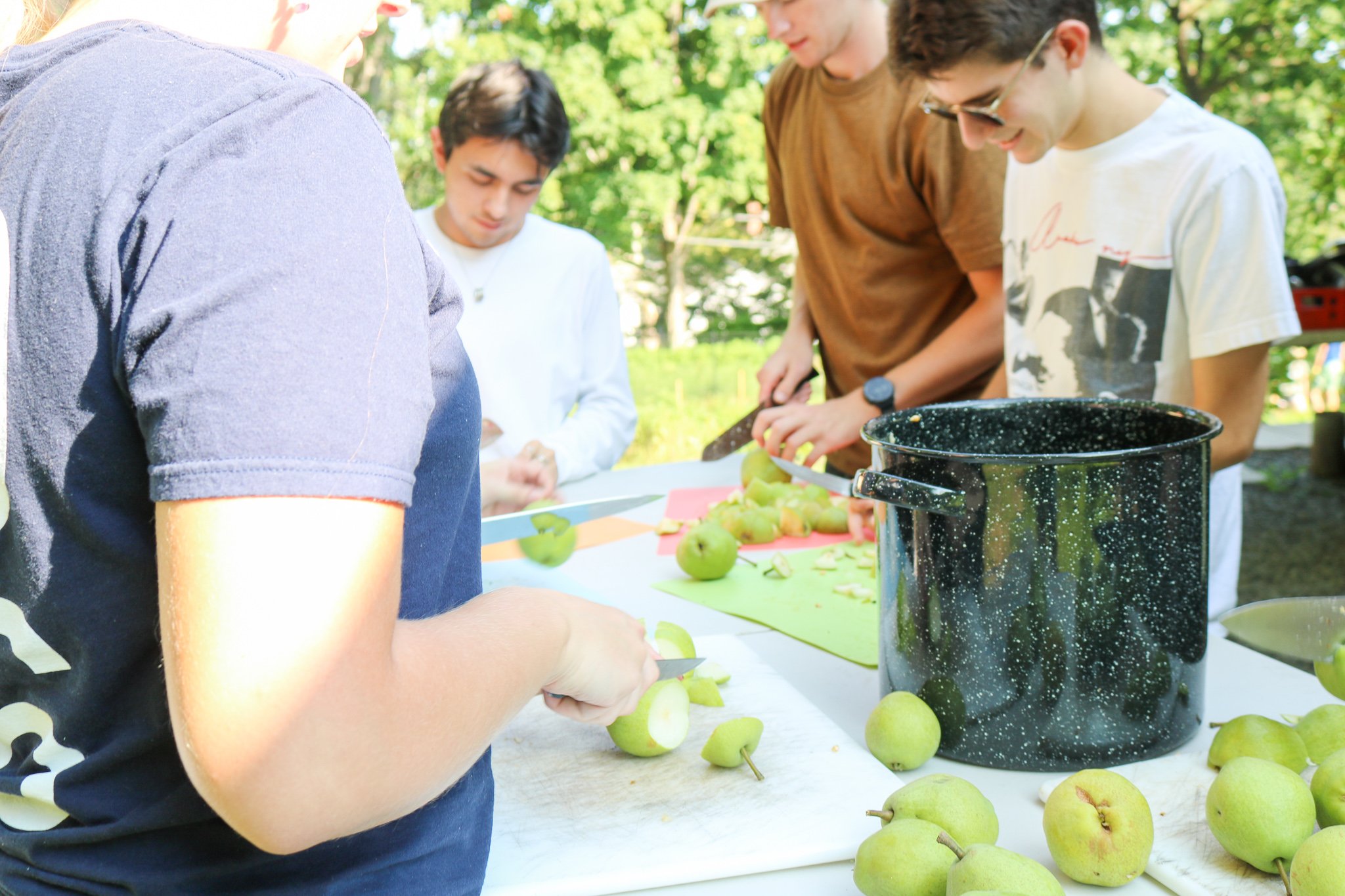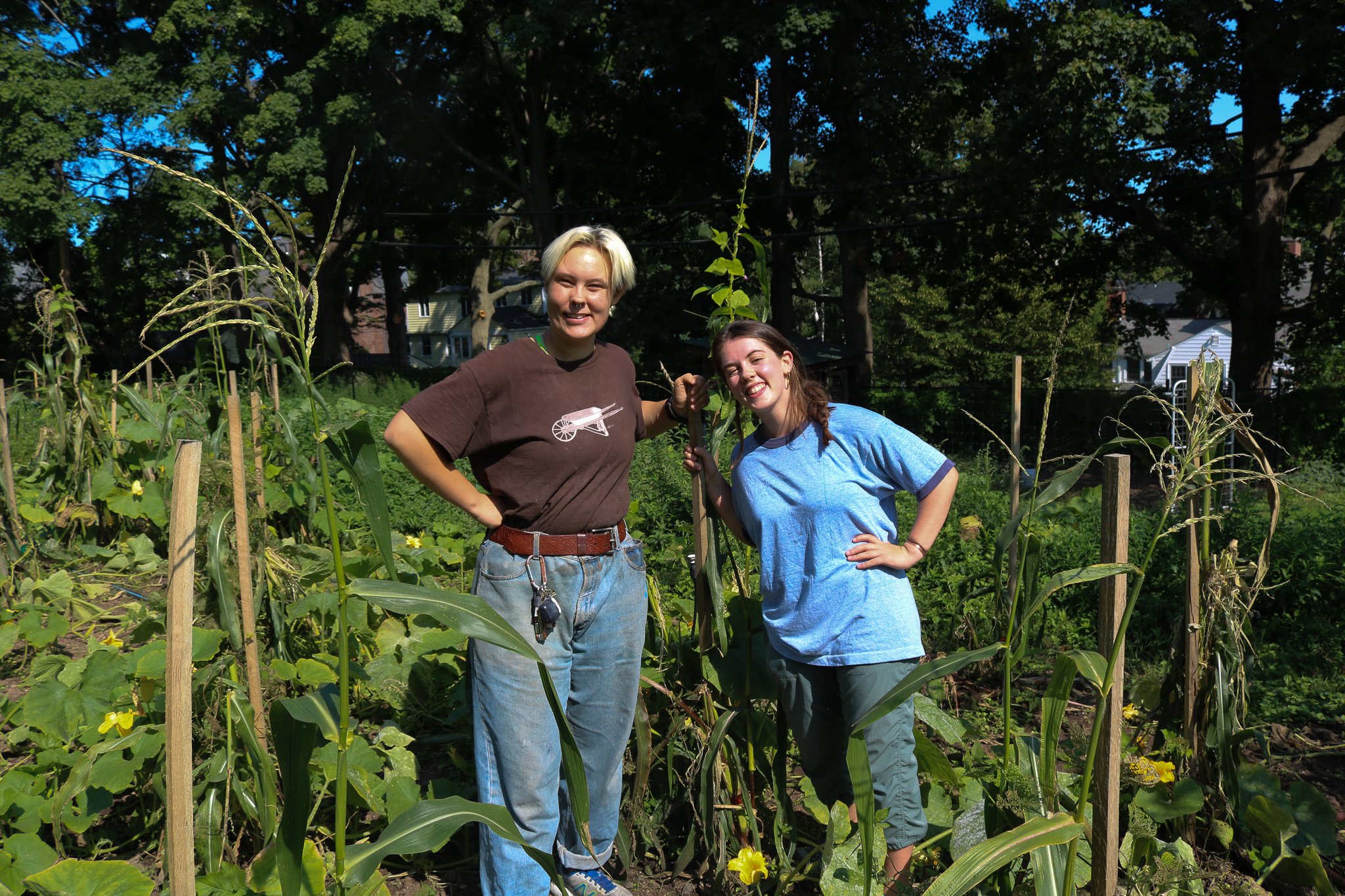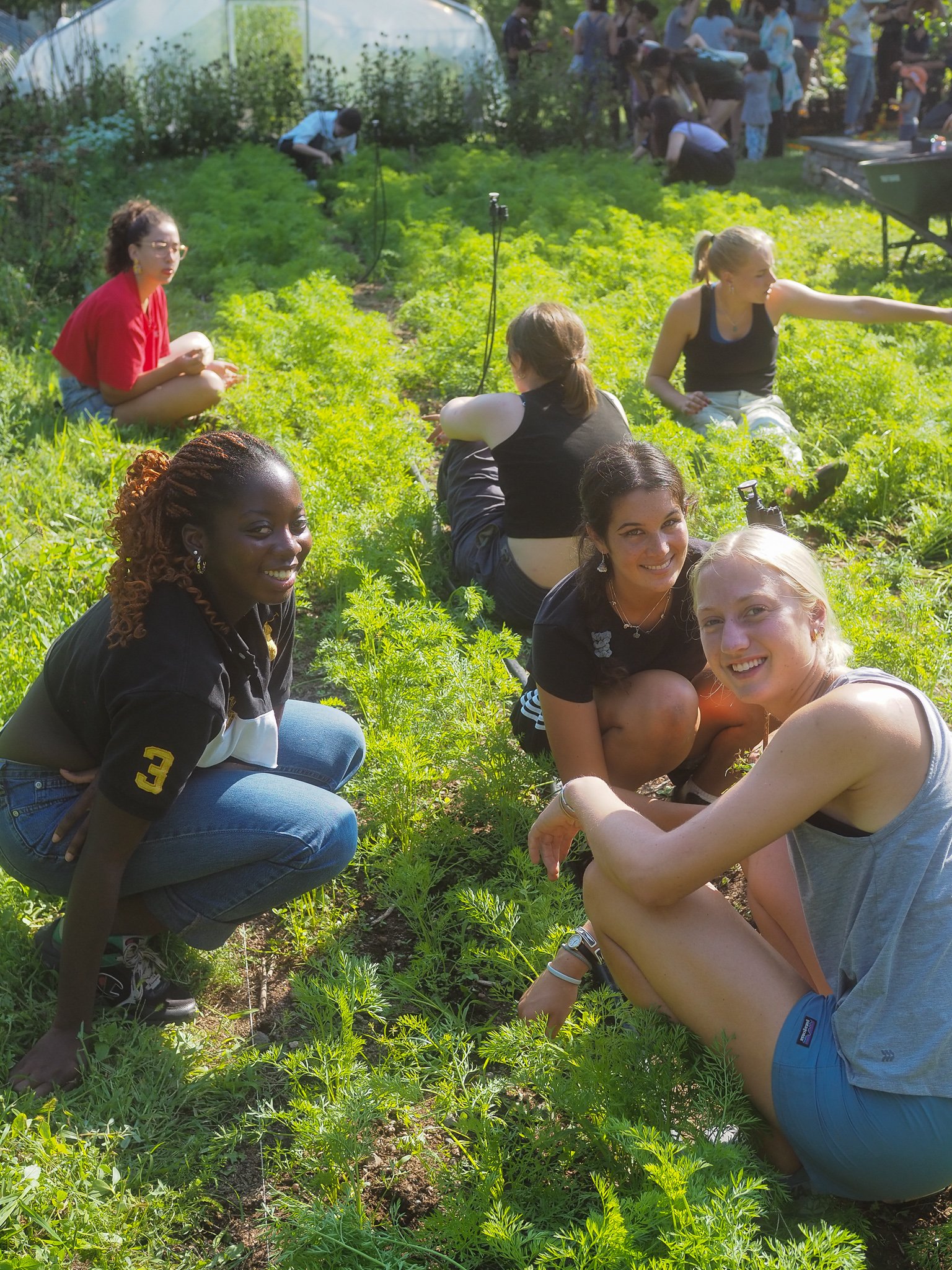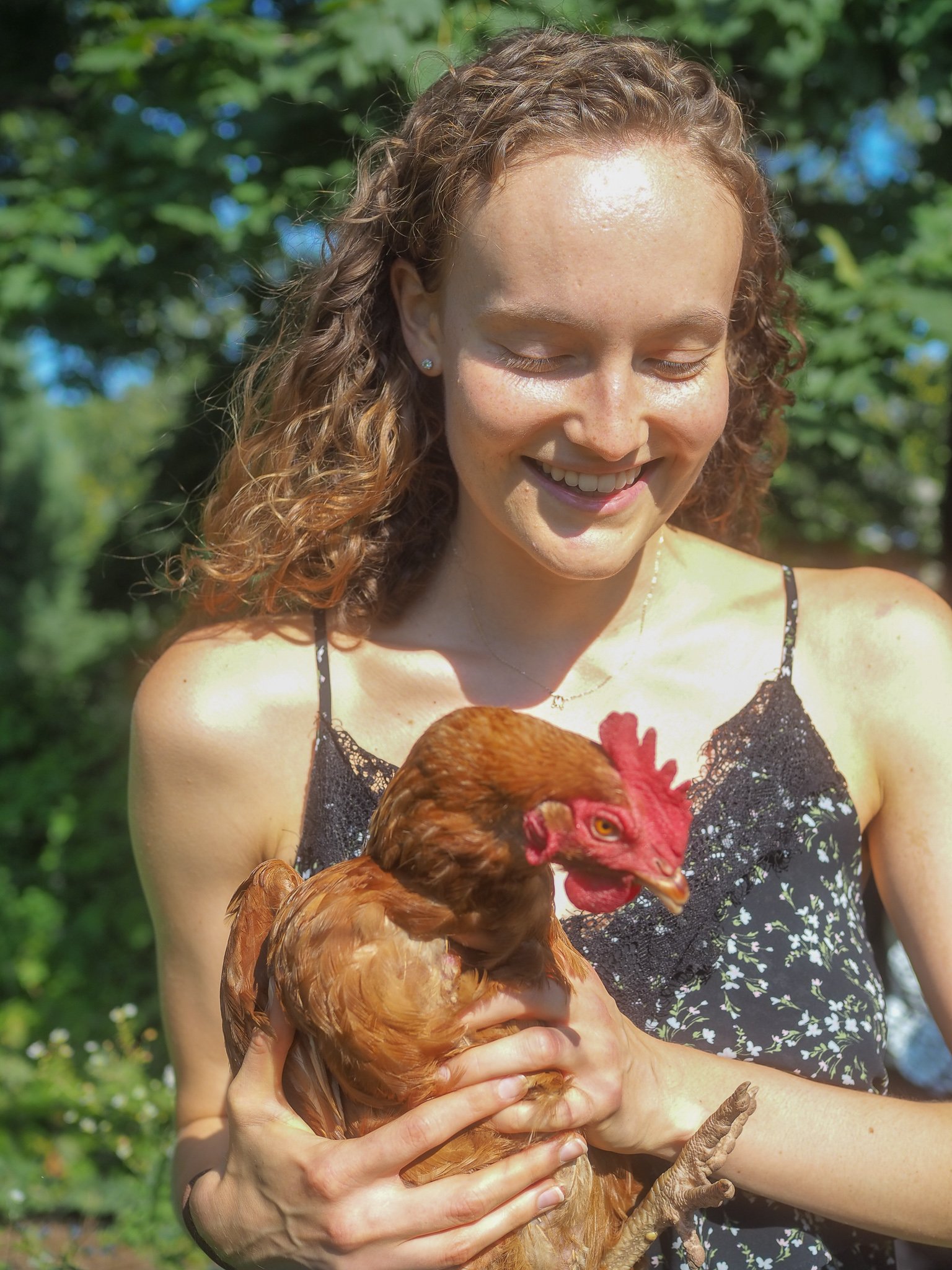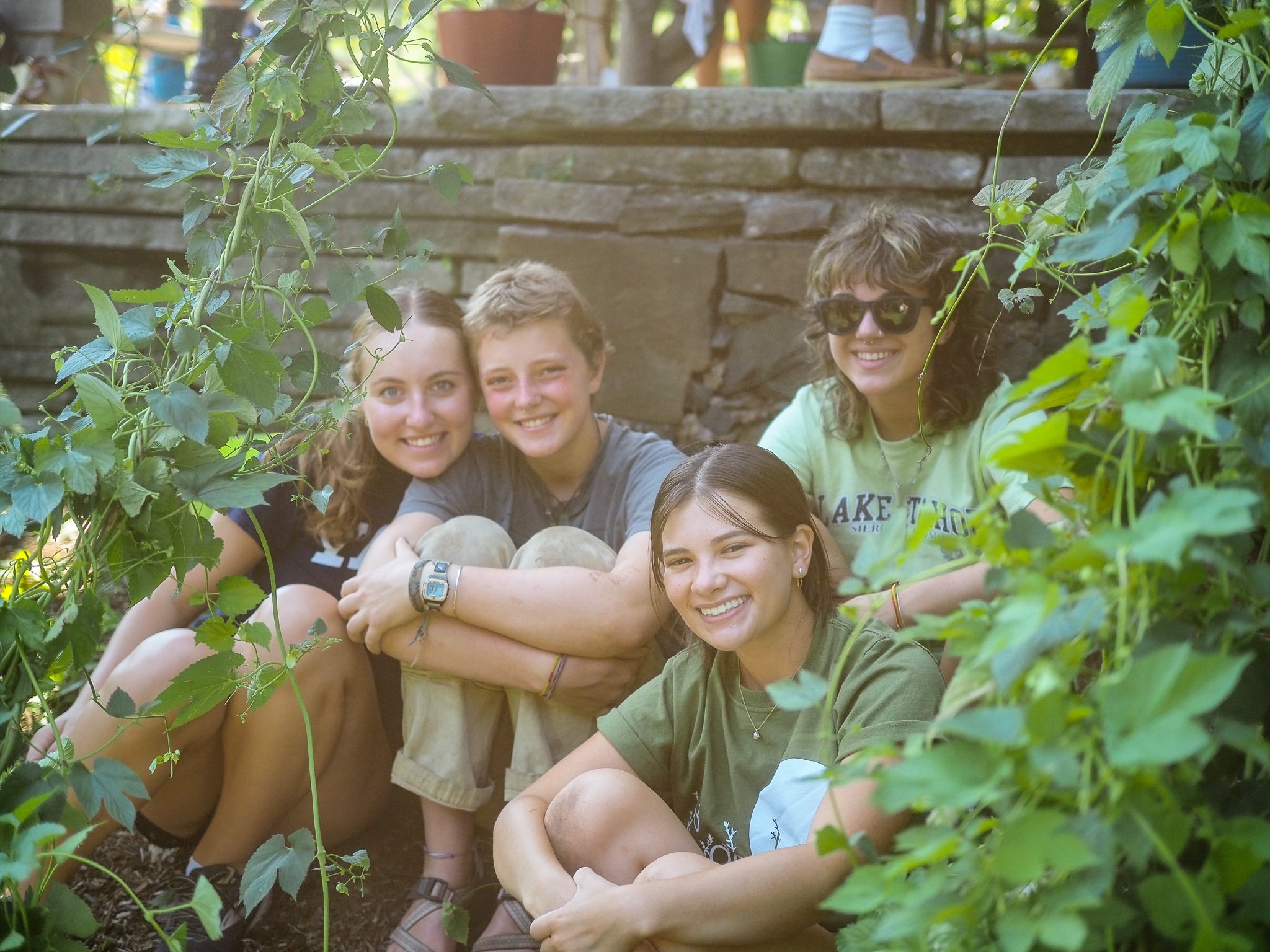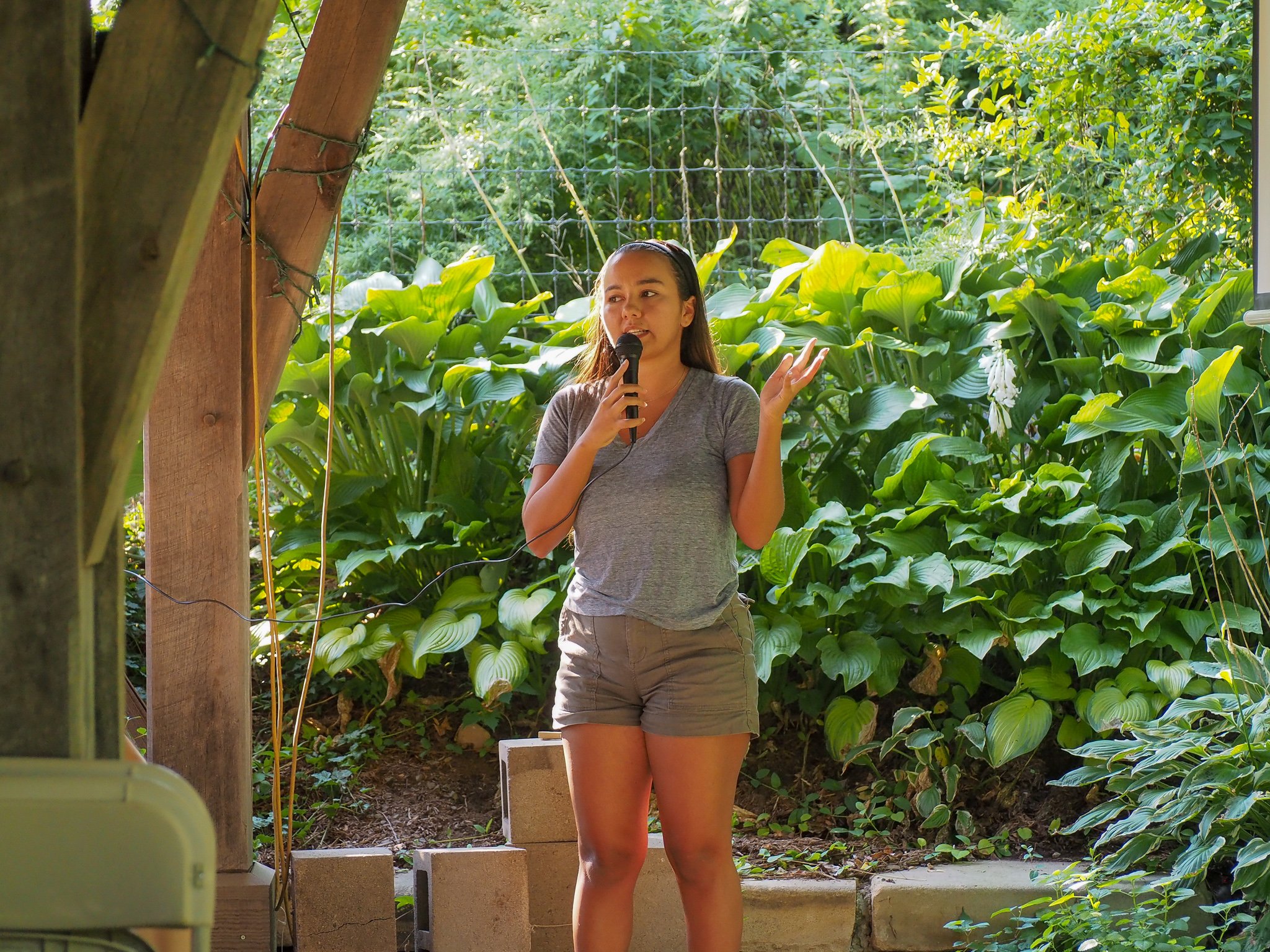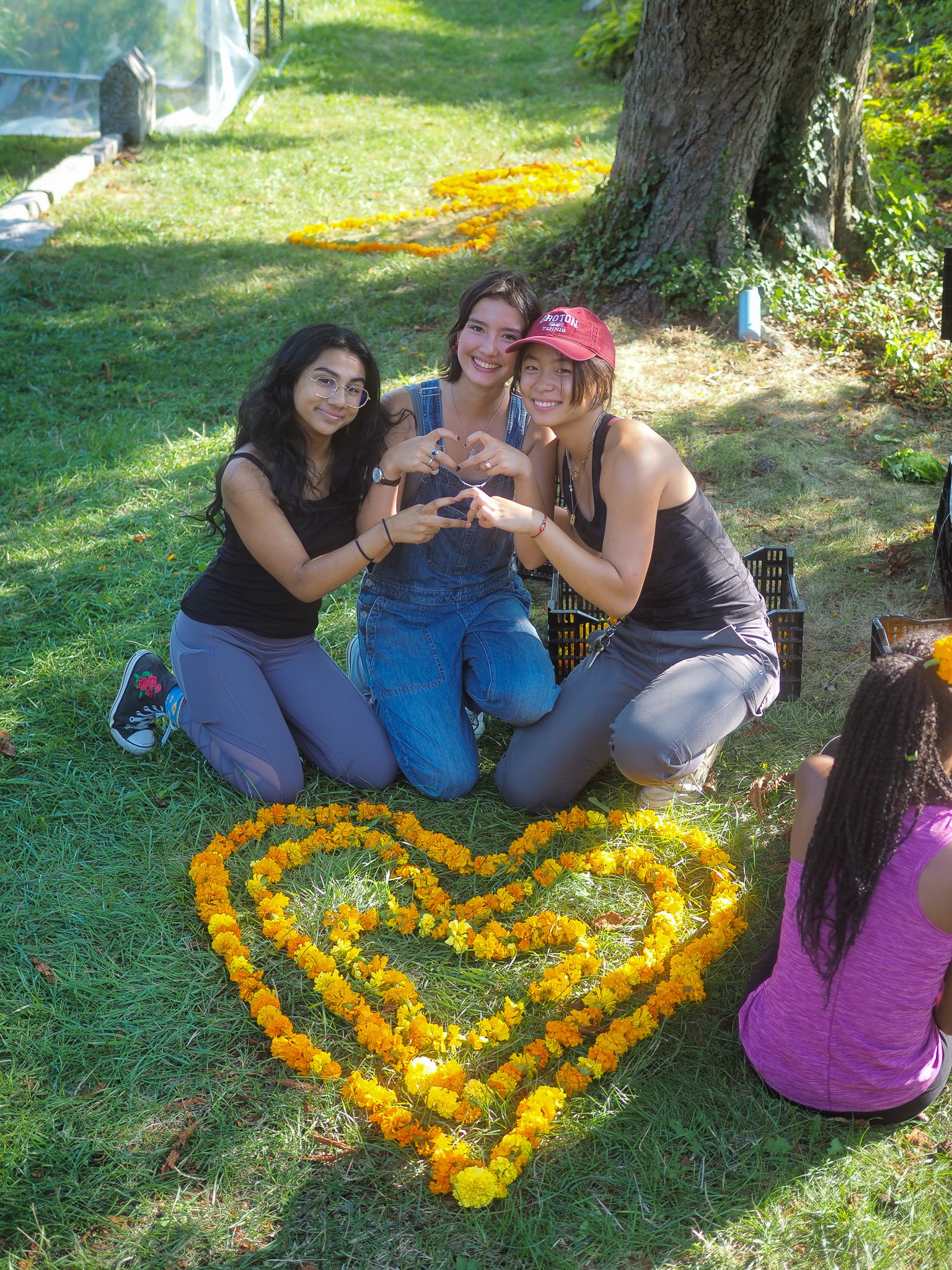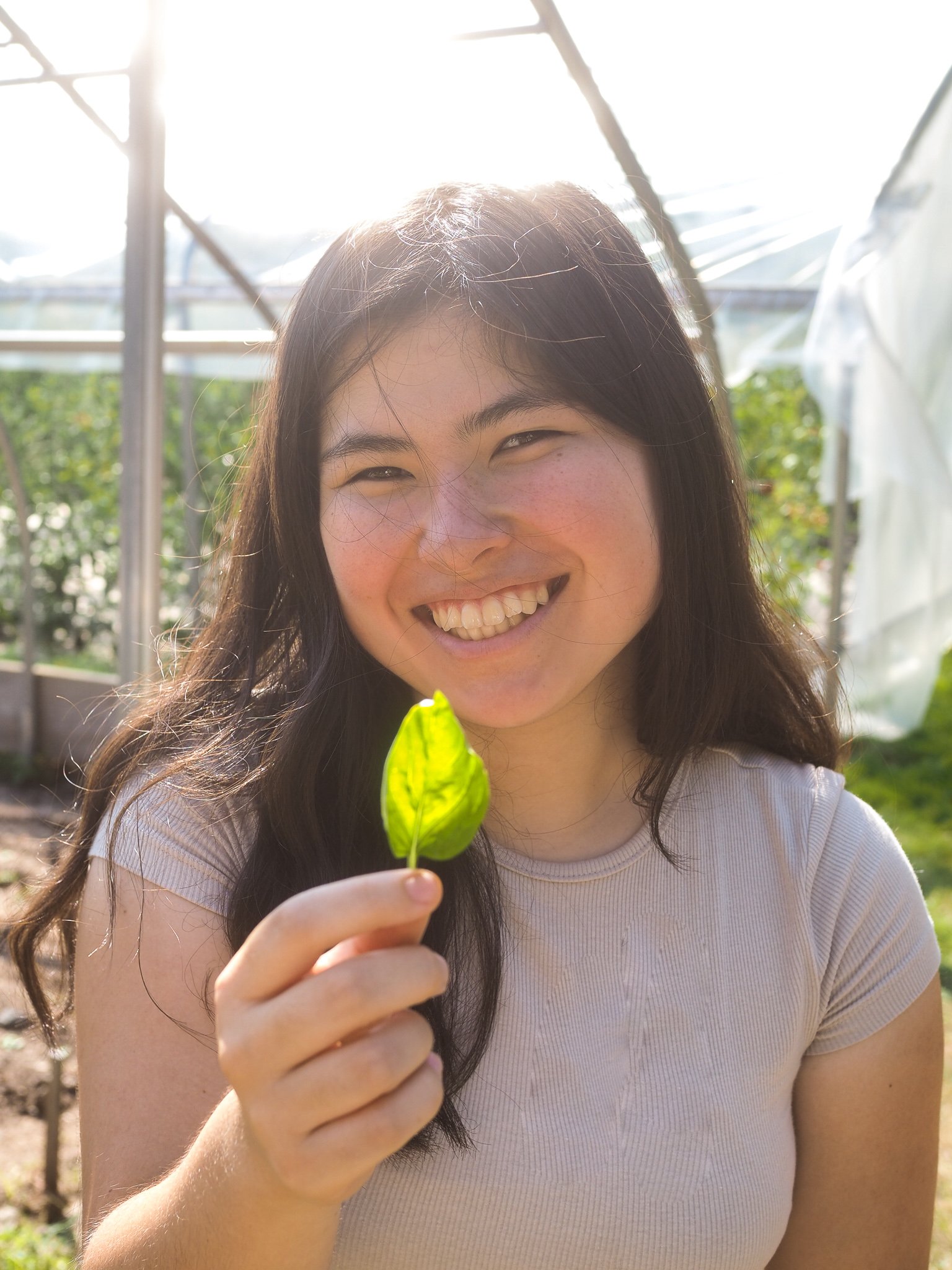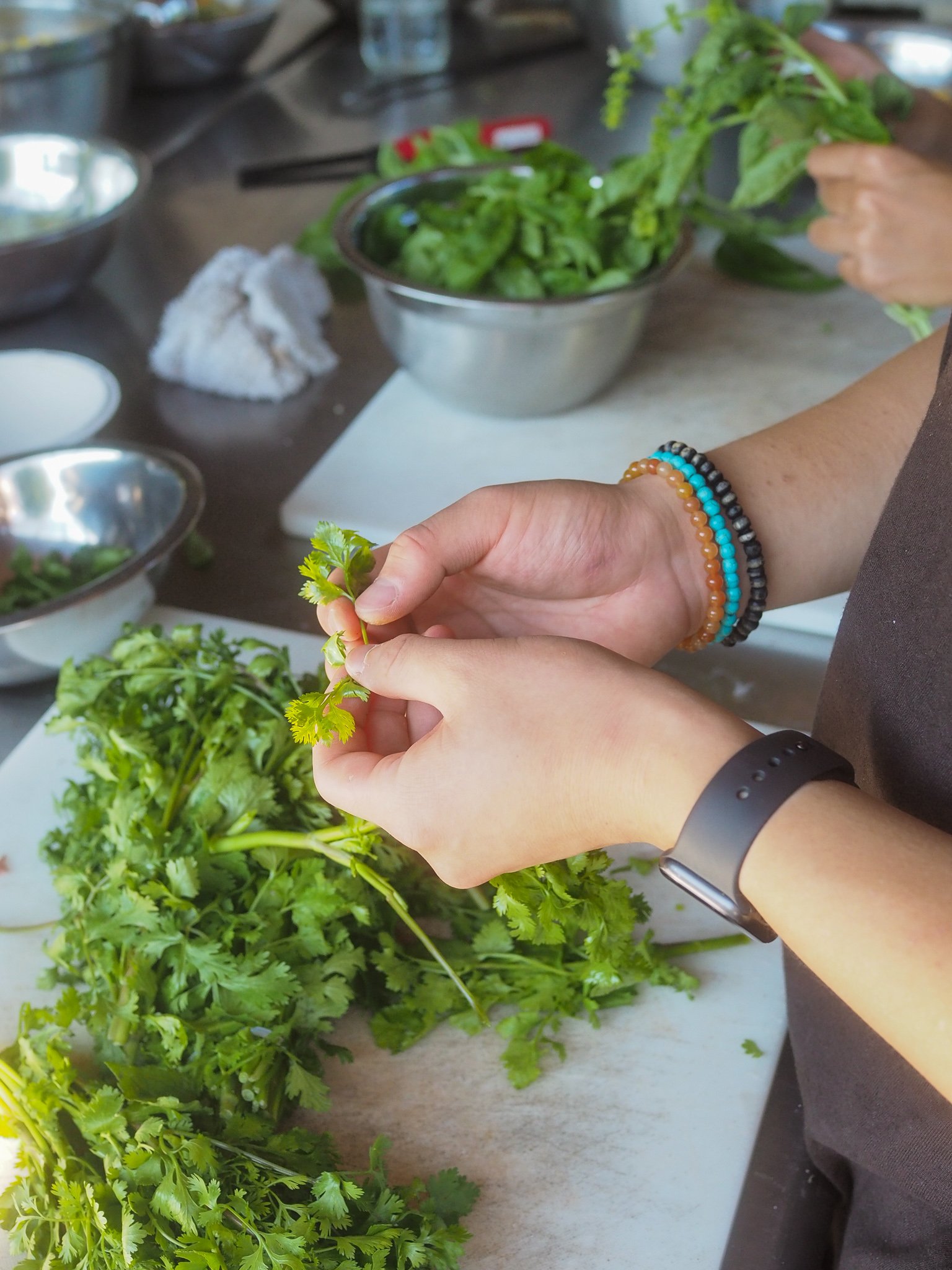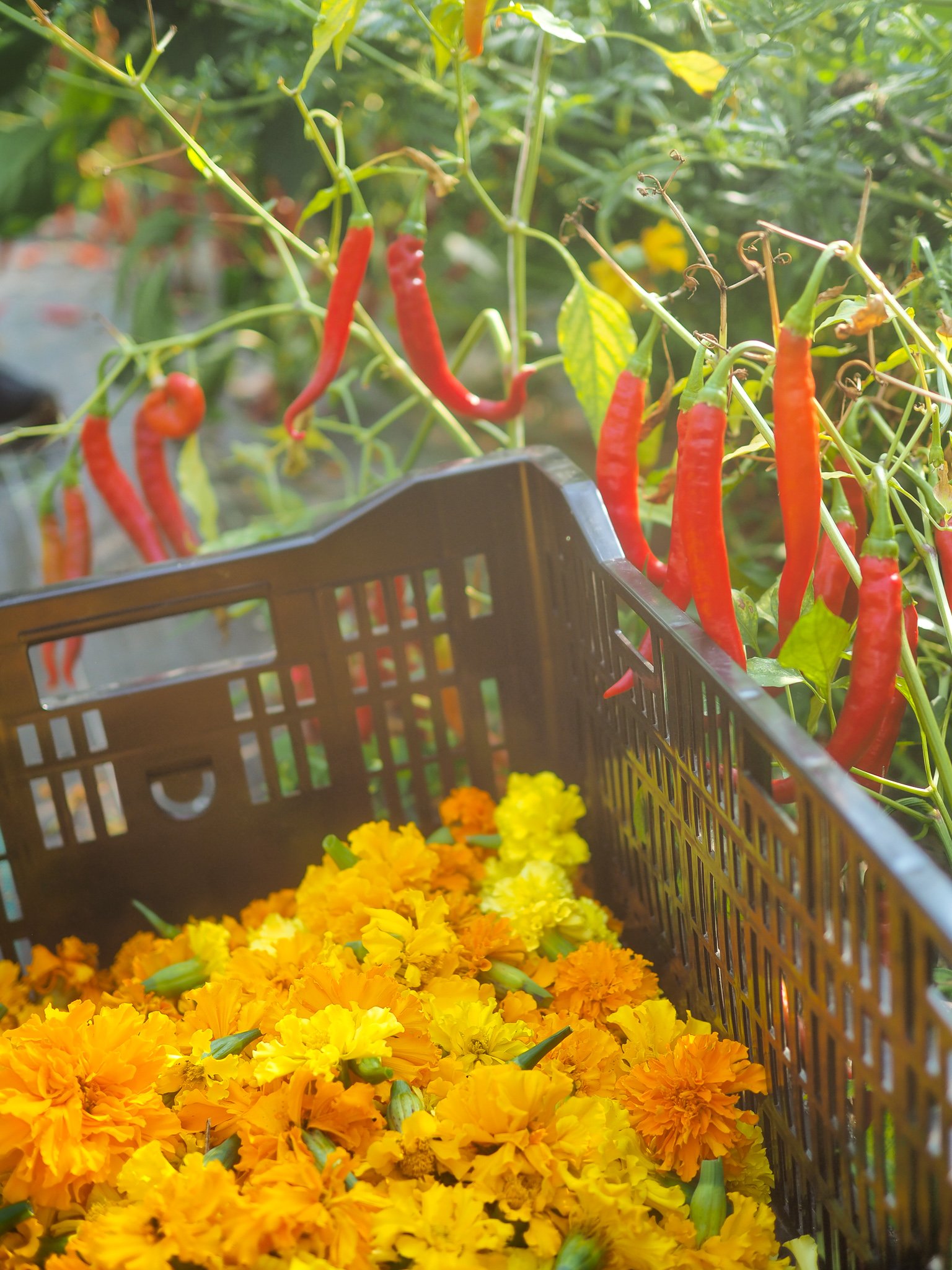
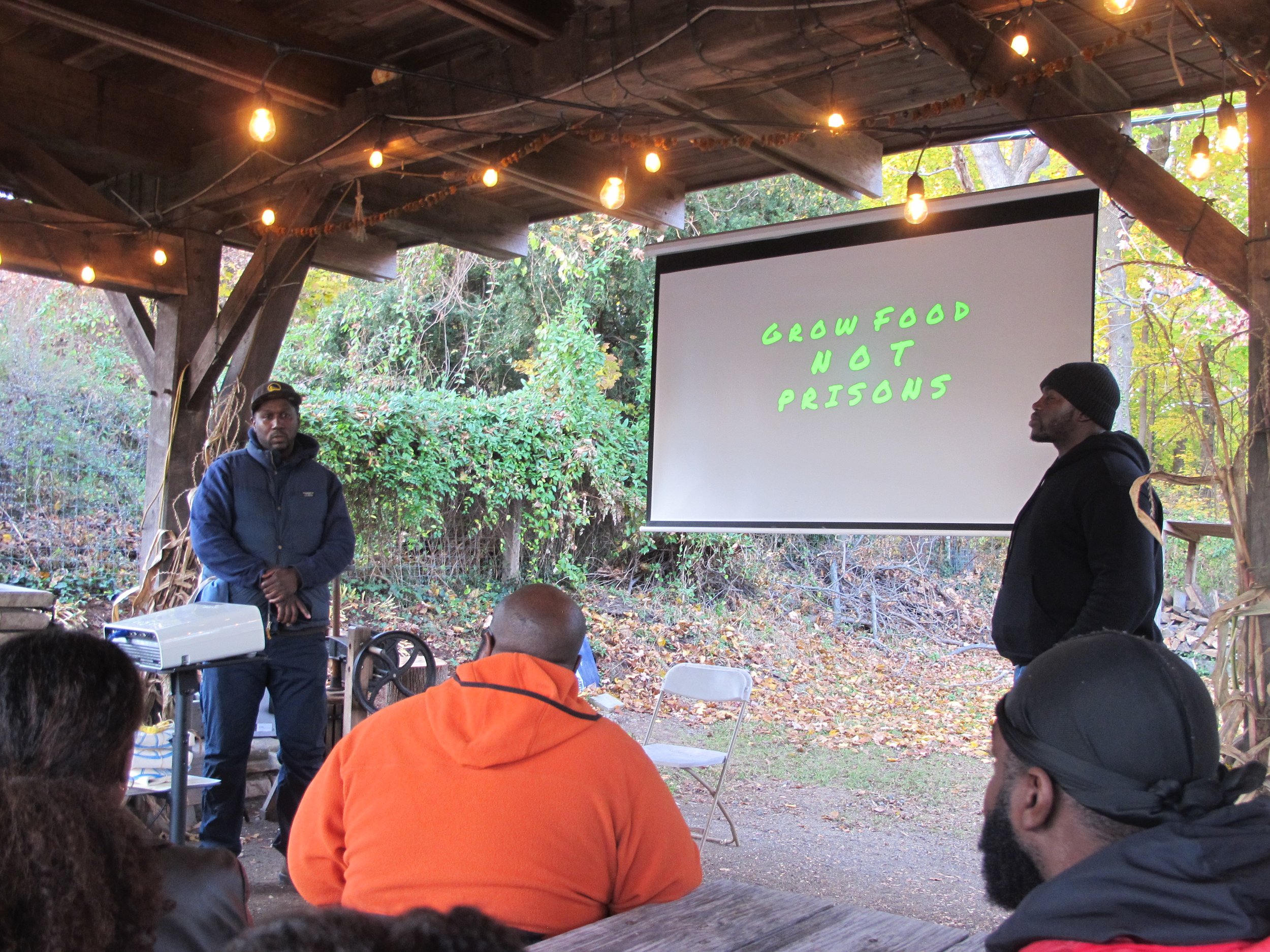
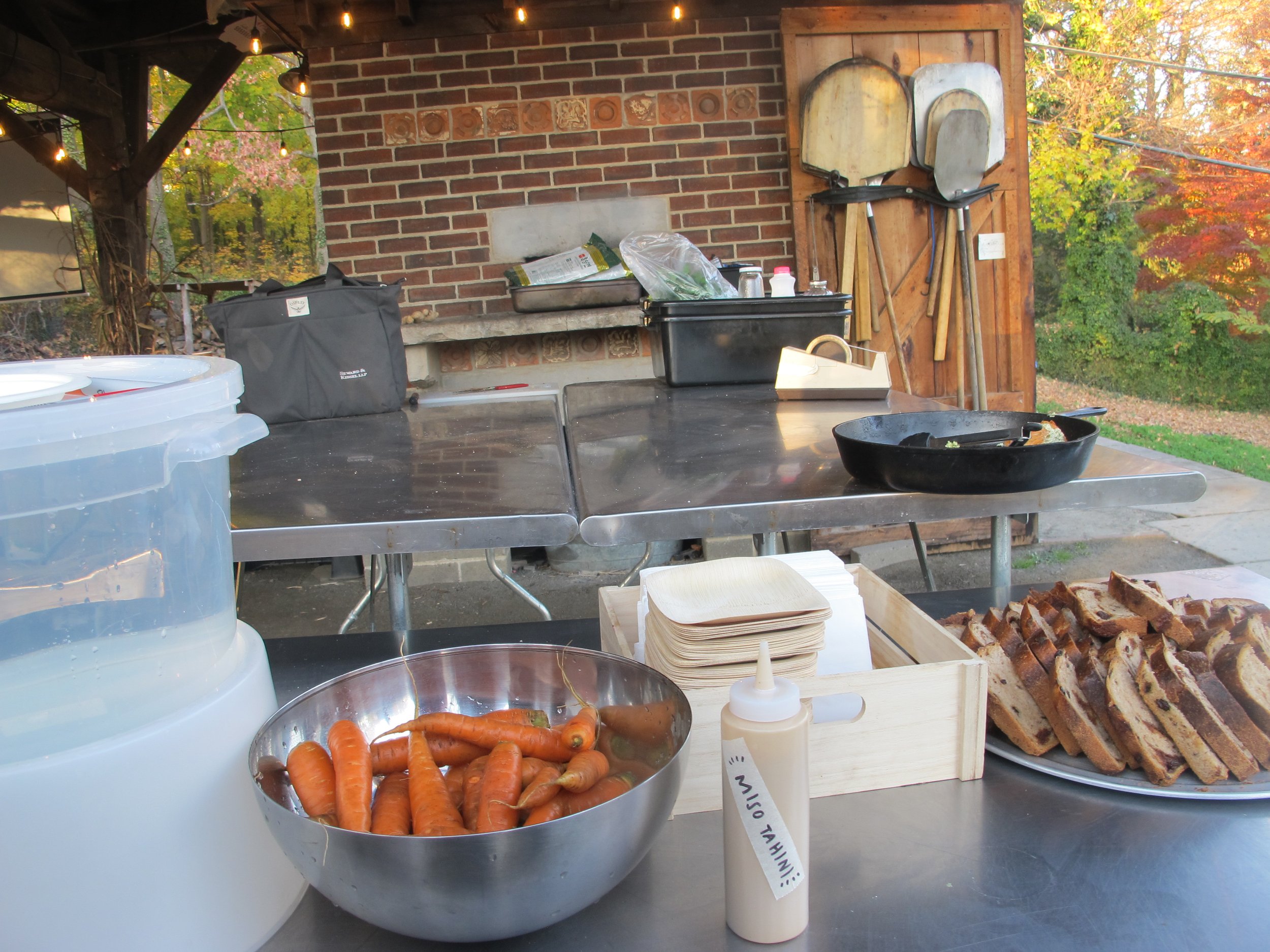
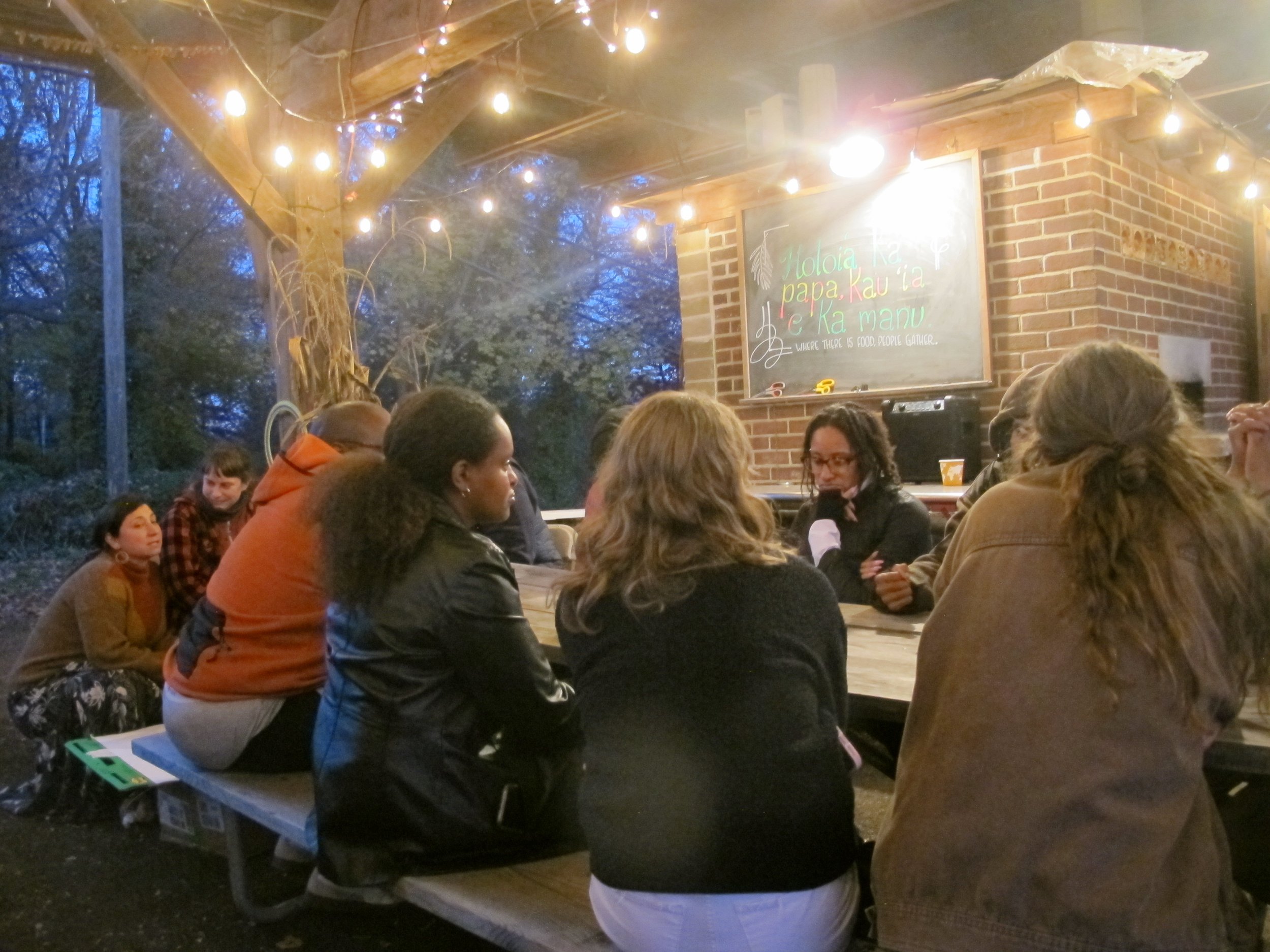
Warmed by a crackling fire under the Lazarus pavilion and nourished by miso-broth and toasted cinnamon bread, students and community members from all disciplines— the CT BIPOC food network, the Yale School of Drama, Yale School of the Environment, Yale College, the Yale Prison Education Initiative fellowship— gathered as the sun set over Edwards Street after a 60-degree day, to learn more about Sweet Freedom Farm.
On Thursday, November 16th, YSFP had the honor of hosting Jalal Sabur and Mike Capers of Sweet Freedom Farm for a Chewing The Fat event. The event was co-hosted by the Yale Undergraduate Prison Project.
“Grow Food Not Prisons,” opened Jalal and Mike’s slide deck, as the two began the workshop discussing the intersections of Black land sovereignty and prison abolition. Sweet Freedom's namesake comes from the farm’s maple sugaring practices, which has long been an alternative to cane sugar, sugar whose production historically and presently relies on enslaved labor. Jalal and Mike explained Sweet Freedom’s mission “to positively impact people who are negatively impacted” by the prison-industrial complex, in order to create healing “on both sides of the fence.”
So, how can an abolition framework be actualized? Jalal and Mike elucidated their theory of change, which constitutes “builders, warriors, and weavers,” and layed out four pillars of abolition: divestment from the prison system, investment and nourishment, repair and resilience, and Black land sovereignty.
While Jalal and Mike shared personal and professional experiences throughout their presentation to visualize modes of abolition, their presentation was rooted in the long legacy of abolitionist history. A slide depicted a painting where we could see a pair of hands and a head being braided and wrapped in green leaves and vines. If you look closer, one can see literal seeds being braided into the hair. Jalal shared that the painting is used at Soul Fire Farm, and references that when enslaved people were abducted to the United States, people would braid seeds in their hair, carrying the resources for nourishment across continents. People who were enslaved, Jalal notes, had immense knowledge of the lands they were being taken from.
Photos of Freedom Fighters such as Harriet Tubman soon followed. A photo of Malcom X with his quote “Land is the basis for all Freedom, justice and equality,” projected under the Lazarus Pavilion as Jalal and Mike discussed how land sovereignty and food access has played and continue to play an integral role in Black freedom movements across generations, from Tubman to incarcerated Black Panthers to Sweet Freedom Farm.
Sweet Freedom Farm is located in Germantown, NY. Germantown is located in the Hudson Valley, a majority-white and affluent area. Jalal and Mike emphasized how the Farm’s very existence is powerful, working to normalize the presence of Black farmers in the area.
As of 2022, one percent of farms are owned by Black farmers in the United States, but that was not always the case. Jalal and Mike shared historical legislation during the Nixon administration’s infamous War on Drugs that increased both industrial farming and the prison industrial systems: the number of small farms in these years went down, the number of Americans in prison skyrocketed. Mike also noted that as he was pursuing his Associate’s Degree through the Bard Prison Initiative, he learned just how much tax money goes to benefit the prison industrial complex, and began to understand how food and health care access is tied to incarceration rates in neighborhoods in New York.
The prison industrial complex affects both those inside and outside prisons; Sweet Freedom distributes fresh produce to the families of people who are incarcerated and engages impacted communities in education about abolition and land sovereignty, informing the next generation of farmers. Sweet Freedom used to supply produce packages to be brought inside prison facilities by family members. However, in 2022, New York banned bringing fresh produce inside, limiting parcels to vendors certified by the Department of Correction; huge price hikes on produce made those products largely inaccessible for families and inmates. For example, a mango that might cost $.99 in the grocery store is $4.50 through the prison vendor. After this policy change, Sweet Freedom pivoted to movement work, participating in advocacy to get the state to reverse the ban. Simultaneously, the group pivoted towards abolition education for affected communities and providing for families impacted by the prison system.
After the slide presentation, participants —which included undergraduates, New Haven and Connecticut community members, and program participants with Sweet Freedom— had the opportunity to talk about their personal understandings of abolition and connect about their work and ideas.
Much gratitude to Jalal and Mike, the YUPP coordinators, the YSFP coordinators, and everyone who came to the Old Acre on a chilly fall night.
Photos from the event by Kavya Jain ‘25 can be found here.

